 Sign in
Sign in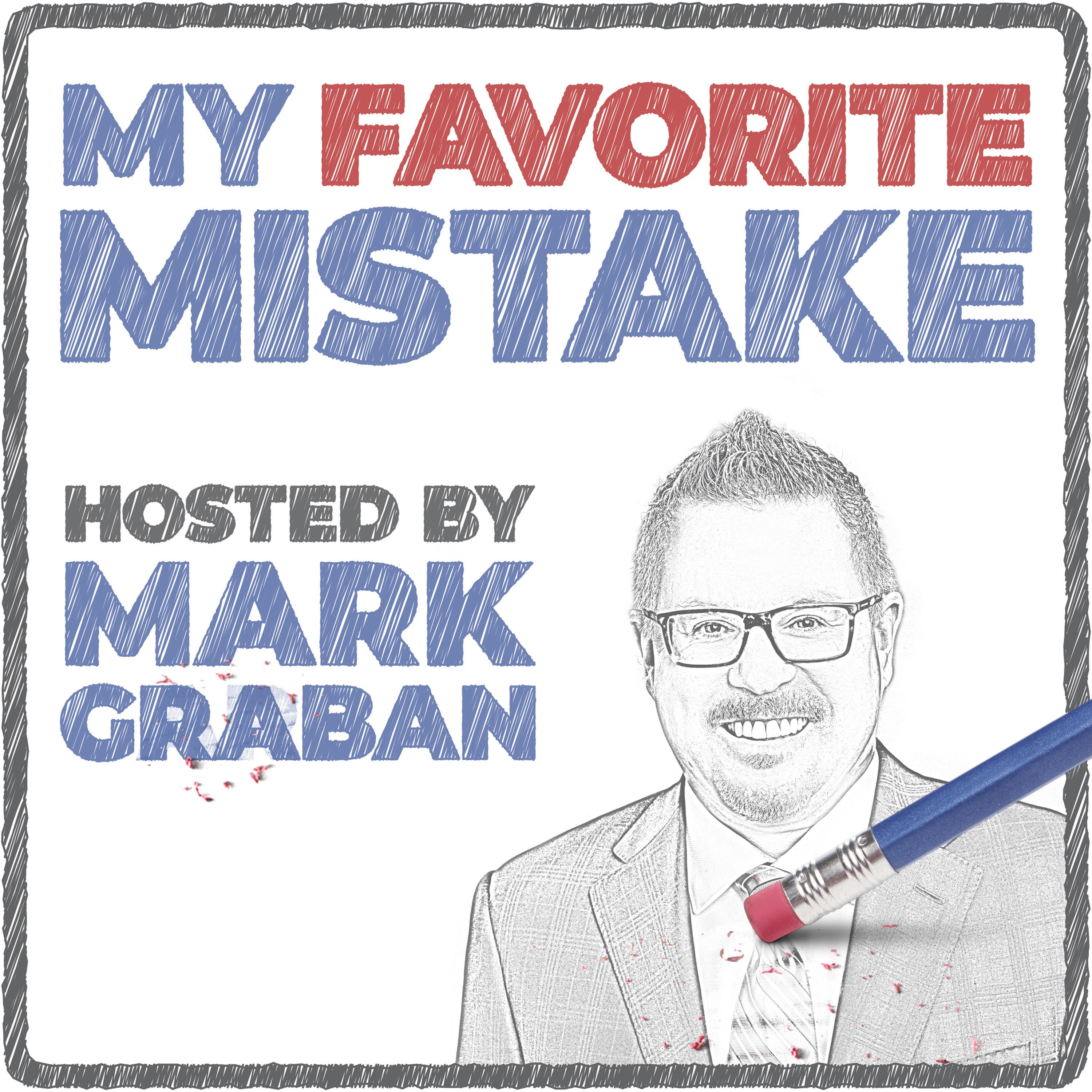
Business
Mark Graban
Unlock Leadership Excellence: Tune into “My Favorite Mistake” with Mark Graban
Are you a leader aiming to boost effectiveness, insight, and innovation? Join Mark Graban on ”My Favorite Mistake” (and no, it’s not the Sheryl Crow song), where top business minds, C-suite executives, and industry innovators share their pivotal mistakes and the powerful lessons they’ve learned.
The Concept
Embrace the transformative power of mistakes. Discover how errors can fuel leadership growth and creative problem-solving, turning each misstep into a masterclass in improvement and innovation.
The Stories
Dive into captivating interviews with international entrepreneurs, tech pioneers, accomplished athletes and entertainers, healthcare leaders, and award-winning authors. Each guest reveals how their significant mistakes shaped their careers and led to groundbreaking insights.
The Breadth
Explore a wide range of topics, from leadership psychology and organizational culture to process innovation and sustainability. Gain valuable perspectives to navigate the ever-changing business landscape.
The Approach
Guided by Mark Graban, an author and seasoned consultant, each episode delves into Lean Management (based on the Toyota Production System) and psychological safety, uncovering strategies for individuals and organizations to learn from their mistakes.
Why Subscribe?
Engage with Thought-Provoking Dialogues: Challenge conventional wisdom and explore new perspectives.
Access Tools and Frameworks: Gain actionable insights for a competitive edge.
Discover Innovative Opportunities: Learn how to turn mistakes into catalysts for innovation.
Develop Emotional Intelligence and Resilience: Enhance your leadership skills and agile thinking.
Transform your approach to leadership and success.
Subscribe to “My Favorite Mistake” today and embark on a journey of relentless improvement through the power of learning from mistakes.
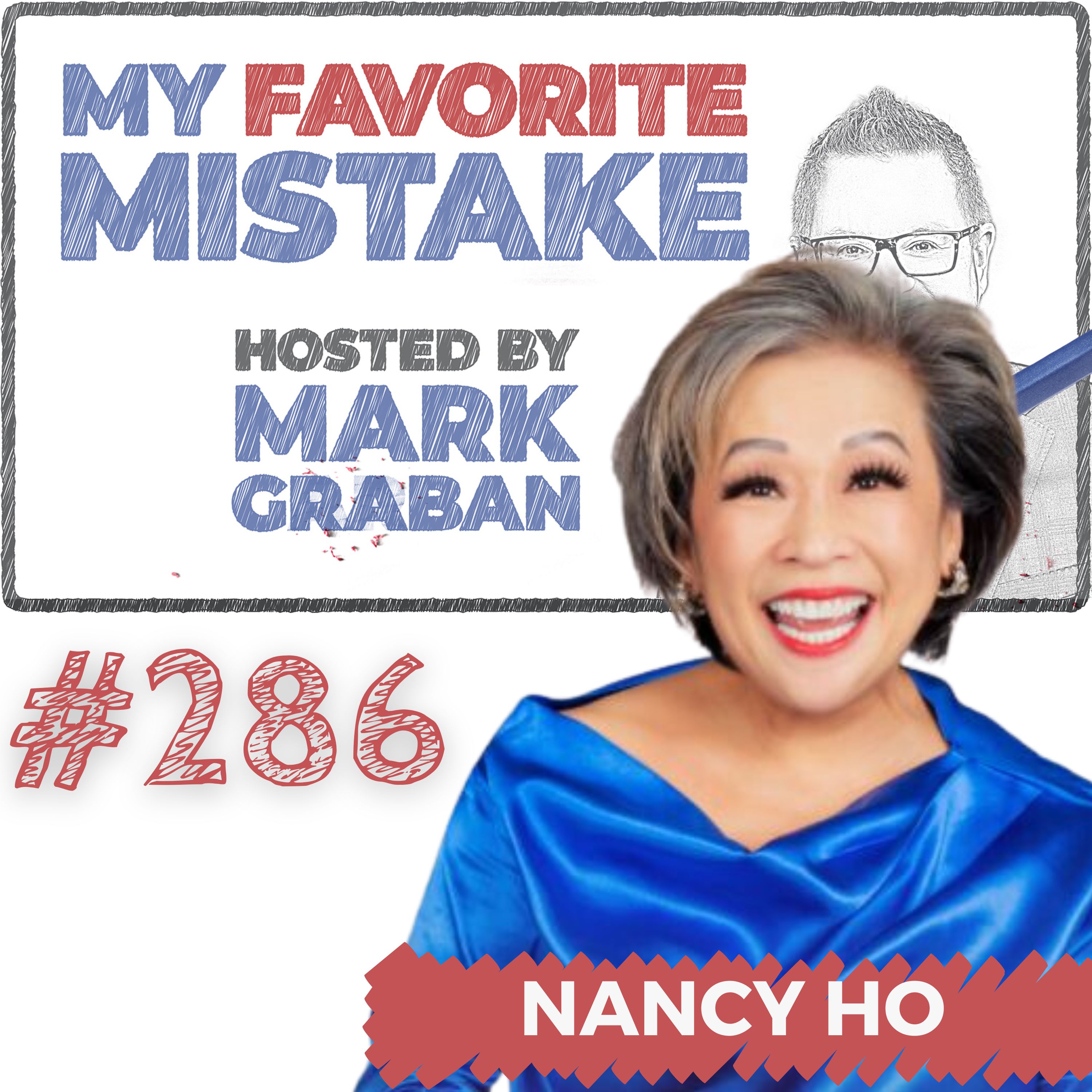
Nancy Ho on Losing $300K in 5 Months: Lessons on Overcoming Failure, Life Purpose, and Work-Life Integration
My guest for Episode #286 of the My Favorite Mistake podcast is Nancy Ho, a distinguished Life Strategist, Clarity Messenger, and State of Mind Specialist with over 26 years of experience guiding individuals toward holistic success.
Episode page with video, transcript, and more
Throughout her illustrious career, Nancy has empowered over 10,000 clients, including C-Suite executives, mid-level managers, and business owners, to navigate the intricate balance between professional achievement and personal fulfillment.
She’s co-author of the book Success Redefined with Jack Canfield.
In today's episode, Nancy shares the story of her favorite mistake—losing $300,000 in just five months pursuing a lifelong dream of opening a wine bar. She reflects on the critical lessons she learned about the importance of due diligence, trusting gut instincts, and recognizing misaligned partnerships. Nancy discusses how this experience shaped her approach to coaching, helping clients uncover their life purpose, navigate the paradox of professional success, and integrate work and personal fulfillment. She offers practical strategies for managing stress, addressing incomplete tasks, and shifting from fear-based thinking to resilience and clarity. Nancy’s insights provide inspiration and actionable advice for anyone striving to align their career, values, and sense of purpose.
Questions and Topics:
What is your favorite mistake?
What were some of the biggest challenges you faced during this venture, and how did you handle them?
What lessons did you learn from this experience, and how do you apply them in your work today?
Do you have any regrets about walking away from the business?
What is your life purpose, and how do you help others articulate theirs?
What do you mean by the “professional paradox,” and how do you help clients facing career and life challenges?
How do you approach unraveling the root causes of professional struggles for your clients?
What strategies do you recommend for managing stress caused by incomplete tasks?
How do you help clients shift from fear of failure to a mindset of resilience and growth?
How has this mistake influenced your approach to life and business coaching?
41:2225/11/2024
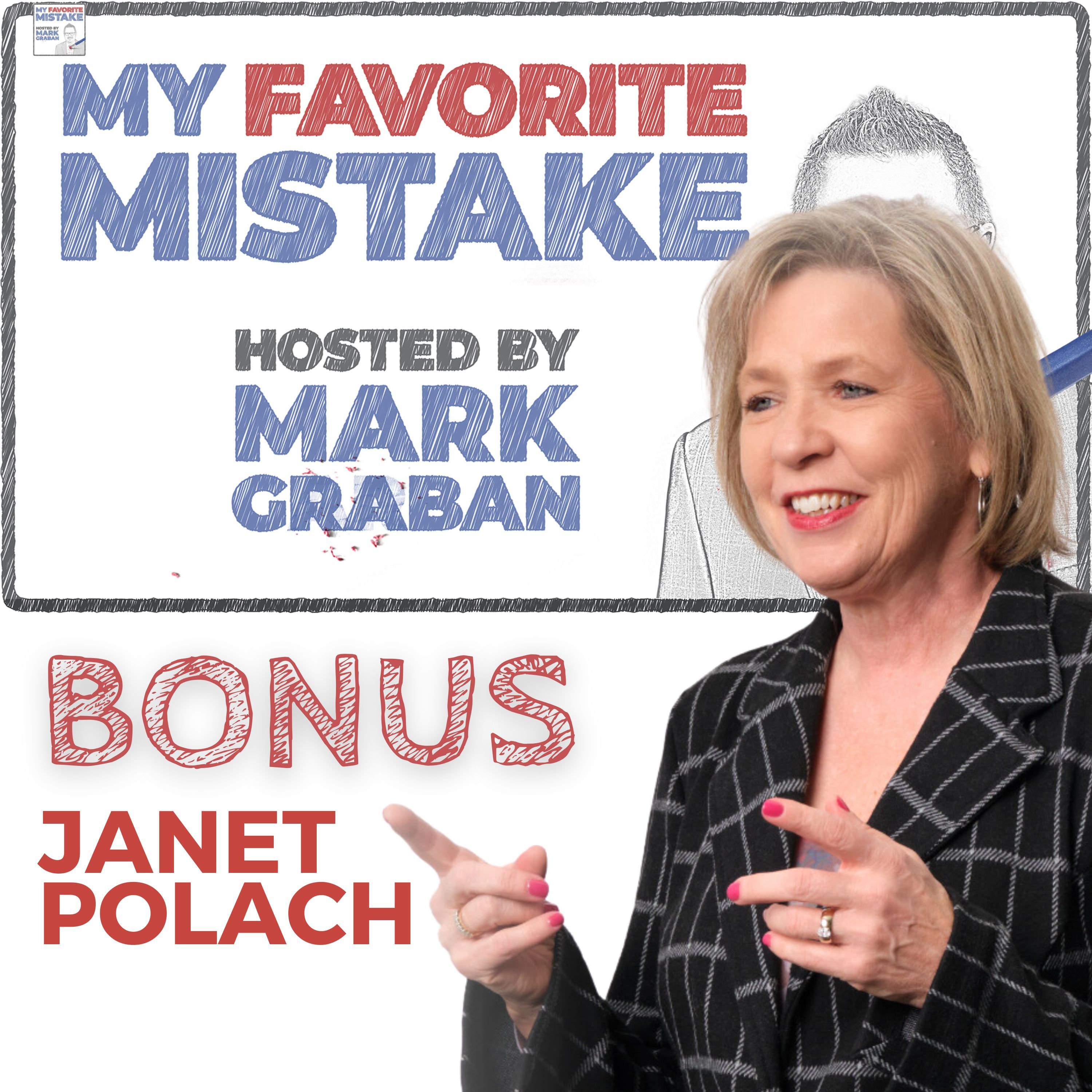
Bonus: Janet Polach, Ph.D. on The Strategic Leader’s Mindset, Her New Book
Welcome back to My Favorite Mistake! In this bonus episode, host Mark Graban reconnects with returning guest Dr. Janet Polach, a retired U.S. Marine Corps lieutenant colonel and PhD in organizational development.
Janet, who previously appeared on Episode 175, shares insights from her new book, "The Strategic Leader's Mindset: Unlocking the Keys to Success." This book offers actionable strategies for executives making the challenging shift to strategic leadership roles. Janet's website: https://janetpolach.com/
In this conversation, Janet explores key concepts such as embracing ambiguity, strengthening internal and external relationships, and the importance of setting aside dedicated time to develop strategic thinking. She dives into the practical tools and exercises included in each chapter to help leaders take action on what they learn.
Tune in to hear how Janet's approach to writing has evolved, her lessons on strategic leadership, and why it’s essential to engage with peers across industries to drive innovation and insight.
Plus, get a glimpse into Janet’s favorite leadership lessons, from “leaning into ambiguity” to harnessing outside perspectives for organizational success. If you’re an aspiring or seasoned leader, this episode is packed with valuable advice.
And if you missed her original episode, catch Janet's "favorite mistake" story in Episode 175 at https://www.markgraban.com/mistake175
10:0321/11/2024
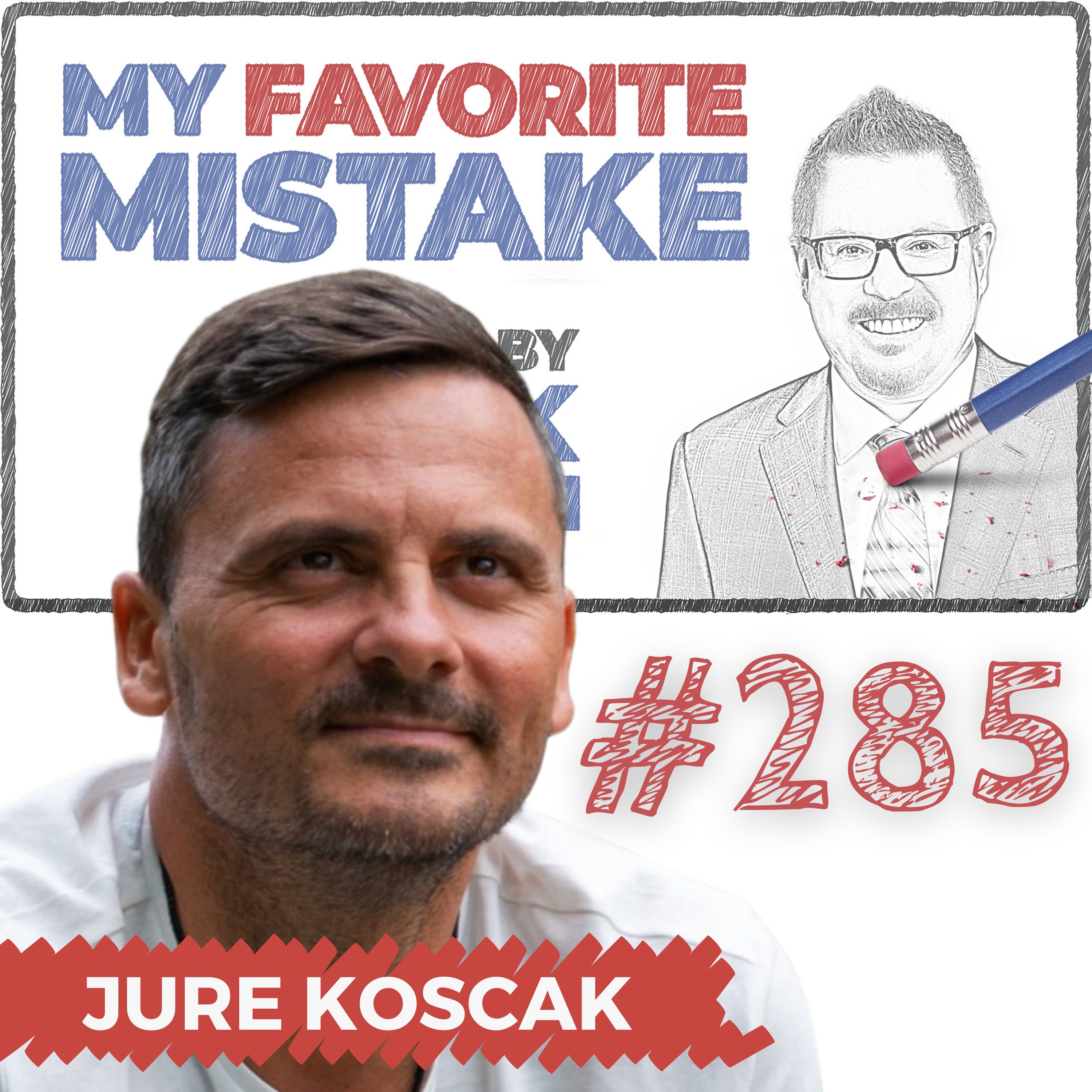
The Dangers of Overtraining: Jure Koscak’s Path to Self-Awareness and Healing
My guest for Episode #285 of the My Favorite Mistake podcast is Jure Koscak, a former professional table tennis player who competed for 15 years at the highest levels.
EPISODE PAGE WITH VIDEO, TRANSCRIPT, AND MORE
Alongside his athletic career, Jure pursued a deep interest in sports psychology, which eventually led him to earn a Ph.D. in physical education. For the past 15 years, he has specialized as a high-performance mental coach, working with over 50 professional athletes across various sports, as well as more than 1,000 private clients.
Jure is a polyglot, fluent in six languages, including Slovenian, English, Spanish, German, Serbo-Croatian, and French. His diverse background and experience allow him to connect with a wide range of clients, helping them not just to survive but to thrive in both their sports careers and personal lives.
In this insightful conversation, Jure shares his favorite mistake—his hip injury, which he attributes to a combination of arrogance and overtraining. Despite his professional success, Jure reflects on how he neglected the early warning signs from his body, overworked himself, and disregarded the balance necessary to sustain long-term performance. This mistake, which eventually led to a debilitating hip injury, forced him to confront the importance of listening to his body and respecting its limits.
Jure also discusses his transformation from athlete to coach, explaining how he now uses his experiences to help others avoid the same pitfalls. The episode explores the mind-body connection, overtraining, chronic pain, and how unresolved emotional issues can manifest physically. Jure introduces the AEQ Method, a somatic approach that helps individuals reconnect with their bodies, reduce chronic pain, and elevate emotional maturity. His goal is to empower athletes and individuals to become more self-aware, both mentally and physically, so they can perform at their best without sacrificing long-term health.
Questions and Topics:
What would you say is your favorite mistake?
How would you say injuring your hip was a mistake?
Did your hip injury occur during your peak in table tennis?
Did that injury end your career?
Was there a moment when you realized you weren’t listening to your body, or had you been aware of the mistake earlier?
Can you explain the AEQ Method and how it helps people?
How did you transition into coaching non-athletes?
How do people find you—are they seeking balance, dealing with pain, or something else?
Why do people self-sabotage, and is it tied to trauma or fear?
Why do people continue with behaviors they know are harmful?
How did helping 1 million people with chronic pain become your mission?
How much of positivity is personality versus something we can develop and learn?
38:5818/11/2024
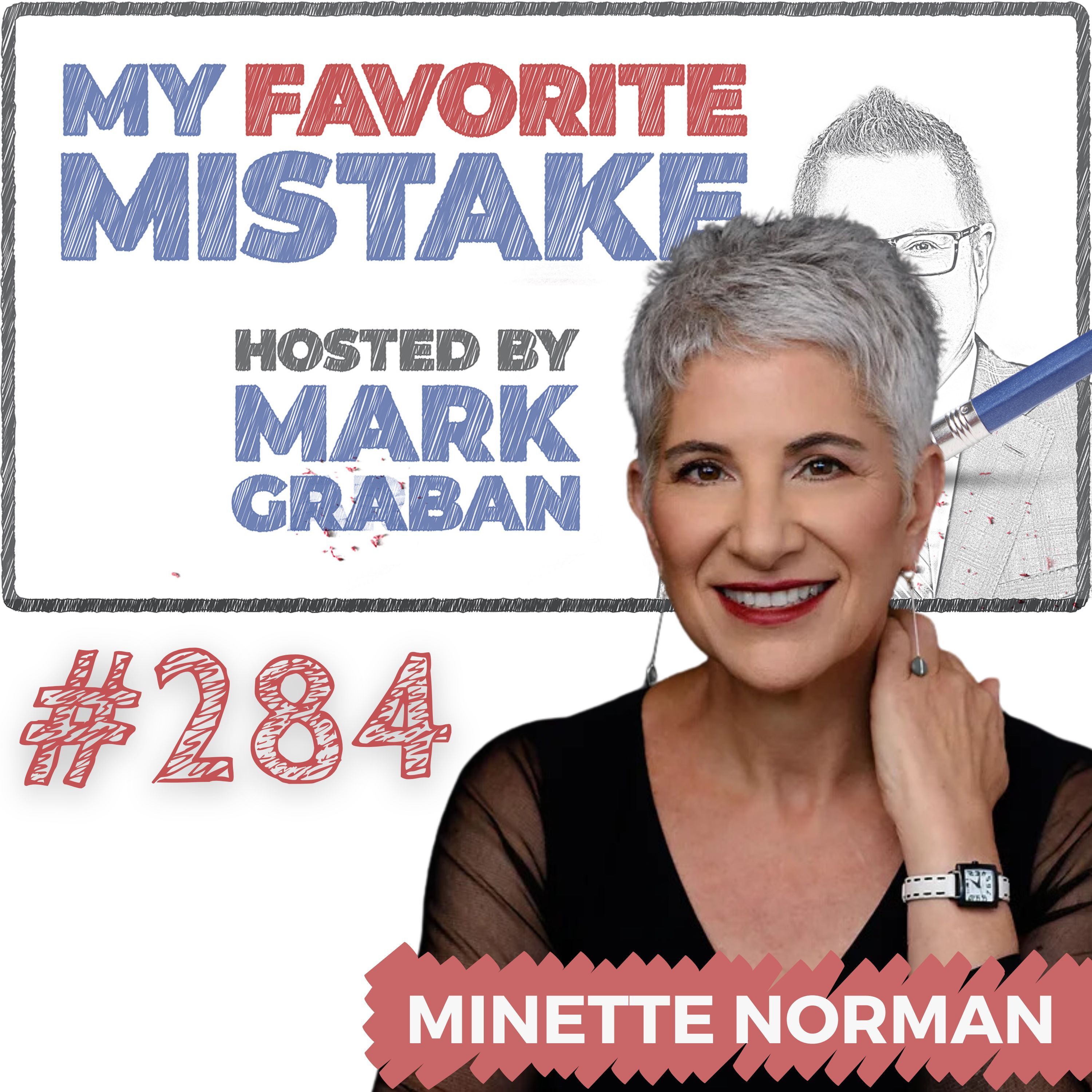
Creating Inclusive Workplaces: Minette Norman’s Insights on Psychological Safety
My guest for Episode #284 of the My Favorite Mistake podcast is Minette Norman, an author, speaker, and leadership consultant who previously spent decades leading global technical teams in the software industry.
EPISODE PAGE WITH VIDEO, TRANSCRIPT, AND MORE
Minette has extensive experience leading internationally distributed teams and believes that when groups embrace diversity in all its forms, breakthroughs emerge, and innovation accelerates.
Her most recent position before starting her consultancy was as Vice President of Engineering Practice at Autodesk.
Minette is a keynote speaker on inclusive leadership, psychological safety, collaborative teams, and empathy. She was named in 2017 as one of the “Most Influential Women in Bay Area Business” by the?San Francisco Business Times and as “Business Role Model of the Year” in the 2018 Women in IT/Silicon Valley Awards.
In this episode, the conversation covers the critical importance of psychological safety and inclusive leadership in the workplace. Minette shares stories from her tech career, highlighting the challenges of navigating power dynamics, cultural differences, and the role of empathy in leadership. She emphasizes the need for leaders to create environments where individuals feel safe to speak up, make mistakes, and share diverse perspectives without fear of retribution.
Minette is the author of The Boldly Inclusive Leader and co-author of The Psychological Safety Playbook.
The discussion also touches on the common misunderstandings about psychological safety, such as confusing it with comfort, and explores practical ways leaders can foster a culture of openness and accountability while maintaining high performance and innovation.
Questions and Topics:
What is your favorite mistake, and what did you learn from it?
How did your mentee’s situation change your perspective on leadership?
Did you consider legal action when you faced bullying and had to leave tech?
How do you define psychological safety, and why is it so important?
Can you have too much psychological safety?
How can leaders assess and improve psychological safety within their teams?
What role do leaders play in fostering a culture where it’s safe to admit mistakes?
How do demographic differences impact experiences of psychological safety?
How universal are the concepts of psychological safety and inclusion across cultures?
What advice do you have for leaders hesitant to admit their own mistakes?
49:2311/11/2024
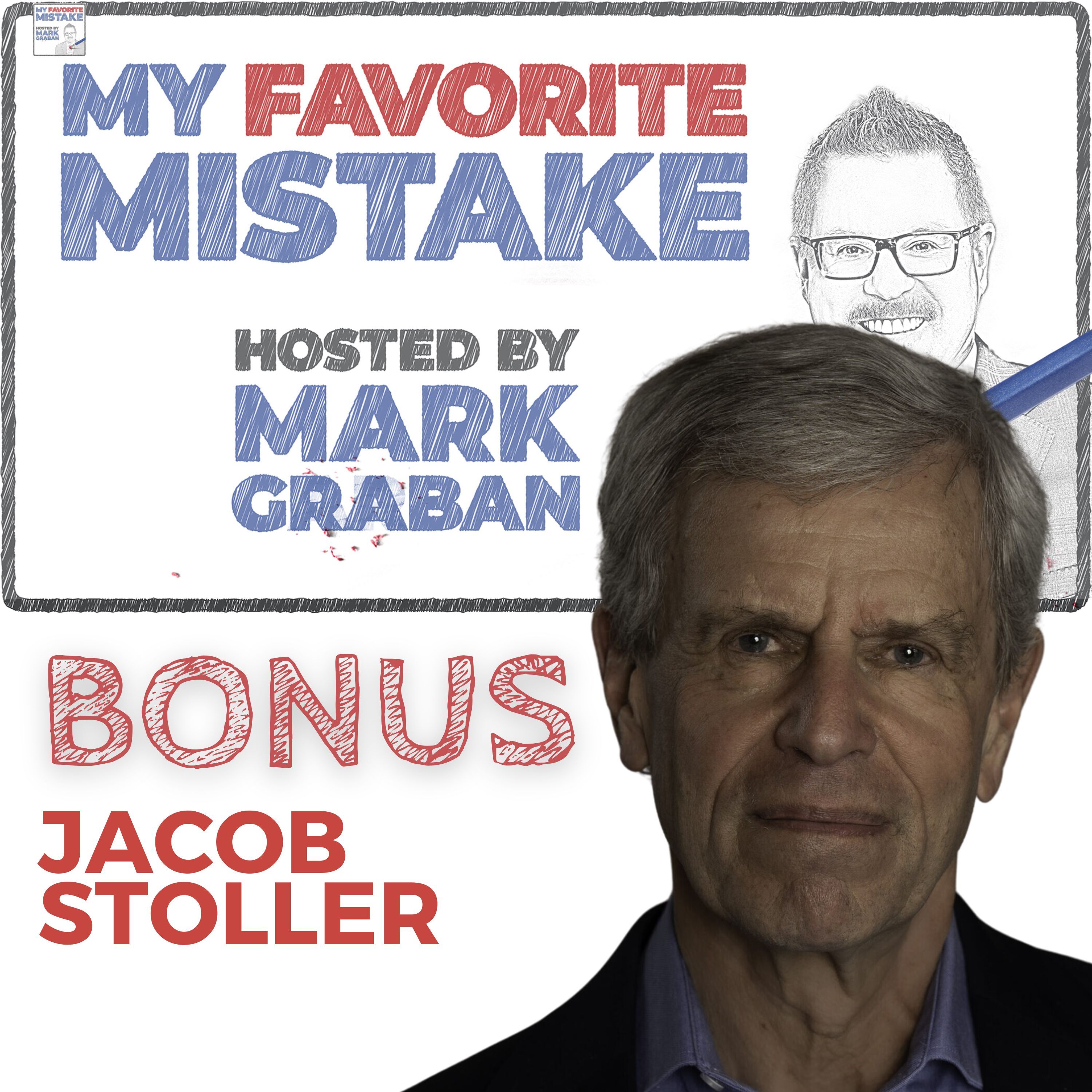
Jacob Stoller on Mistakes in Music: A Concert Train Wreck and Lessons Learned
In this bonus episode, Mark Graban sits down with author and speaker Jacob Stoller to discuss one of Jacob’s most memorable mistakes—a live performance mishap involving a botched page turn during a classical music concert.
As Jacob recounts, his decision to skip having a page-turner led to a "train wreck" moment in front of an audience, forcing the musicians to restart the piece. But this unexpected blunder turned out to be a surprising gift, making the experience more relatable and memorable for the audience.
Listen as Jacob reflects on how this mistake shifted his view on performance and connected him with listeners in a new way. Mark also shares his own story of a music slip-up, proving that even the most prepared musicians and performers can find themselves at a loss. This episode is a perfect blend of music, humility, and the valuable lessons we take from our mistakes.
🔗 Want to learn more about Jacob’s insights into performance and productivity? Check out his latest book, Productivity Reimagined: Shattering Performance Myths to Achieve Sustainable Growth, and listen to his full episode on the Lean Blog Interviews podcast.
⏩ Topics Covered:
The importance of learning from mistakes in any field
How to handle slip-ups and turn them into positive moments
Classical music, page-turning mishaps, and human connection through errors
Mark and Jacob's personal stories of musical mistakes and the lessons learned
07:4507/11/2024
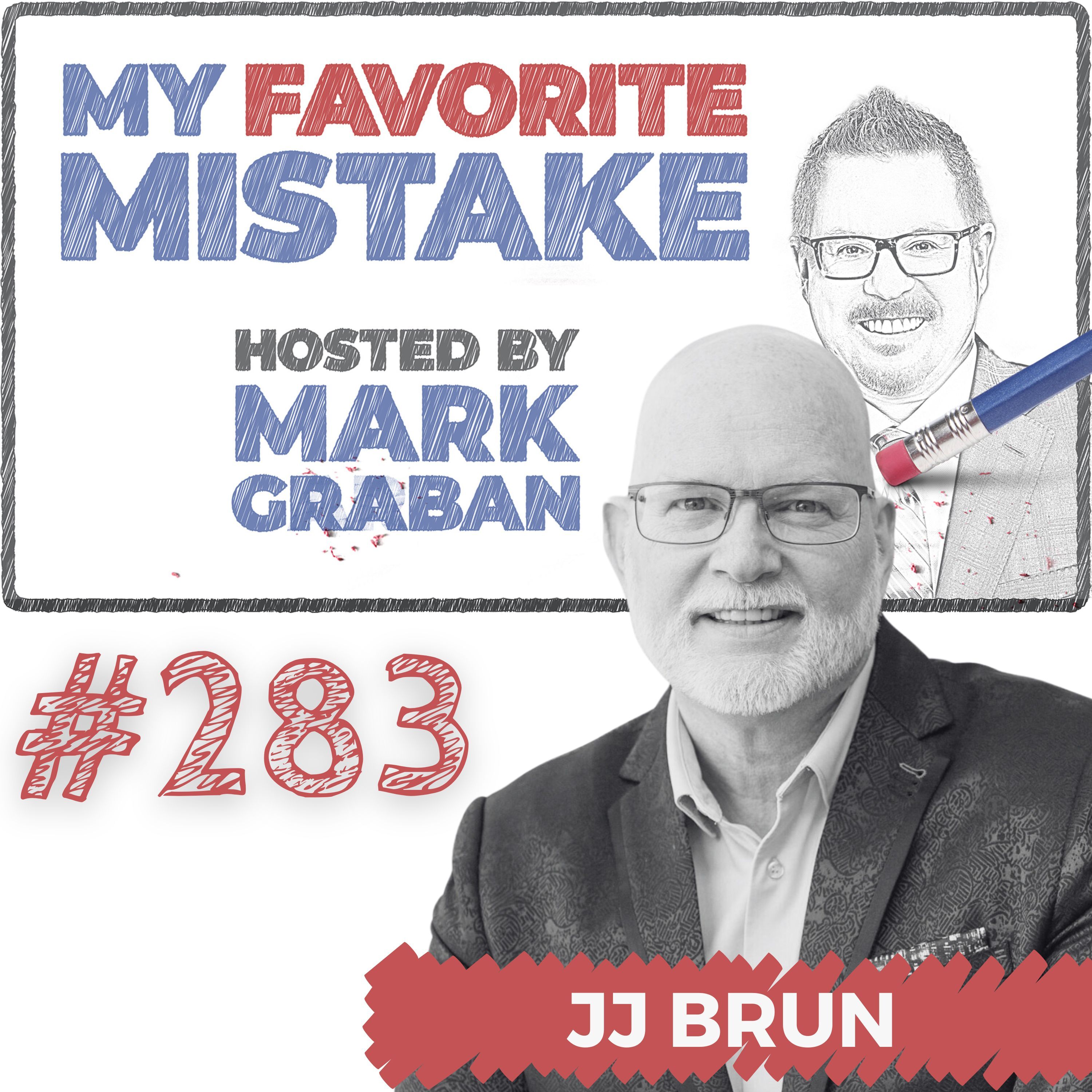
Building Trust in Hostile Environments: Lessons from Retired Spy JJ Brun
My guest for Episode #283 of the My Favorite Mistake podcast is Jean Jacques “JJ” Brun… also known as Operative 431.
Episode page with video, transcript, and more
As a seasoned veteran of the Intelligence Branch of the Canadian Armed Forces, he served with distinction as a contact handler on the ground in Bosnia and Herzegovina.
Years in the discrete world of human intelligence and counter human intelligence have driven my desire to understand human behavior’s intricacies and pass on the complex notion of interpersonal communication.
Although retired from active duty, JJ realized much of what he learned could be utilized in the civilian world. Based on the Four Temperament (DISC) Model of Human Behaviour to better understand and maximize human dynamics, his exclusive training programs provide a comprehensive analysis of communication techniques, empowering individuals to enhance authentic relationships that promote trust, innovation, and productivity.
In this episode, the conversation explores JJ Brun's transition from his role as an intelligence operative in the Canadian Armed Forces to applying his expertise in the civilian world. JJ shares stories from his time in Bosnia and the challenges of adapting to intelligence work without formal military training. He discusses key lessons learned, including the importance of self-awareness, situational awareness, and using behavioral models like DISC to understand and build relationships. The episode highlights how these skills, initially developed for high-stakes intelligence work, have proven valuable in helping leaders and organizations understand human dynamics more effectively.
Questions and Topics:
What does it mean to be a contact handler in intelligence?
What would you say is your favorite mistake?
Did anyone know you didn’t finish the last mile of the marchathon?
Was the training in the UK meant to prepare you for being on the other side of an interrogation?
How did you handle the potential for mistakes being deadly in intelligence work?
What was the Oka crisis?
What is involved in being a contact handler?
Was the debrief after your training focused on learning from mistakes, or did you get reprimanded?
How did you adapt to working in a war zone like Bosnia?
What’s the value of using the DISC model in your work today?
Can people learn more about your work and the DISC model through your website?
44:4104/11/2024
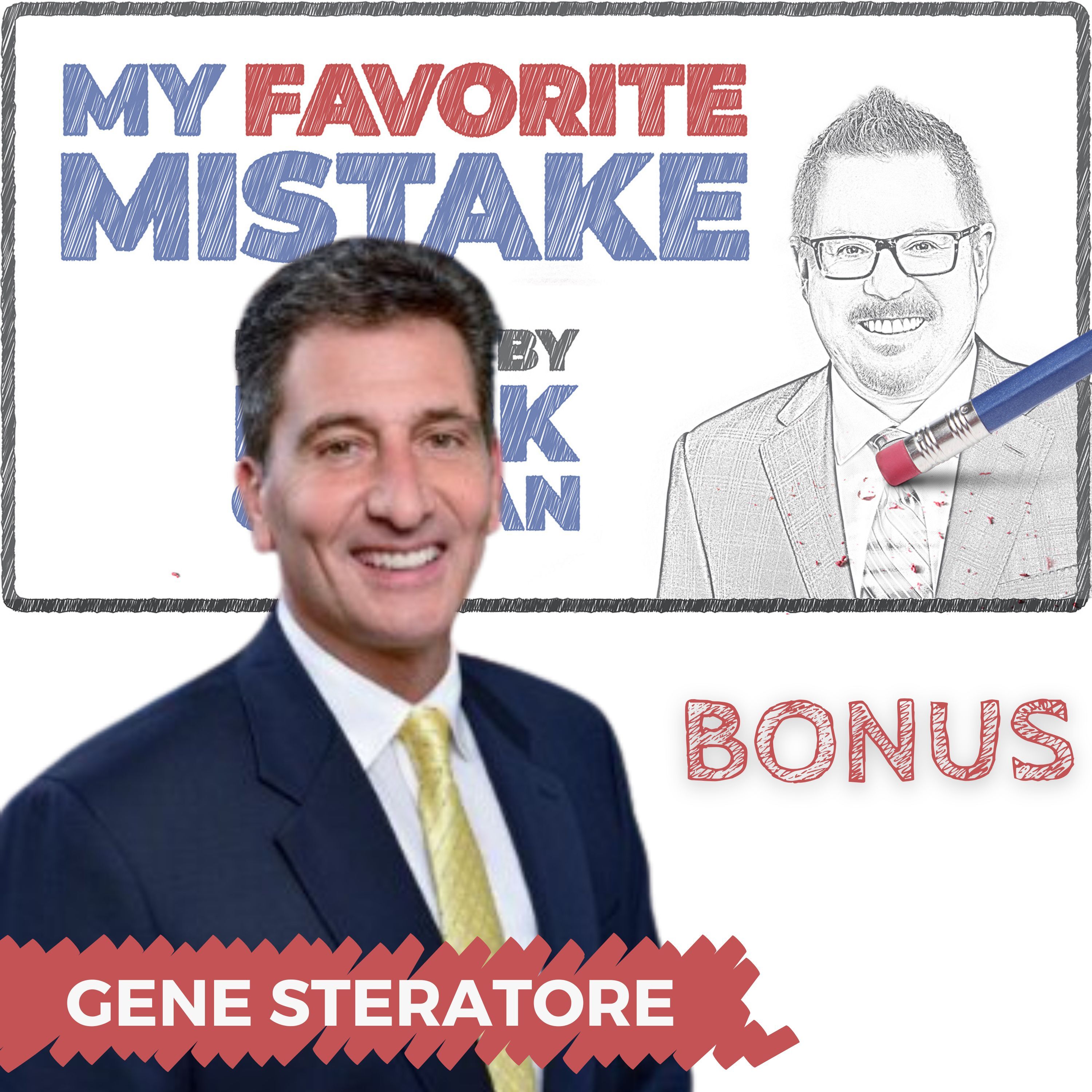
Former NFL & NCAA Referee Gene Steratore on Learning From Mistakes
In this special bonus episode of My Favorite Mistake, our guest (via Cameo) is Gene Steratore, a former NFL and NCAA basketball official known for his calm demeanor, fairness, and expertise on the field and court.
Episode page with video and transcript.
With over 15 years as an NFL referee and a longstanding career in NCAA basketball officiating, Steratore became a trusted figure in sports, celebrated for managing high-stakes games, including playoff and Super Bowl matchups. After retiring from officiating, he transitioned to broadcasting as a rules analyst for CBS Sports, where he brings insights on officiating decisions and the human element in sports.
Gene graciously shares his perspective on the importance of learning from mistakes both on and off the field. Gene reflects on the challenges of officiating, where striving for perfection meets the reality of human fallibility. He discusses the humility required to accept imperfection in the moment and the invaluable lessons mistakes provide for honing one's craft.
Beyond sports, Gene explores how these lessons translate to everyday life, emphasizing the importance of self-reflection, resilience, and growth. This episode is a must-listen for anyone looking to embrace the learning journey that comes with making – and learning from – mistakes.
03:1231/10/2024
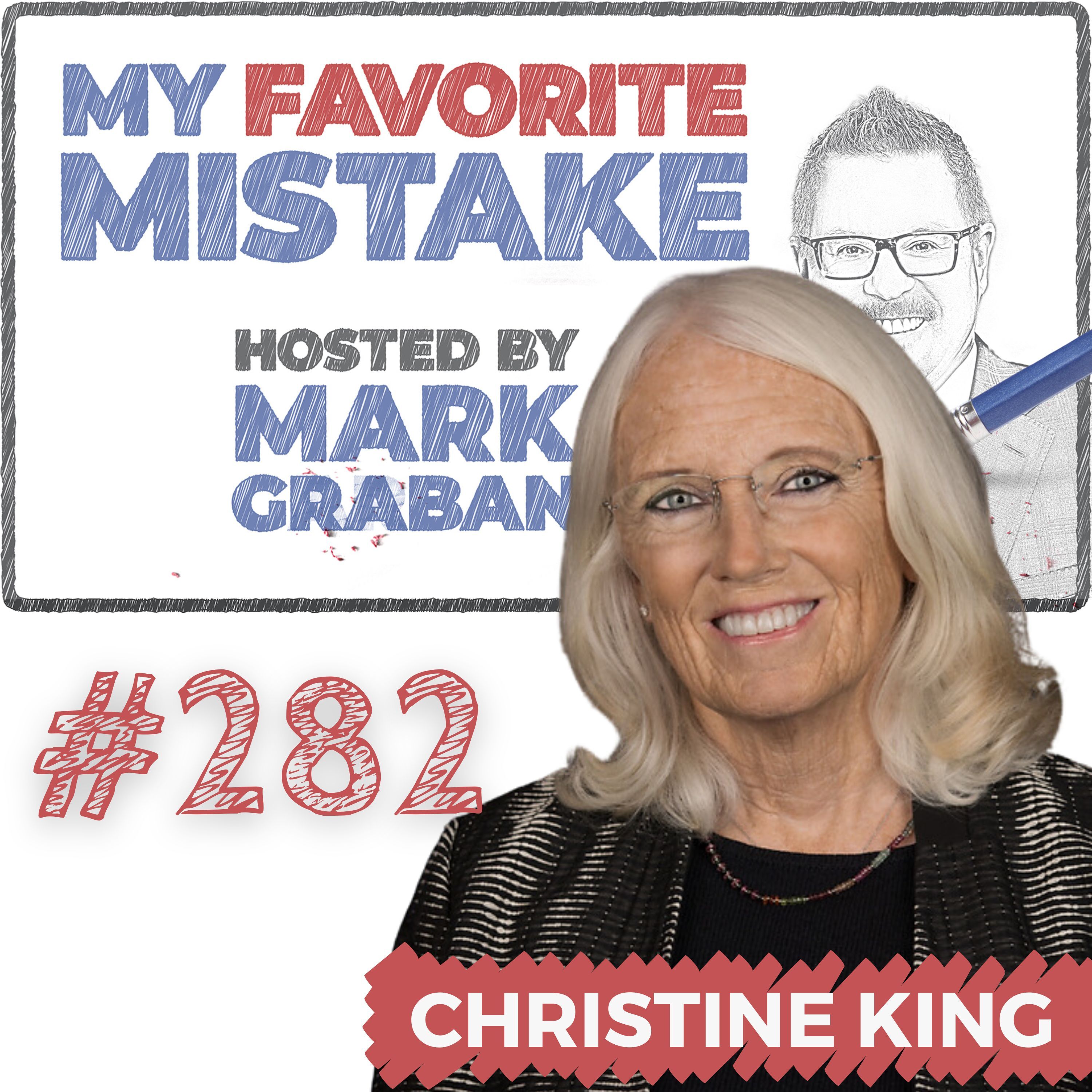
How Christine King Went from Welfare to Pioneering Female CEO in Semiconductors
My guest for Episode #282 of the My Favorite Mistake podcast is Christine “Chris” King, who defied the odds as a single mother in the 1970s, rising to become the world's first female CEO in the semiconductor industry. Armed with degrees in electrical engineering, Chris climbed the ranks at IBM before leading billion-dollar companies like AMI Semiconductor, Standard Microsystems, and QLogic Corporation.
Episode page with video, transcript, and more
Her leadership extended across engineering, sales, and business management, and she even founded Expedition Electronics. Beyond technology, Chris is also a champion equestrian and dairy farmer. Her incredible journey is captured in Breaking Through the Silicon Ceiling.
In today's episode, Chris reveals how an initial mistake—pursuing electrical engineering to impress someone—unexpectedly launched her into a successful engineering and leadership career. Chris and Mark discuss the challenges she faced as a woman in a male-dominated field, the importance of persistence, and her approach to leading successful business turnarounds.
We also touch on her experiences as a champion equestrian and a dairy farmer, drawing parallels between problem-solving in agriculture and business. Throughout the conversation, Chris emphasizes the value of learning from mistakes, building confidence, and leveraging opportunities for growth, offering listeners practical leadership insights and inspiration.
Questions and Topics:
What would you say is your favorite mistake?
Did the relationship with the guy who inspired you to study engineering work out?
As you went through your engineering education, did you have doubts? Did it feel like a mistake at first?
Why would a caseworker be resistant to letting you attend college?
Did you have to pitch your plan for going to college? How did you make it work financially?
What was it like being the first or only woman on teams early in your career?
When did you start transitioning from technical roles to leadership roles, and did you aspire to become a CEO?
How did the team you managed react to having a female boss?
What challenges did you face with your superiors as you advanced?
How did you feel about becoming a CEO for the first time, especially on 9/11?
Did the events of 9/11 affect your business?
What lessons did you learn from leading turnarounds, and how did you diagnose the issues?
Did you encounter similar challenges during other turnarounds, like the one during the 2008 financial crisis?
How did media attention around being the first female CEO in semiconductors affect you?
Who were some CEOs that you admired or learned from?
What are the three things any successful businessperson needs?
What three things do people not need to succeed in business?
How many women have followed your path in the semiconductor industry?
What lessons did you learn from dairy farming?
What lessons did you learn from equestrian competitions?
How do you see the parallels between leading a team and managing livestock or horses?
How do you approach creating a culture of learning from mistakes in leadership?
What inspired you to write your book, Breaking Through the Silicon Ceiling?
How do you reach the audience you want with your book, and what creative efforts have you made for that?
Who is the audience you’re hoping to inspire with your story?
What advice would you give for fostering interest in STEM among young women?
37:3728/10/2024
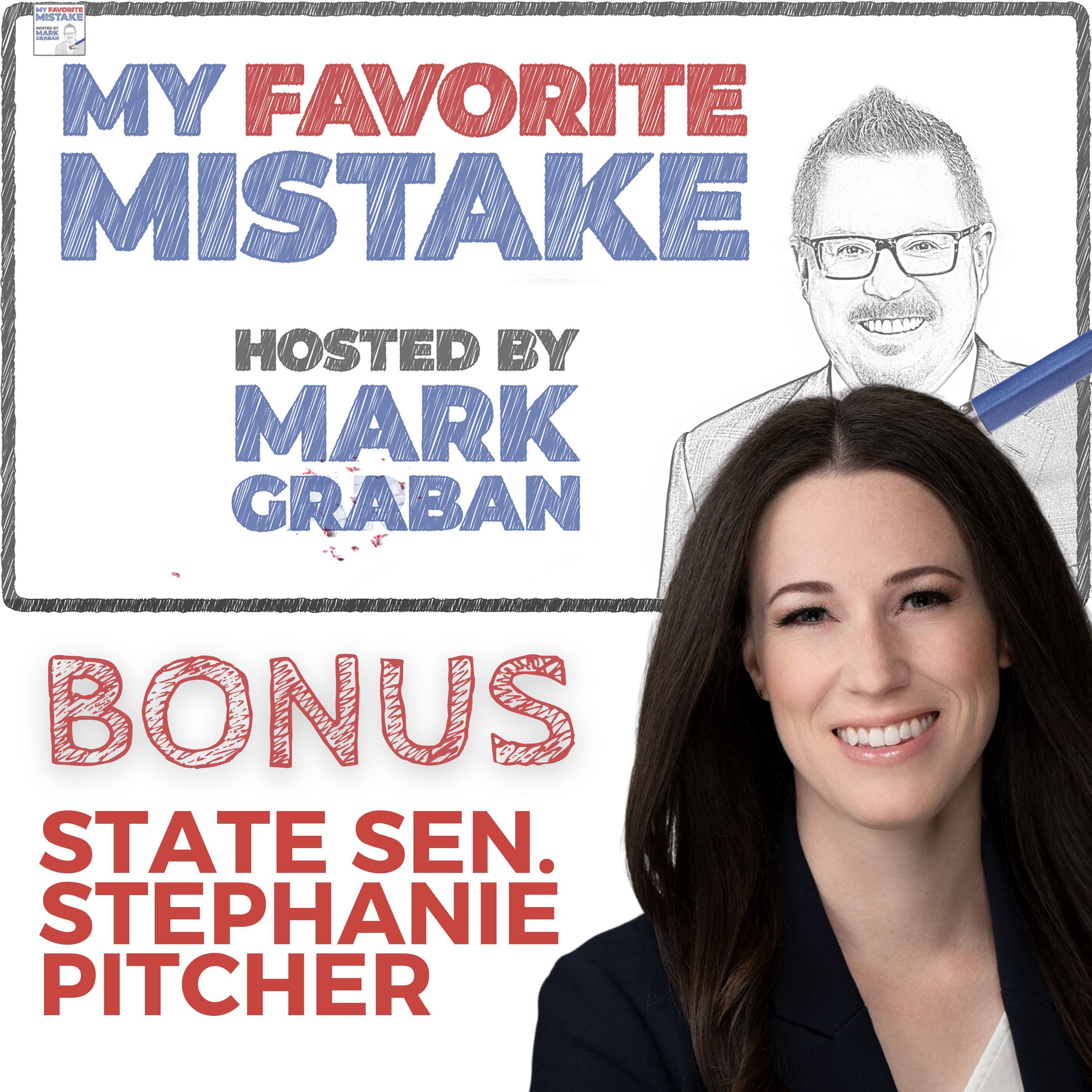
Unsubscribed: Why Political Texts Won't Leave You Alone, with State Sen. Stephanie Pitcher
In this special bonus episode of My Favorite Mistake, Mark Graban sits down with Senator Stephanie Pitcher, a criminal defense attorney (at Parker & McConkie in Utah) and Utah state senator, to discuss a modern campaign tactic that’s frustrating voters nationwide: political text messages. Senator Pitcher provides an insider’s view on why candidates rely on these texts to build name recognition, the rules governing them, and how campaigns respond (or sometimes don’t) to requests to “STOP.”
Mark and Stephanie dive into questions many of us have wondered: Is anyone really reading our responses to campaign texts? Are these messages effective, or do they risk driving away potential voters? Senator Pitcher shares her personal experiences with both sending and receiving political texts, the realities of balancing voter outreach with respect for privacy, and the challenge of navigating the fine line between visibility and annoyance.
For those curious about how campaign data is shared and why unsubscribing doesn’t always work as intended, Stephanie explains the often complex web of candidate PACs, third-party vendors, and data-sharing that keeps these messages coming. She also discusses her plans to explore more sophisticated social media advertising, leaving listeners with a thought-provoking view on the future of campaign outreach.
Tune in to hear a behind-the-scenes look at campaign messaging from a seasoned state senator’s perspective!
10:4725/10/2024
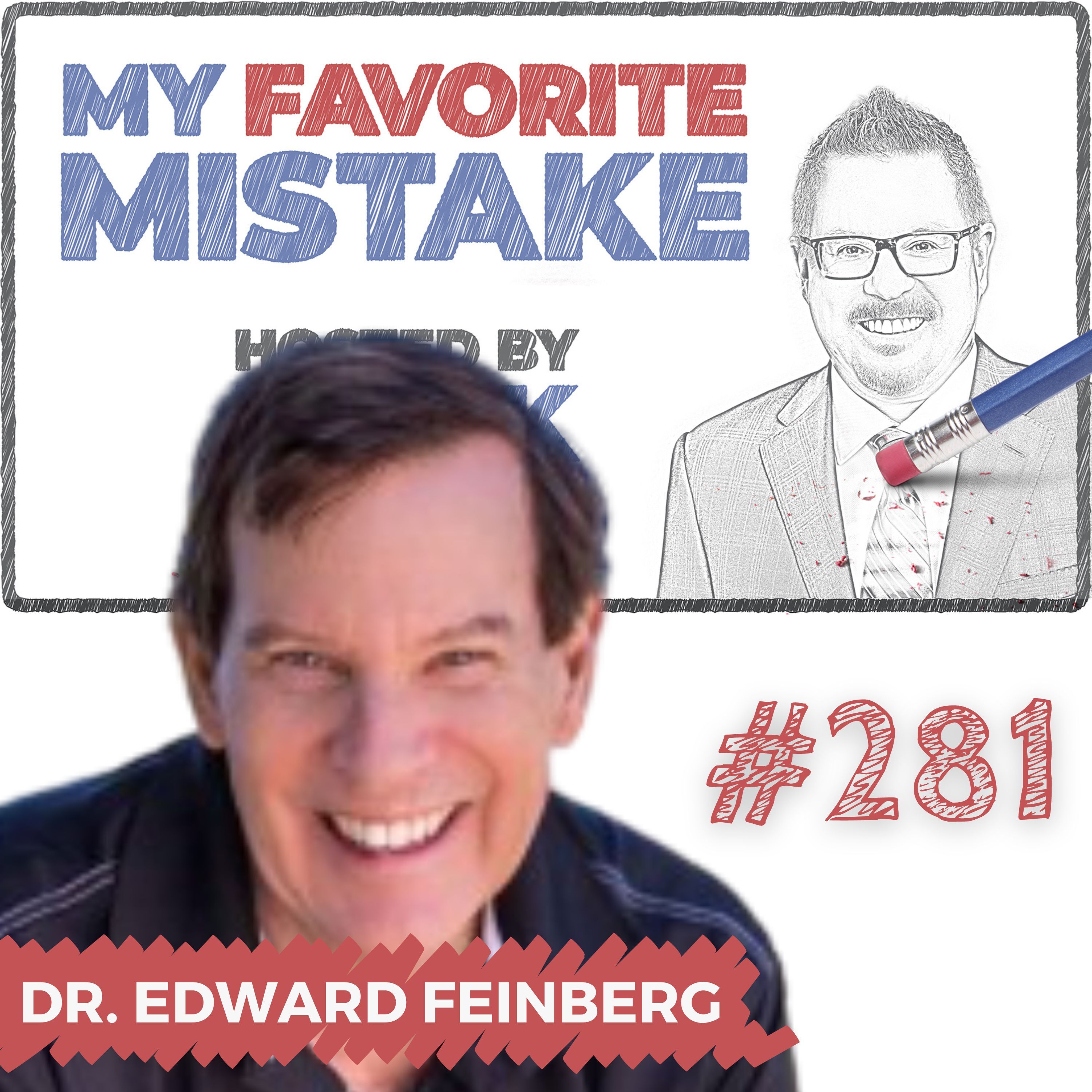
The Crown That Fell Off: Dr. Edward Feinberg's Favorite Mistake in Restorative Dentistry
My guest for Episode #281 of the My Favorite Mistake podcast is Dr. Edward Feinberg, a distinguished expert in restorative dentistry who has dedicated over 40 years to advancing dental care. Dr. Feinberg graduated from Tufts University, was trained by his father, Dr. Elliot Feinberg, a pioneer in full coverage restorative dentistry, and practiced in Scarsdale, New York, before moving to Arizona, where he now practices.
Episode page with video, transcript, and more
He is the Director of ONWARD, an online teaching organization for full coverage restorative dentistry, where he has created over 30 courses and provides a wealth of educational resources.
A nationally recognized lecturer and author, Dr. Feinberg has contributed significantly to dental literature, including his essay collection, "Open Wide: Essays on Challenges in Dentistry to Achieve Excellence." He also serves on editorial boards and councils for various dental associations and has been honored with numerous awards for his contributions to the field.
In this episode, Ed shares insights from over 40 years in the field and discusses his unique approach to saving teeth, which contrasts with the widespread practice of extracting teeth and opting for implants. Dr. Feinberg’s "favorite mistake" involved a crown falling off a colleague’s tooth—a rare but impactful error. Through this experience, he reinforced his belief in trial-based dentistry and using precise techniques to ensure long-lasting dental solutions.
Dr. Feinberg advocates for saving teeth first, using crowns and bridges when appropriate, and stresses that implants should only be used when absolutely necessary. The conversation also touches on the overuse of implants in modern dentistry, the importance of prevention, and learning from mistakes to improve patient care.
Questions and Topics:
What would you say is your favorite mistake?
Was that the first time a crown had fallen off, or was it just a rare occurrence?
Were you able to implement any checks or mistake-proofing to prevent this from happening again?
Can you explain the difference between focusing on the tooth structure above the gum versus below the gum?
How do you use temporary crowns, and why do some fall out while others don’t?
Do you believe dental education is keeping up with advancements in restorative techniques?
What are your thoughts on the current trends in implant dentistry?
Do you think a lot of dentists are making mistakes with implants, and why?
Are there preventive or mistake-proofing methods you apply in your practice to avoid common dental issues?
Why do you think patients typically don’t seek second opinions in dentistry, unlike in medicine?
Does the overuse of implants lead to malpractice cases or trouble with insurance?
Why are patients quick to judge dentists based on superficial factors rather than their actual dental work?
What are your thoughts on veneers—are they purely cosmetic, and when are they appropriate?
How can dentists better manage biomechanical stress when performing implant procedures?
Are there concerns about the future reputation of dentistry due to inappropriate practices?
What advice would you give to patients about prevention and the importance of regular dental hygiene visits?
Key Topics Discussed:
Dr. Feinberg’s favorite mistake: A crown falling off a colleague’s tooth and the lessons he learned about precision and correcting errors.
Restorative dentistry techniques: Focusing on the root structure below the gum for crown and bridgework to ensure long-lasting results.
The overuse of implants: Dr. Feinberg discusses the inappropriate use of implants and his preference for saving teeth when possible.
Dental education: Concerns that dental schools are not teaching the best restorative methods and the influence of economic pressures on young dentists.
Precision attachments: A less common, effective alternative to implants that can save teeth, especially for complex cases.
Patient care and trust: How patients often judge dentists on superficial factors and the importance of second opinions in dental treatment.
Preventive care: The importance of regular hygiene visits to prevent periodontal bone loss, which is crucial for long-term dental health.
46:5821/10/2024
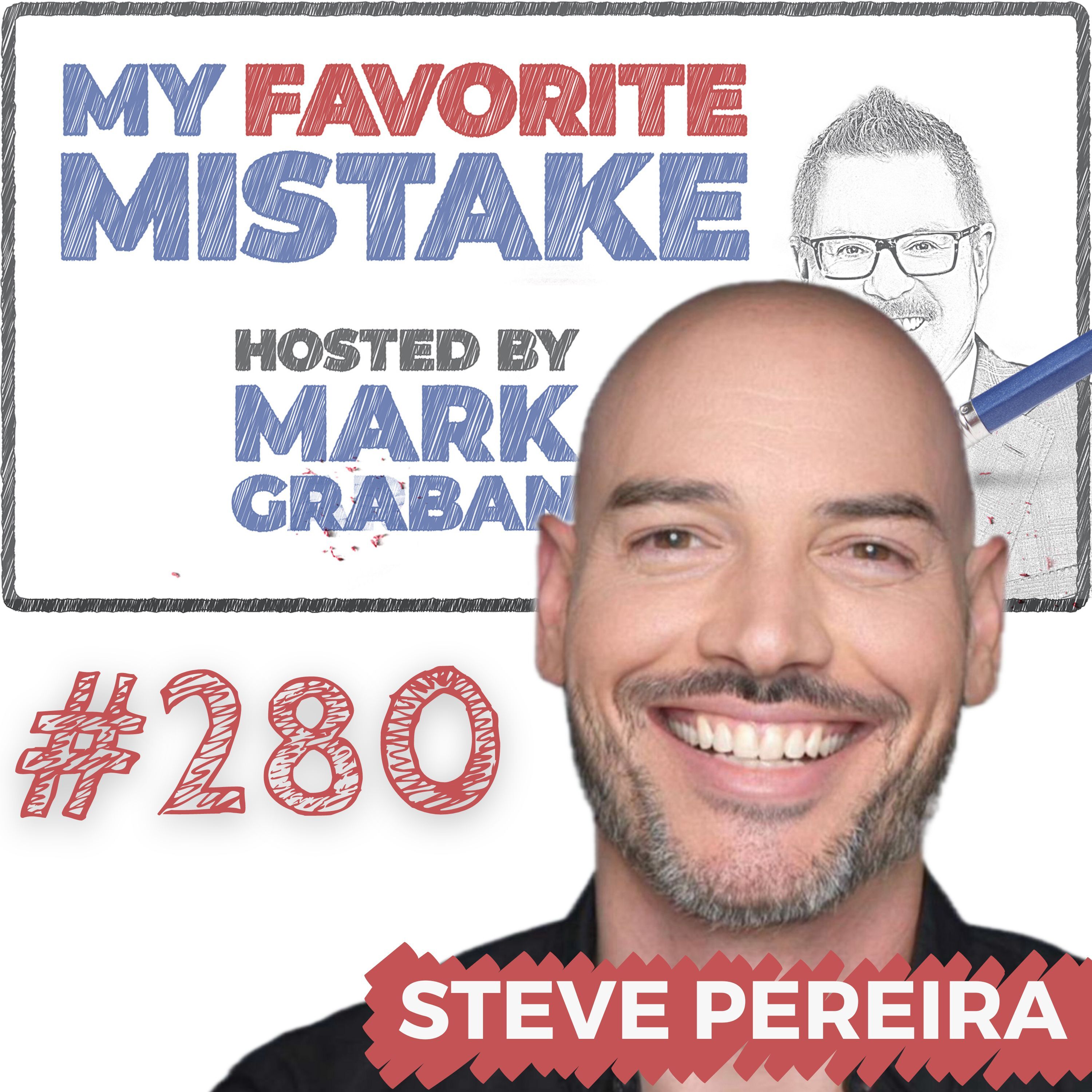
Overcoming Mistakes in Tech Leadership: Steve Pereira's Journey with Flow Engineering
My guest for Episode #280 of the My Favorite Mistake podcast is Steve Pereira. He has spent over two decades improving the flow of work across organizations. He’s worked through tech support, IT management, platform and infrastructure engineering, product management, and as a founding CTO for enterprise SaaS.
Episode page with video, transcript, and more
He serves as CEO of Visible Consulting, as COO to the Value Stream Management Consortium, Chair of the OASIS VSM Interoperability technical committee, and co-founder of the Flow Collective to bring flow-focused professionals together. Since 2017, he has been developing and facilitating Flow Engineering.
He is the co-author of Flow Engineering: From Value Stream Mapping to Effective Action - his co-author, Andrew Davis, was a guest here recently. Steve and Andrew also joined me for an episode of "Lean Blog Interviews."
In this episode, Steve shares his journey in improving workflows and the lessons learned from his favorite mistake. Steve recounts how, in a previous role as a developer, he assumed that his own needs mirrored those of other developers, leading him to spend significant time creating a solution without gathering proper feedback. This isolated approach resulted in wasted time and an ineffective outcome. Through this mistake, Steve realized the importance of customer validation and iterative development, key principles he now applies in his work.
We also explored the concept of "failure debt," the role of psychological safety in fostering learning from mistakes, and how flow engineering can transform collaborative workflows.
Questions and Topics:
What would you say is your favorite mistake?
How did things play out with that mistake in your career?
How many other developers were you working with on this task?
When did you realize the project wasn't working, and how did you adjust?
How did you eventually start to learn from these mistakes?
When did these lessons become more clear to you in your career?
Can you elaborate on how sharing mistakes publicly helped lessen the sting over time?
How would you define 'flow engineering' for someone outside of software development?
How do you think mistakes, bugs, or defects affect flow? Do speed and quality go hand in hand?
What are your thoughts on how leaders can foster psychological safety and a learning culture where mistakes are embraced?
What is 'failure debt' and how can organizations address it?
Did the writing process for Flow Engineering reflect some of these lessons on customer feedback and iteration?
Key Topics:
Steve's favorite mistake of assuming his own needs were the same as other developers, leading to wasted time.
Importance of customer feedback and validation in technical projects.
The Abilene Paradox and how it relates to satisfying multiple stakeholders poorly.
Learning from mistakes over time, especially in leadership roles like CTO.
The impact of public accountability in lessening the sting of failure.
Definition and application of flow engineering to improve collaborative workflows.
The relationship between mistakes and flow, and how speed and quality work together.
The role of psychological safety in creating a learning organization.
Concept of failure debt and how unaddressed failures can accumulate, leading to bigger issues.
How Flow Engineering was written iteratively, applying lessons learned from Steve’s career.
45:2914/10/2024
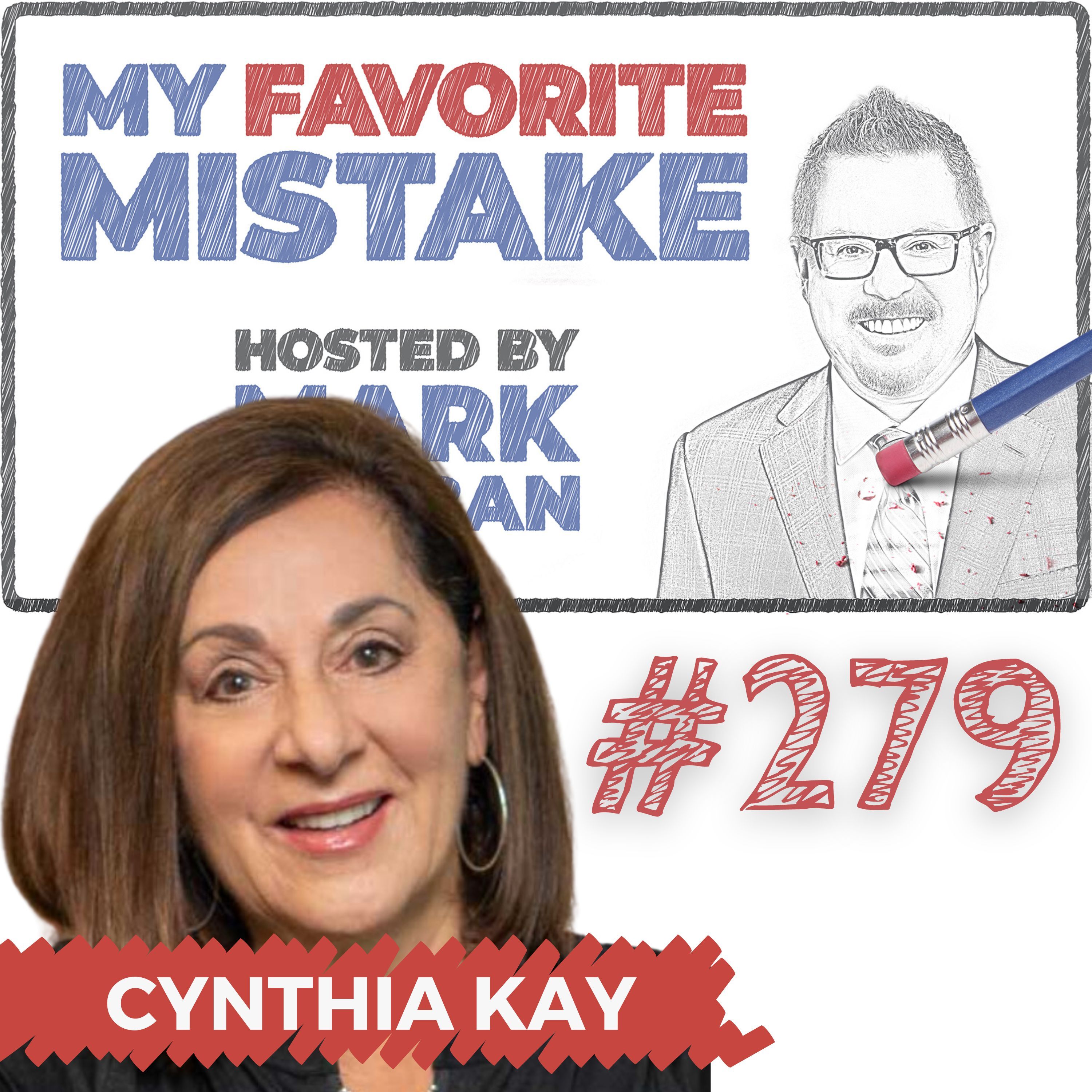
The Biggest Mistakes Small Business Owners Make: Insights from Cynthia Kay
My guest for Episode #279 of the My Favorite Mistake podcast is Cynthia Kay, author of Small Business Big Success: Proven Strategies to Beat the Odds and Grow a Great Business.
Episode page with video, transcript, and more
As a business owner for over 35 years, Cynthia Kay has attracted well-known and respected customers from the global Fortune 100 to smaller forward-thinking businesses. Along the way, she has developed practical, actionable strategies for businesses from starting up to stepping out.
As a former board chair of the National Small Business Association, she had advocated for small businesses and spoken to diverse audiences across the country. She has also mentored business owners as a member of the American Academy of Entrepreneurs.
In this episode, Cynthia shares her journey as a business owner and the lessons she's learned along the way. Cynthia discusses her favorite mistake—starting her business with a partner who wasn’t a good fit. Despite planning out the financial and operational aspects, she overlooked the importance of aligning on working styles, values, and approaches to growth. Over time, their differing perspectives, particularly around scaling the business and relinquishing control, created tension. This led to the eventual dissolution of the partnership.
Through this experience, Cynthia developed the idea of a "business prenup," emphasizing the importance of thorough communication and alignment before entering into partnerships. She also offers advice on leadership, hiring, and building a resilient organization.
Questions and Topics:
What would you say is your favorite mistake?
Why do you think the partnership didn’t work?
How did things end up playing out with the partnership?
How quickly did those differences show up, or did they creep in over time?
How did you try to address those differences?
What advice do you have for others considering partnerships?
When you say the company had grown, how many employees did you have, or what was the scale of growth?
Can you tell us about the moment when you realized the partnership wasn’t working?
Can you talk about some of the common mistakes small business owners make?
What advice would you give about building a resilient organization after setbacks or mistakes?
How do you handle disagreements in your company, especially with different generations in the workplace?
What are the key traits that lead to success in your company?
How do you foster a culture where people feel comfortable admitting mistakes?
What are your thoughts on creating a learning organization?
What traits or behaviors do you look for in people who are successful at CK and Company?
Where can people find more information about you and your book?
44:3907/10/2024
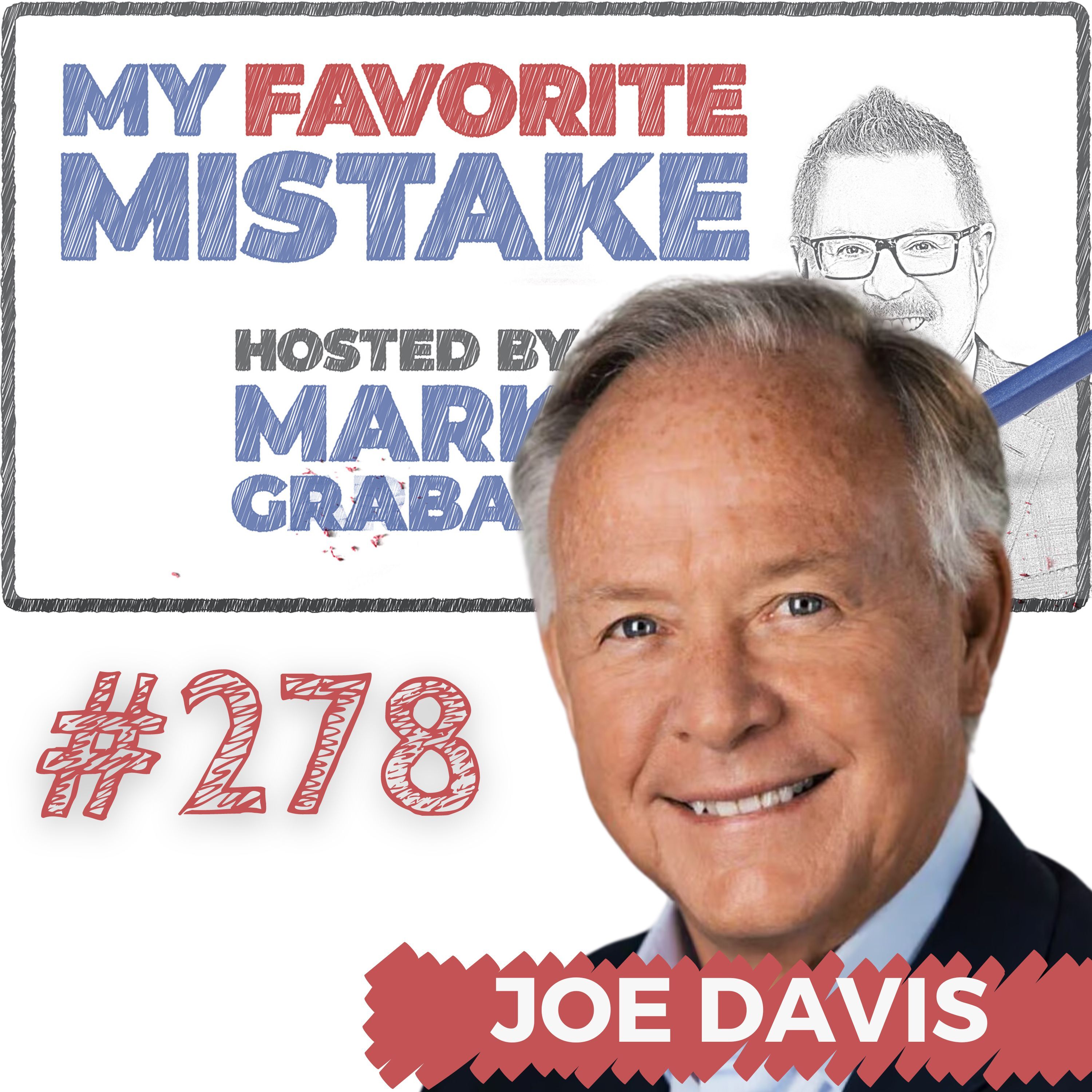
Joe Davis of BCG: Leadership Lessons on Generosity, Feedback, and Inclusion
My guest for Episode #278 of the My Favorite Mistake podcast is Joe Davis, Managing Director and Senior Partner at the Boston Consulting Group (BCG) and author of The Generous Leader: 7 Ways to Give of Yourself for Everyone's Gain.
Episode page with video, transcript, and more
He’s had 40+ years of experience managing and leading teams. Joe has also served as chair of BCG’s Center for Inclusion and Equity and is a founding steering committee member of CEO Action for Racial Equity and the Southern Communities Initiative.
In this episode, Joe shares his "favorite mistake" from early in his career at Procter & Gamble, where he learned the importance of giving timely feedback to his team. The conversation explores leadership generosity, vulnerability, and the value of creating trust within teams.
Joe also discusses his work with BCG’s Center for Inclusion and Equity and addresses how leaders can navigate challenges in promoting diversity, equity, and inclusion. Throughout, he offers insights on leadership growth, balancing results with empathy, and leading with authenticity.
Questions and Topics:
What is your favorite mistake?
Should anyone be surprised by what they hear in an annual review?
How do you handle dynamics of giving feedback to people older than you?
How do you define generosity in leadership?
Is leadership generosity the opposite of a transactional, quid pro quo approach?
What’s your perspective on using terms like "problem" vs. "opportunity" when giving feedback?
How do you define vulnerability as a leader, and do you think vulnerability is often mistaken for weakness?
How can early-career consultants effectively advise older executives?
What’s the role of the BCG Center for Inclusion and Equity, and why that specific terminology?
How do you navigate pushback against diversity, equity, and inclusion (DEI) initiatives within organizations?
How do you address employees or leaders who criticize DEI efforts as promoting 'equal outcomes' over 'equal opportunities'?
Is it possible to convince long-tenured leaders to move away from top-down, command-and-control leadership styles?
How do you strike a balance between being vulnerable and still delivering results as a leader?
49:1730/09/2024
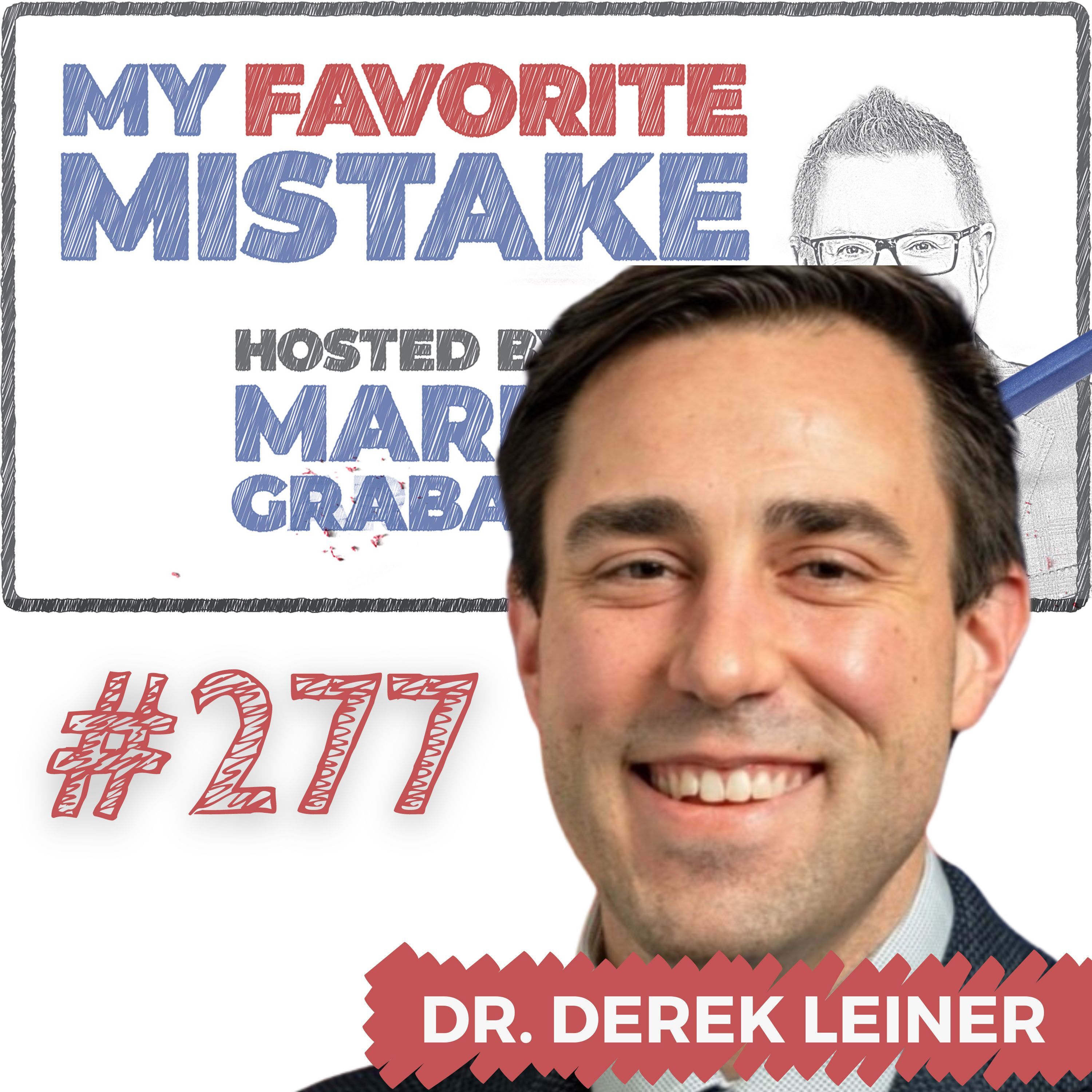
Can Honesty Be the Best Medicine? A Doctor Discloses a Mistake - Derek Leiner
My guest for Episode #277 of the My Favorite Mistake podcast is Derek Leiner, MD, FACP.
Episode page with video, transcript, and more
Dr. Leiner trained in internal medicine at VCUHealth and the Richmond VA Medical Center. In 2018, he completed a year as Chief Resident for Quality and Safety, a national VA QI and safety training program then began as a staff physician at the Richmond VA Medical Center.
His career has included teaching, education leadership as an Associate Program Director for a medicine training program, and safety culture leadership. Derek currently works as an academic hospitalist and is the physician champion for high reliability at the Richmond VA Medical Center. He has a passion for humanism, collaborative care, and just culture.
In this episode, we discuss a medical error involving a lumbar puncture procedure and the subsequent emotional impact on the healthcare professional involved. We explore the distinction between near misses and patient harm, highlighting the importance of learning from both. The concept of Just Culture is introduced, emphasizing a fair and supportive approach to addressing errors. We delve into High Reliability Organizations and their focus on creating a culture of safety. The significance of open communication with patients and the potential for positive outcomes is also addressed.
Additionally, we examine the "second victim" phenomenon, where healthcare professionals experience emotional distress following errors. The episode concludes with practical strategies for recovering from mistakes and fostering a culture of continuous learning and improvement in healthcare.
Questions and Topics:
What is your favorite mistake?
Is this a near miss or patient harm?
Did I understand your definition of a near miss correctly?
What was the reaction and response to the incident?
Can you explain the concept of high reliability organizations and its relevance to healthcare?
What was the patient's reaction to the disclosure?
What is your reaction to Doctor Mayer's story?
What are your thoughts on Just Culture?
How do you coach others to recover from mistakes and combat negative self-talk?
Key topics discussed:
Lumbar puncture incident & its emotional impact
Near miss vs. patient harm
Just Culture & its implementation
High reliability organizations (HROs)
Patient disclosure and reactions
Second victim phenomenon & support
Recovering from mistakes & learning
Systemic factors, human error & normalization of deviance
Importance of continuous learning & improvement
53:2423/09/2024
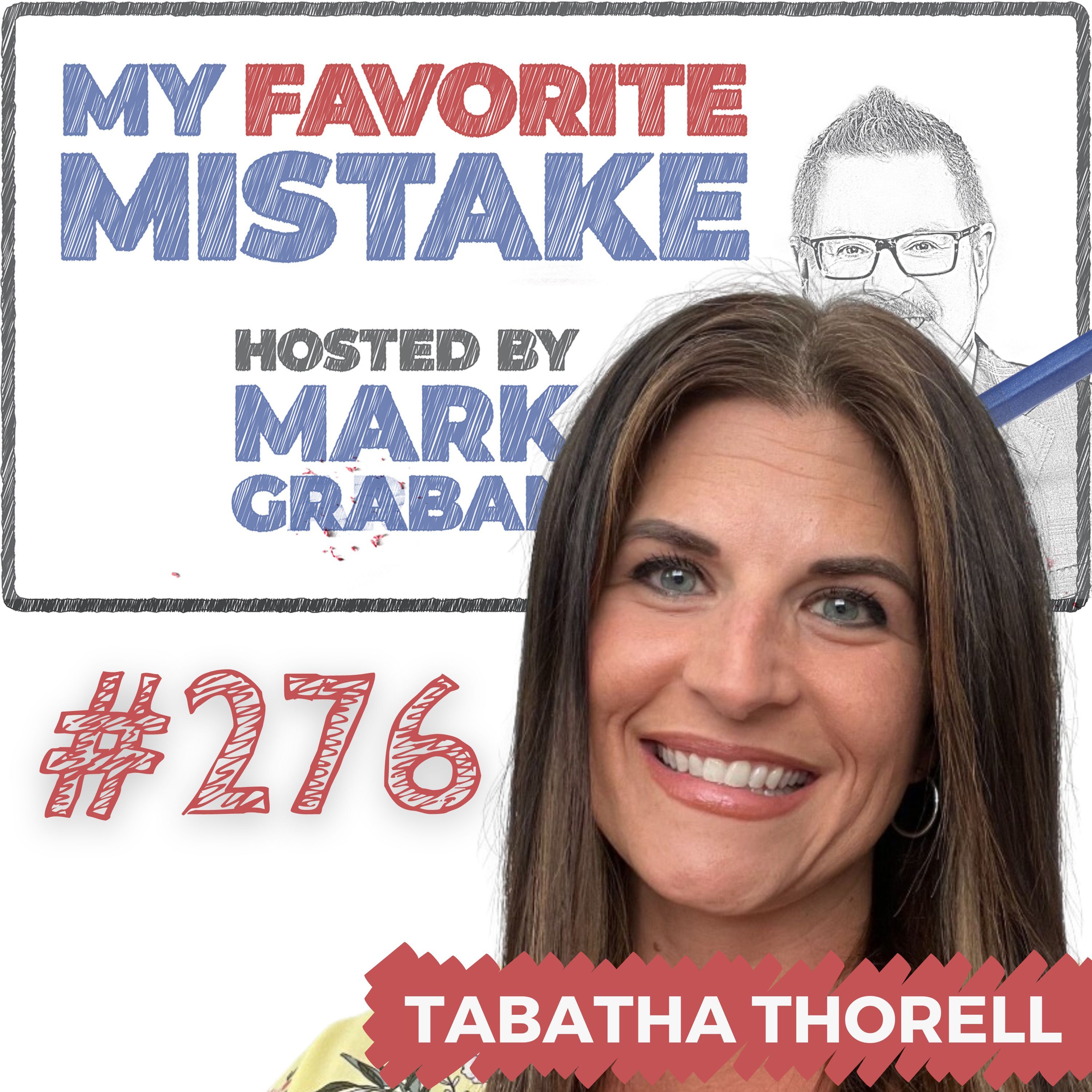
Life, Business, and Mistakes: Lessons from Tabatha Thorell’s Coaching Career
My guest for Episode #276 of the My Favorite Mistake podcast is Tabatha Thorell, a multi-faceted entrepreneur with a background in fitness coaching, real estate investing, life coaching, and more. Tabatha, a native of rural Nebraska and mother of five, shares her inspiring journey of resilience and success across various industries. With nearly two decades of real estate experience alongside her husband, Tabatha has continually pushed herself to grow, all while helping others achieve their dreams through coaching and her podcast, What Went Wrong?
Episode page with video and more
We discuss Tabatha’s "favorite mistake," which involved investing in an expensive coaching program that didn’t align with her needs. Despite her initial frustration and the lack of a refund, she turned the experience into a valuable learning opportunity. In the episode, she explains how this mistake helped her develop a stronger sense of self-reliance and taught her the importance of finding value, even in failure.
Tabatha also opens up about the challenges of balancing risk-taking with caution, how she approaches business coaching, and the lessons she's learned across her diverse career path. Whether you're an entrepreneur, a coach, or simply interested in stories of persistence, Tabatha’s insights are sure to inspire. Tune in for a candid conversation about learning from mistakes and turning setbacks into opportunities.
Questions and Topics:
What's your favorite mistake from your career journey?
After your bad coaching experience, was it hard to trust another program?
Do you ever consider disputing the charge with your credit card company in that situation?
How do you find the balance between taking risks and not being overly cautious?
What’s the best thing you've learned from transitioning across different careers?
When do most people seek business coaching — before or during a crisis?
How do you respond when people say they can’t afford coaching because of cash flow issues?
Tell us about the origin and theme of your podcast, What Went Wrong?
43:4616/09/2024
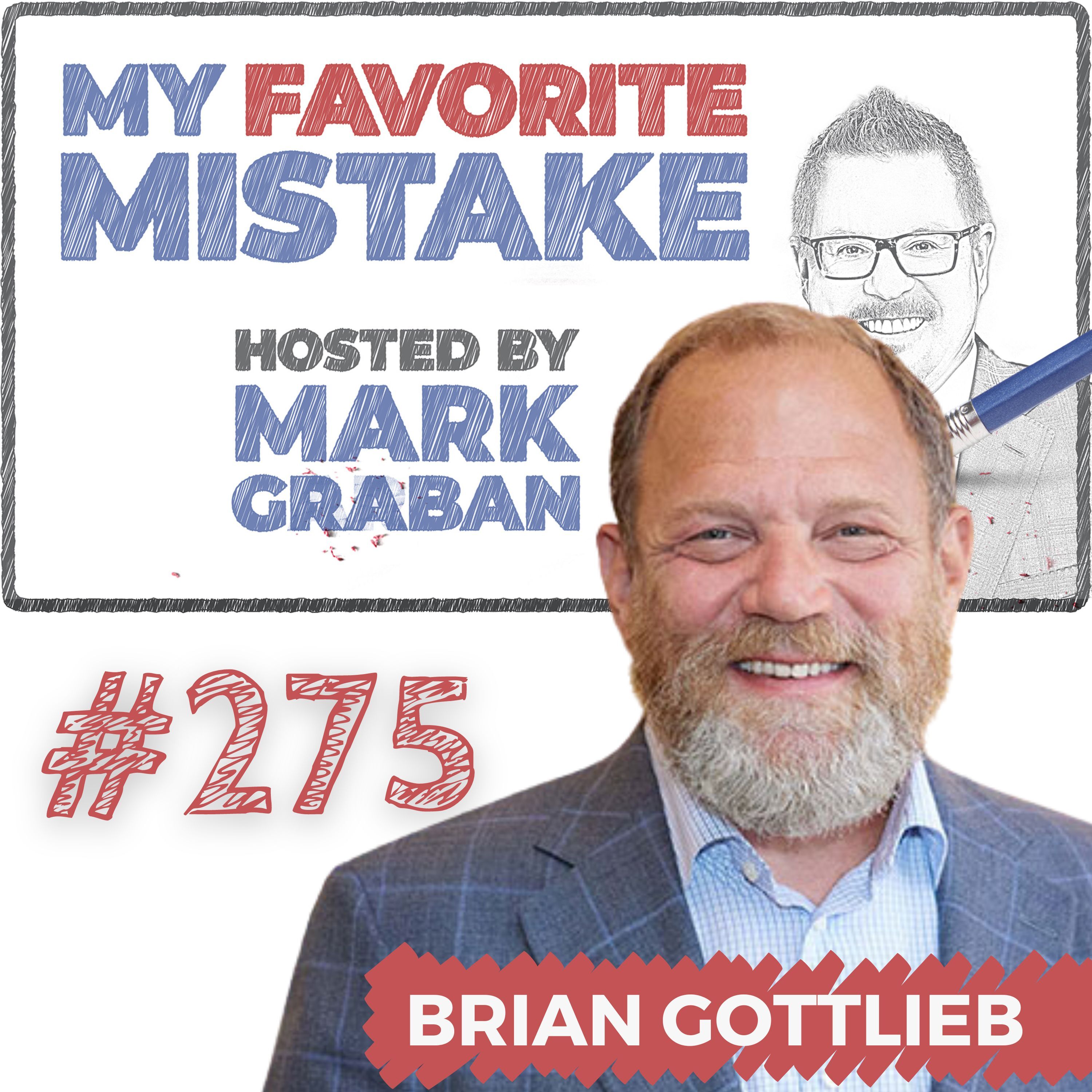
Founder Brian Gottlieb on Building a $200M Company and Learning from Mistakes
My guest for Episode #275 of the My Favorite Mistake podcast is Brian Gottlieb, an inspiring entrepreneur and founder who transformed a modest $3,000 startup into a thriving group of multistate companies valued at nearly $200 million.
Episode page with video, transcript, and more
Brian’s companies have earned spots on the Inc. 5000 list for four consecutive years and have been recognized as one of Wisconsin's best workplaces. In addition to being a successful CEO, Brian is a Harvard Business School alum, angel investor, keynote speaker, and author of the new book Beyond the Hammer: A Fresh Approach to Leadership, Culture, and Building High-Performance Teams.
In this episode, we discuss Brian’s journey from working odd jobs to founding his first home improvement company and scaling it to a multi-million dollar business. Brian shares his "favorite mistake"—not pursuing formal education after high school—and how that perceived mistake shaped his entrepreneurial path. We also dive into his approach to leadership, the importance of building a strong culture, and how empowering people can drive success.
Brian also opens up about his time at Harvard Business School and how it helped him evolve as a leader. We discuss the challenges of balancing performance and culture, why hiring for culture fit matters, and how his philosophy of "building people before building a business" has been key to his success. Whether you’re an entrepreneur, business leader, or simply interested in learning from others' mistakes, Brian’s story offers valuable lessons on growth, leadership, and resilience.
Tune in to hear Brian's insights on leadership, the value of mistakes, and the strategies that helped him build a $200M business from scratch.
Questions and Topics:
What would you say is your favorite mistake?
How did your decision not to attend college shape your entrepreneurial path?
Can you tell us more about your experience at Harvard Business School and how it impacted your leadership approach?
What was your first business, and how did it evolve into a multi-state company?
How did you manage learning on the job while growing a business from scratch?
How did you approach building the culture and developing people within your organization?
What do you think about companies that focus on culture in addition to performance?
How do you balance hiring for performance versus culture fit, and how do you handle it when someone performs well but doesn’t fit the culture?
Can you explain the concept of “beyond the hammer” and how it applies to leadership and business growth?
How do you handle mistakes or performance issues in a way that supports growth and learning?
What are your thoughts on the “stay interview” concept, and how does it help improve organizational culture?
How did you empower your team to make decisions and learn from their mistakes?
What is your perspective on micromanaging versus empowering employees?
How do you maintain alignment within your company and prevent cultural clashes when bringing in experienced hires?
How important is long-term thinking in leadership, especially when growing a business?
What leadership lessons have you learned from Toyota, and how do you apply them in your business?
45:1909/09/2024
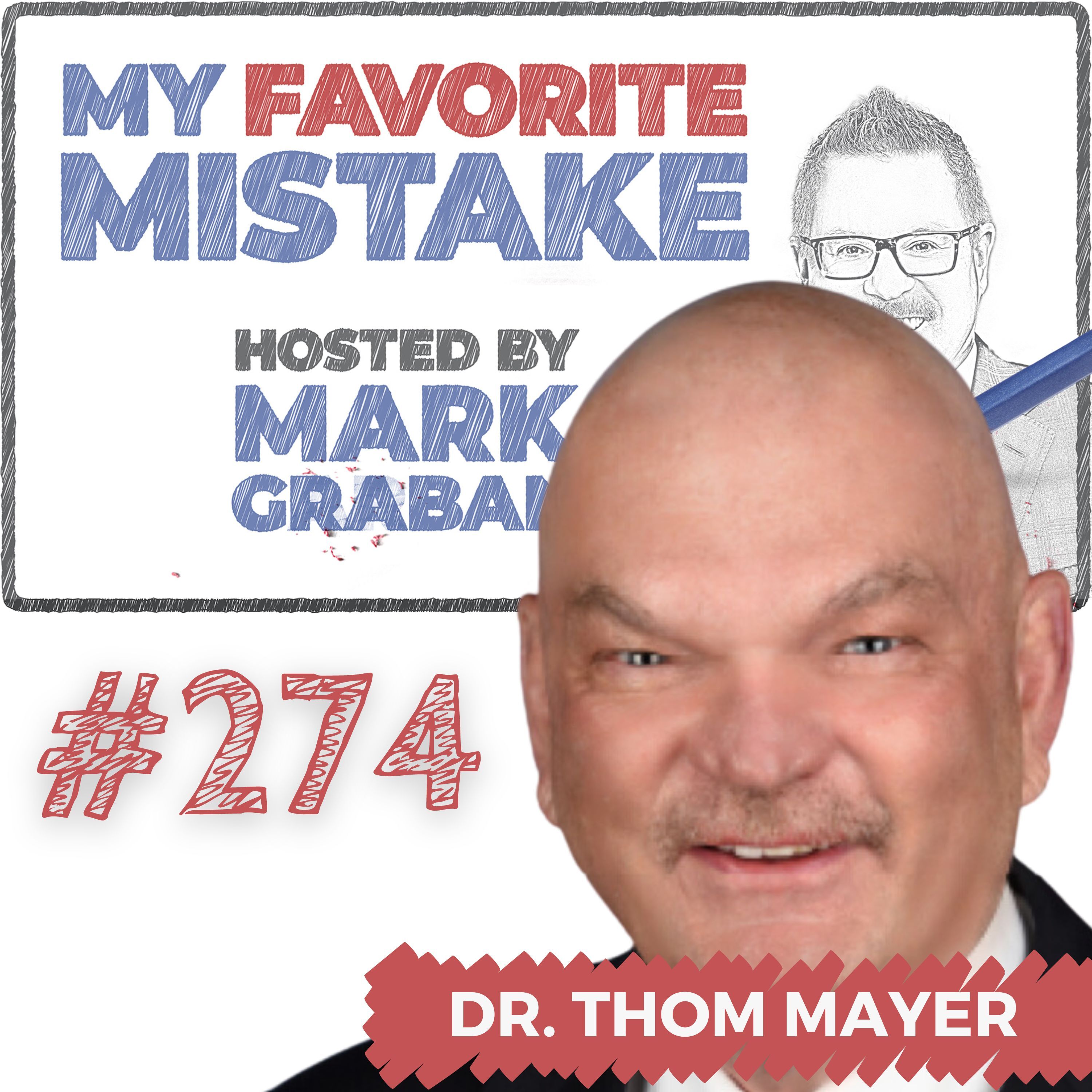
NFLPA Medical Director Dr. Thom Mayer on NFL Player Safety, Leadership, and Learning from Mistakes
My guest for Episode #274 of the My Favorite Mistake podcast is Dr. Thom Mayer, the Medical Director for the NFL Players Association, Executive Vice President of Leadership for LogixHealth, Founder of BestPractices, Inc., and Clinical Professor of Emergency Medicine at George Washington University and Senior Lecturing Fellow at Duke University.
Episode page with video, transcript, and more.
He was recently nominated to the Pro Football Hall of Fame in Canton, Ohio. USA Today named him one of the “100 Most Important People in the NFL.” Tom Peters, the internationally acclaimed leadership guru, referred to his work as “gaspworthy.” Thom's new book is Leadership Is Worthless...But Leading Is Priceless: What I Learned from 9/11, the NFL, and Ukraine.
On September 11, 2001 Dr. Mayer served as the Command Physician at the Pentagon Rescue Operation and has served on 3 Defense Science Board Task Forces, advising the Secretary of Defense. Most recently, in 2022, Dr. Mayer helped lead a mobile team to Ukraine, treating almost 350 patients and training over 1,700 Ukrainian medical staffers.
In this episode, we dive deep into the world of NFL player safety and the proactive strategies that have been implemented to protect athletes on and off the field. Dr. Thom Mayer shares his insights on the science behind the latest innovations in helmet technology, including the Guardian Cap, and the critical importance of having emergency physicians on the sidelines—a decision that has already saved lives.
We also explore the profound difference between leadership as a concept and leading as a daily practice. Dr. Mayer discusses how finding and following your "deep joy" is essential for both personal fulfillment and professional success. He emphasizes the power of learning from mistakes and how failure is not just a part of success, but an integral component of it. Drawing from his experiences during 9/11 and his recent mission to Ukraine, Dr. Mayer offers powerful lessons on resilience, proactive leadership, and the value of engaging with the people who do the work. This episode is filled with wisdom on how to lead effectively in times of crisis and beyond.
Questions and Topics:
What are your thoughts on the new NFL kickoff procedures and their impact on player safety?
Of all the things you’ve done in your career, what would you say is your favorite mistake?
Can you give an example of a time when you deviated from your deep joy, and how do you find deep joy in your professional endeavors?
Can you share an example of when you coached someone through a situation where they had deviated from their deep joy?
Can you talk about your experience with Damar Hamlin and the importance of being proactive in NFL player safety?
Can you share your experiences on 9/11 and the leadership lessons you learned from that day?
How did you end up going to Ukraine in 2022, and what motivated you to take on that mission?
What would you say to NFL fans who resist changes like the new kickoff rules or the use of the Guardian Cap?
50:4203/09/2024
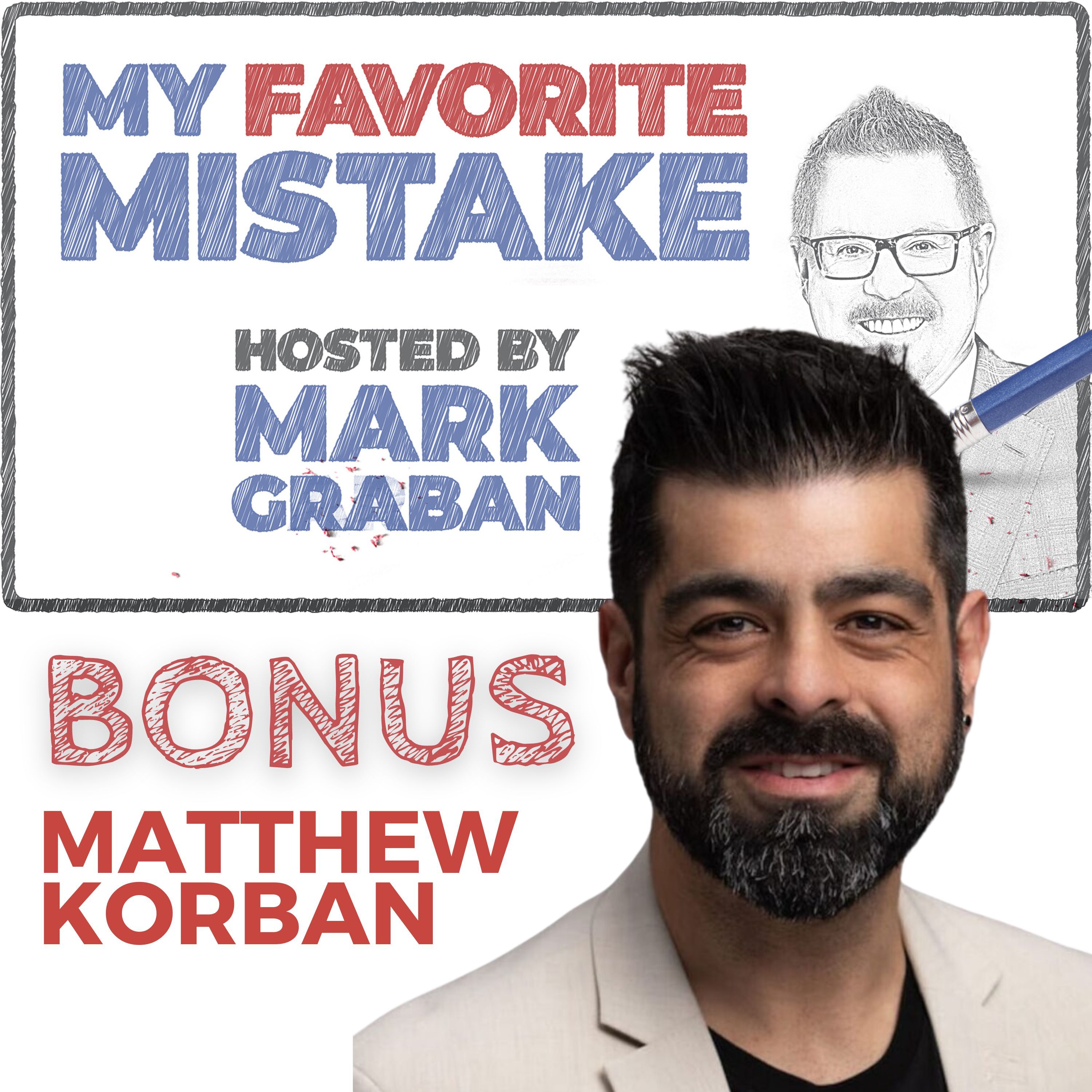
Bonus: "Footprints in the Sands of Time": Behind the Scenes with Matt Korban
In this episode of My Favorite Mistake, host Mark Graban reconnects with previous guest, author and speaker Matthew Korban. Since his first appearance in Episode 118, Matthew has been on an exciting journey, culminating in the release of his new book, Footprints in the Sands of Time: A Journey of Self-Rediscovery.
Matthew shares the emotional and challenging process of writing his novel, which began nearly a decade ago as a personal memoir and evolved into a powerful work of fiction. The story follows the hero Shan on his path of self-discovery, with themes that resonate deeply with readers who have experienced life's ups and downs. Matthew also talks about his future projects, including a second book, 33 Years of Random, and his work on The Forgotten Hero, a novel being pitched for a movie adaptation.
Key Topics Discussed:
The evolution of Footprints in the Sands of Time from memoir to novel
The challenges and rewards of writing over many years
Drawing from personal experiences to create fictional stories
Insights into his upcoming books and potential film adaptation
Books Mentioned:
Footprints in the Sands of Time: A Journey of Self-Rediscovery – Available on Amazon and Barnes & Noble
Don't miss this insightful conversation about the creative process, perseverance, and the power of storytelling.
11:2929/08/2024
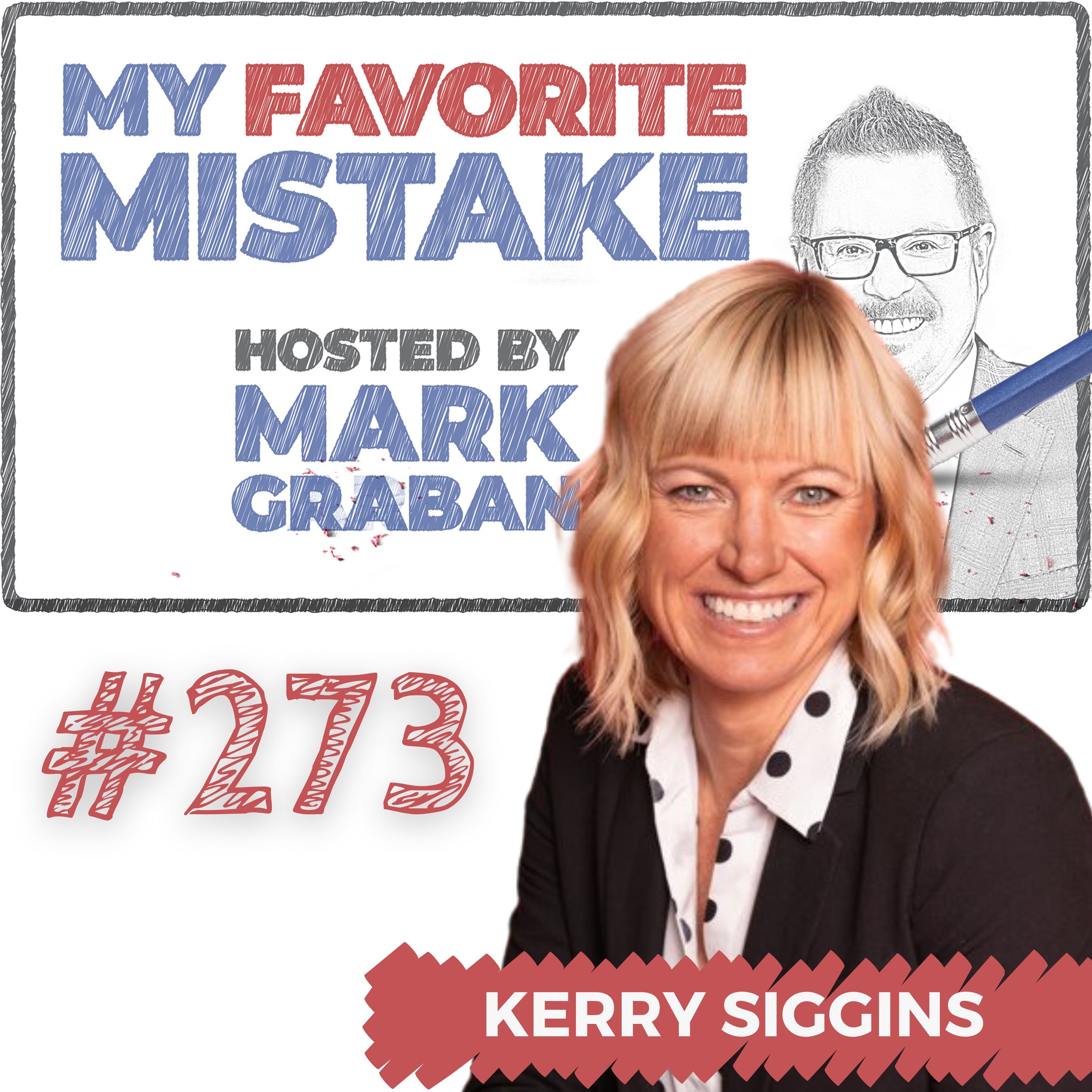
CEO Kerry Siggins on Leadership, Building an Ownership Mindset and Learning from Mistakes
My guest for Episode #273 of the My Favorite Mistake podcast is Kerry Siggins, the dynamic CEO and Executive Chair of StoneAge Holdings, a leading manufacturing and technology company based in Colorado.
Episode page with video, transcript, and more
Under her visionary leadership, StoneAge has achieved consistent double-digit growth, transforming into an industry powerhouse. In 2015, Kerry pioneered the company’s transition to an employee stock ownership plan (ESOP), ensuring that every employee shares in the company’s success and has a true stake in its future.
Recognized for her expertise in scaling companies and cultivating high-performance cultures, Kerry serves as a trusted board member and business advisor. Her insights have made a profound impact across industries. A sought-after speaker, Kerry regularly captivates audiences worldwide—from corporate leaders to university students—with her engaging presentations on leadership, culture, and ownership.
In addition to her executive roles, Kerry is the host of Reflect Forward, a widely acclaimed podcast where she explores leadership, personal growth, and overcoming challenges. She is also the author of The Ownership Mindset, a book that offers actionable strategies for building empowered teams and thriving companies.
In this episode, Kerry shares the pivotal moment that led her to turn her life around, her journey from the rock bottom of addiction to becoming a CEO, and how she built a culture of ownership and accountability at StoneAge. We discuss the lessons she learned from her favorite mistakes, the power of employee ownership, and how leaders can foster resilience and growth within their teams. Kerry’s story is both inspiring and full of actionable insights for anyone looking to lead with purpose and drive lasting success.
Questions and Topics:
Kerry, with everything you’ve done in your career, what would you say is your favorite mistake?
How were you able to bounce back and make that overdose a step toward recovery?
What were you doing for work at that point in your life?
How did you end up at StoneAge Holdings, and did you start in a specific role or as CEO?
That’s young to be a CEO of a company you didn’t found—how did that feel?
Can you tell us more about what StoneAge Holdings does and how you became CEO?
Many companies say they want employees to think like owners, but they don’t always give them the incentive. How does the ESOP at StoneAge create an ownership mindset?
How does your profit-sharing plan work alongside the ESOP?
As a leader, how do you approach mistakes, especially when employees make them?
How did going back home help you transition and get on track?
Can you tell us more about Reflect Forward, your podcast, and your book, The Ownership Mindset?
Do you have a favorite podcasting mistake as a host or guest?
42:1226/08/2024
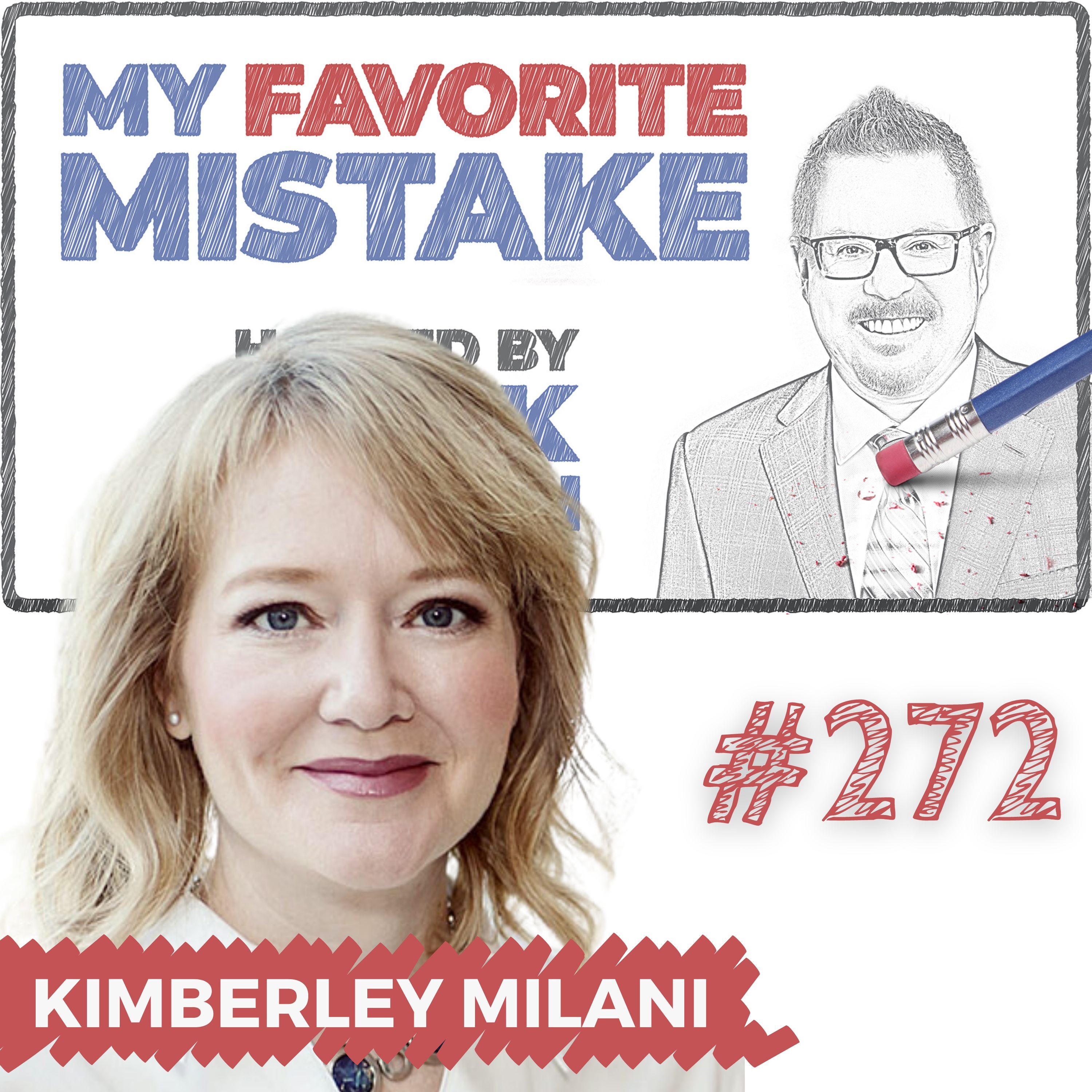
Exploring Character-Driven Leadership and Learning from Mistakes with Kimberley Milani
My guest for Episode #272 of the My Favorite Mistake podcast is Kimberley Milani, the Director of the Ian O. Ihnatowycz Institute for Leadership and Co-Founder of its Women’s Leadership and Mentoring Program at Ivey Business School in London, Ontario.
Episode page with video, transcript, and more
She is the co-author of the book Character: What Contemporary Leaders Can Teach Us about Building a More Just, Prosperous, and Sustainable Future.
She is passionate about elevating people’s strength of character to not only enhance their leadership skills, but to generate systemic social and organizational change. She is the co-host of Sip & Speak, a webinar series that explores social justice issues from a gendered and intersectional perspective.
Prior to joining Ivey, Kimberley spent 10 years as the Director of The Circle Women’s Centre, a community-facing feminist centre at Western’s Brescia University College.
The Circle operated in collaboration with London’s women’s, Indigenous, and social justice organizations to facilitate respectful, inclusive, multicultural, and inter-faith relationships, dialogue, events, and initiatives.
She was also a founding member of the Institute for Women in Leadership (IWIL) at Brescia and was its Director for seven years. Kimberley is a graduate of the University of Toronto.
In today's episode, Kimberley shares her journey from studying science with plans to pursue medicine to finding her true passion in Celtic Studies—a "mistake" that led her to a fulfilling career in leadership and academia. We discuss the importance of character in leadership, how it’s developed over time, and the impact of legacy. Kimberley also offers insights on how we can all cultivate strong character and the role it plays in achieving meaningful success.
Questions and Topics:
What would you say is your favorite mistake in your career?
How did studying Celtic mythology shape your views on leadership?
Did you ever imagine your career path leading to academia or university-related centers?
How do you define character, and what is character-based leadership?
Can people with strong character still make mistakes, and how do they respond?
How do you evaluate someone’s character when considering a job or a new leader?
How much of character is innate versus developed over time?
What can contemporary leaders teach us about character-based leadership?
How important is it for leaders to consider the legacy they want to leave behind?
55:2219/08/2024
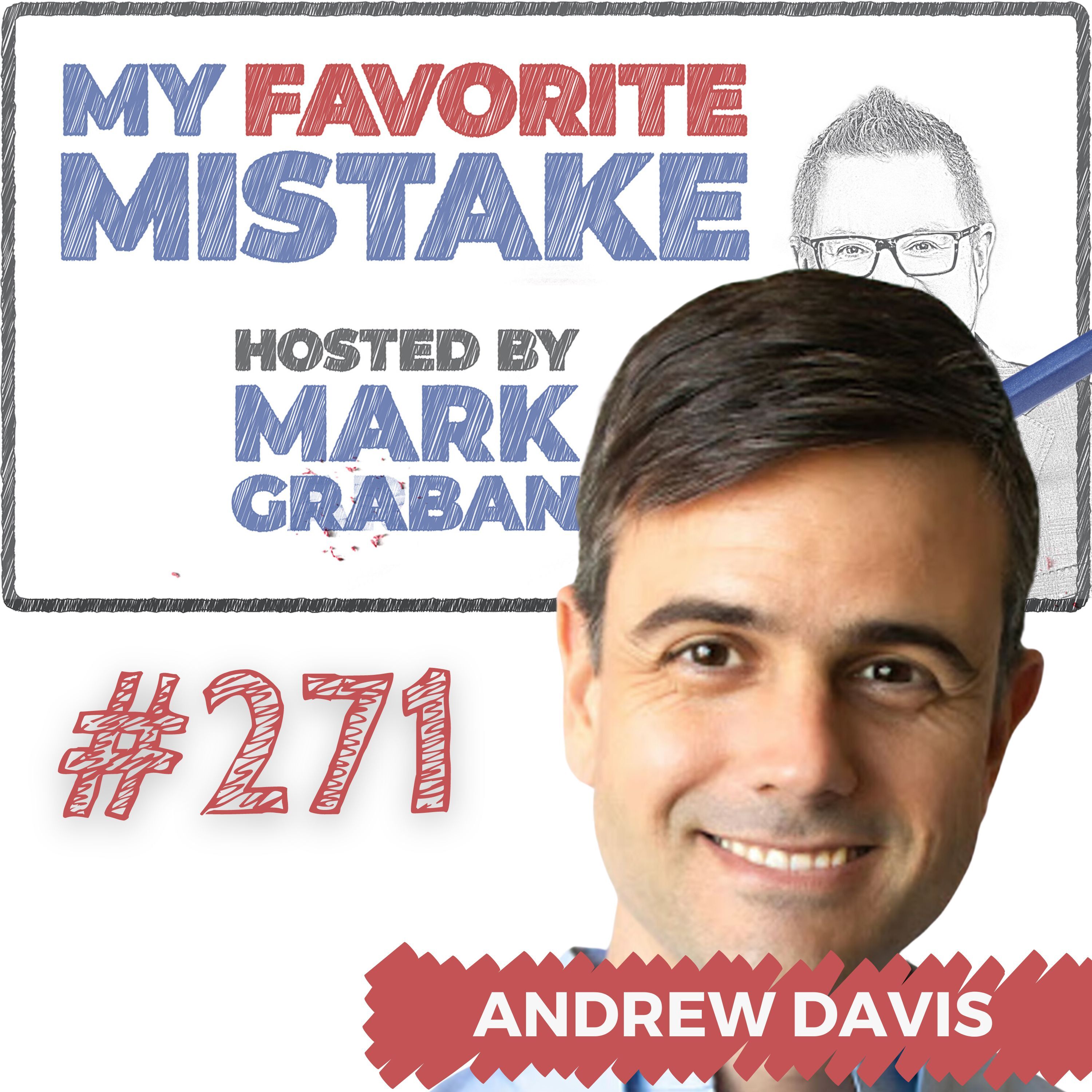
How Andrew Davis Burned Out as a Buddhist Monk and Found Balance in Tech
My guest for Episode #271 of the My Favorite Mistake podcast is Andrew Davis, Chief Product Officer at AutoRABIT and the author of Mastering Salesforce DevOps. He's also co-author of the new book Flow Engineering: From Value Stream Mapping to Effective Action - with Steve Pereira.
Episode page with transcript, video, and more
He’s a Salesforce architect, developer, and product leader who focuses on the human side of software development. He’s been the leading figure in introducing DevOps concepts to the Salesforce world.
Trained as an engineer, he spent fifteen years as a Buddhist monk, teaching meditation and personal transformation and helping develop communities of practice. These days he studies the intersection of business, technology, and psychology through systems thinking.
In this episode, Andrew shares his fascinating journey from being a Buddhist monk to becoming a leader in the tech world. He discusses his favorite mistake of experiencing burnout as a monk, the lessons learned, and how these experiences have shaped his approach to work and life. Andrew discusses the concepts of flow engineering, psychological safety, and the importance of creating an environment where people feel safe to speak up and innovate. Join us for an insightful conversation that bridges the worlds of spirituality and technology, offering valuable lessons for anyone striving to balance passion with well-being.
Questions and Topics:
How do you guard against repeating a similar path to burnout in your current work?
How did you choose to become a Buddhist and then a monk?
How did you transition from being a monk to getting into the software and technology world?
Companies can be crazy; how do we help avoid that?
What are your thoughts on value stream mapping and breaking down silos?
Why did you emphasize psychological safety in your book, and what have you learned about it?
How do you offer free classes on personal transformation, and can you tell us about that?
49:2612/08/2024
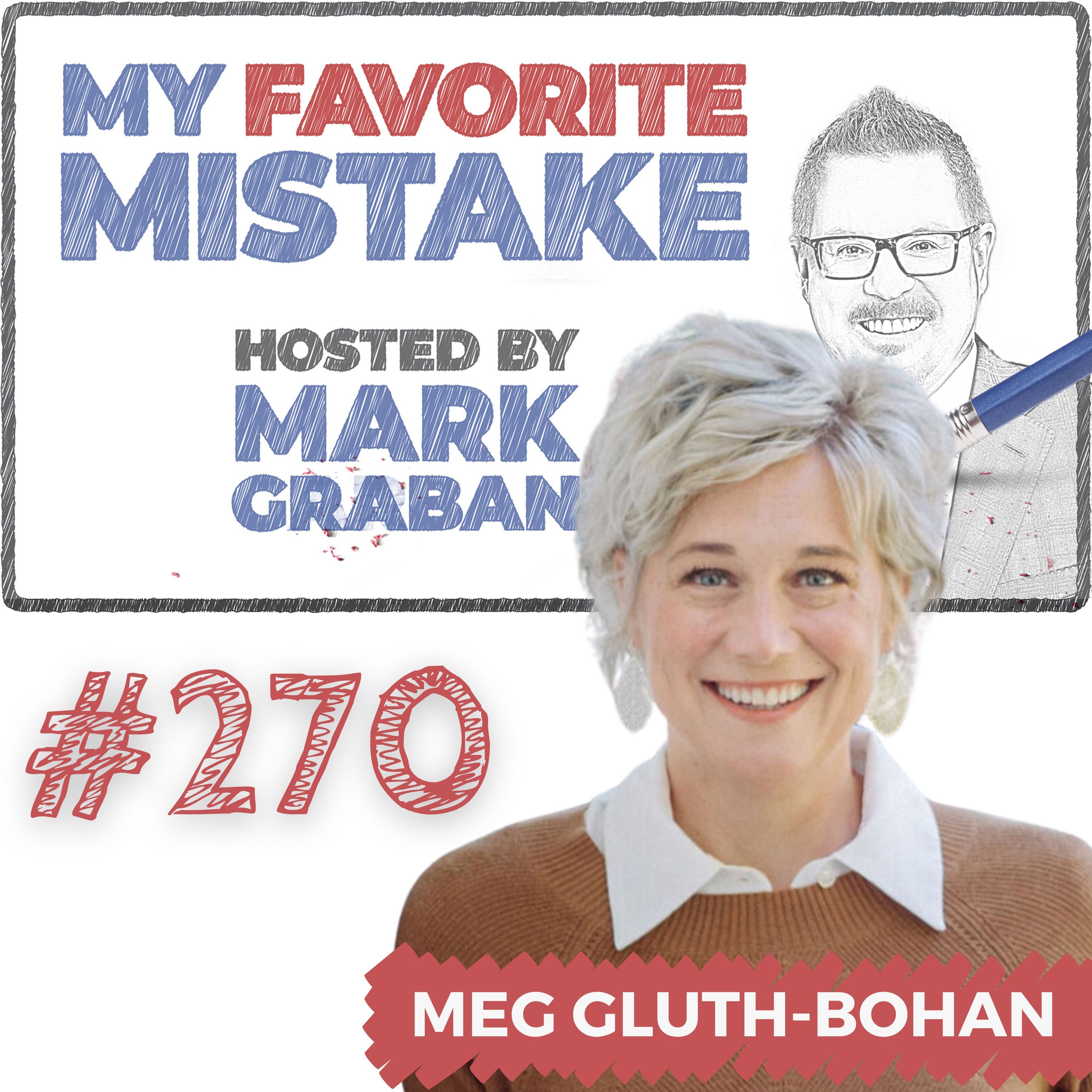
Gut-Checking Business Decisions: CEO Megan Gluth-Bohan on Learning from Pandemic Mistakes
My guest for Episode #270 of the My Favorite Mistake podcast is Megan Gluth-Bohan, a remarkable leader in the chemical industry. Megan is the CEO and owner of Catalynt Solutions, Inc., a prominent U.S.-based chemical distributor, and Chemblend of America, a renowned chemical blending and tolling facility.
EPISODE PAGE WITH VIDEO, TRANSCRIPT, AND MORE
Her companies stand out as some of the largest certified women-owned suppliers in North America. Under her leadership, they have achieved significant recognition, including a spot on the 2023 Puget Sound Business Journal's Middle Market Fast 50 list. Megan herself was honored as one of the Business Journal's Middle Market Fast 50 Leaders of 2023 and was awarded the prestigious Ernst and Young Entrepreneur of the Year 2023.
In this episode, Megan shares her journey through the highs and lows of her career, focusing on the lessons learned from her favorite mistake. She candidly discusses the challenges she faced during the pandemic, where rapid decision-making led to deals with untrustworthy customers. Megan emphasizes the crucial importance of taking a moment to pause and trust one's instincts, even in high-pressure situations. This conversation delves into how these experiences have shaped her approach to leadership and decision-making.
We also explore Megan's initiatives to support women in STEM and her efforts to create opportunities for previously incarcerated women. She talks about fostering a culture of open discussion about failures, without blame, within her companies. Join us as we dive into Megan's insightful perspectives on leadership, resilience, and the power of learning from mistakes.
Questions and Topics:
How did you discover these deals were mistakes?
How did the dynamic of group evaluation or group effort play into these deals?
How do you handle team contributions when you're the one with the view of the entire chessboard?
Have you faced similar situations with other deals since those mistakes?
What specific factors led to the failures, and what did you learn from them?
How do you apply the lessons learned from failures to future endeavors?
Can you describe your company’s culture around failure and how you model it as a leader?
Do you have a support network or board for advice and coaching?
Can you talk about fostering a safe space for failure in your company?
How do you categorize different types of failures and encourage the right type of risk-taking?
How do you ensure organizational memory of mistakes to prevent recurrence?
How do you balance treating people right with running a profitable business?
What initiatives are you involved in to support women in STEM?
Can you share about your efforts to create opportunities for previously incarcerated women?
Is there a book in your future?
45:5805/08/2024
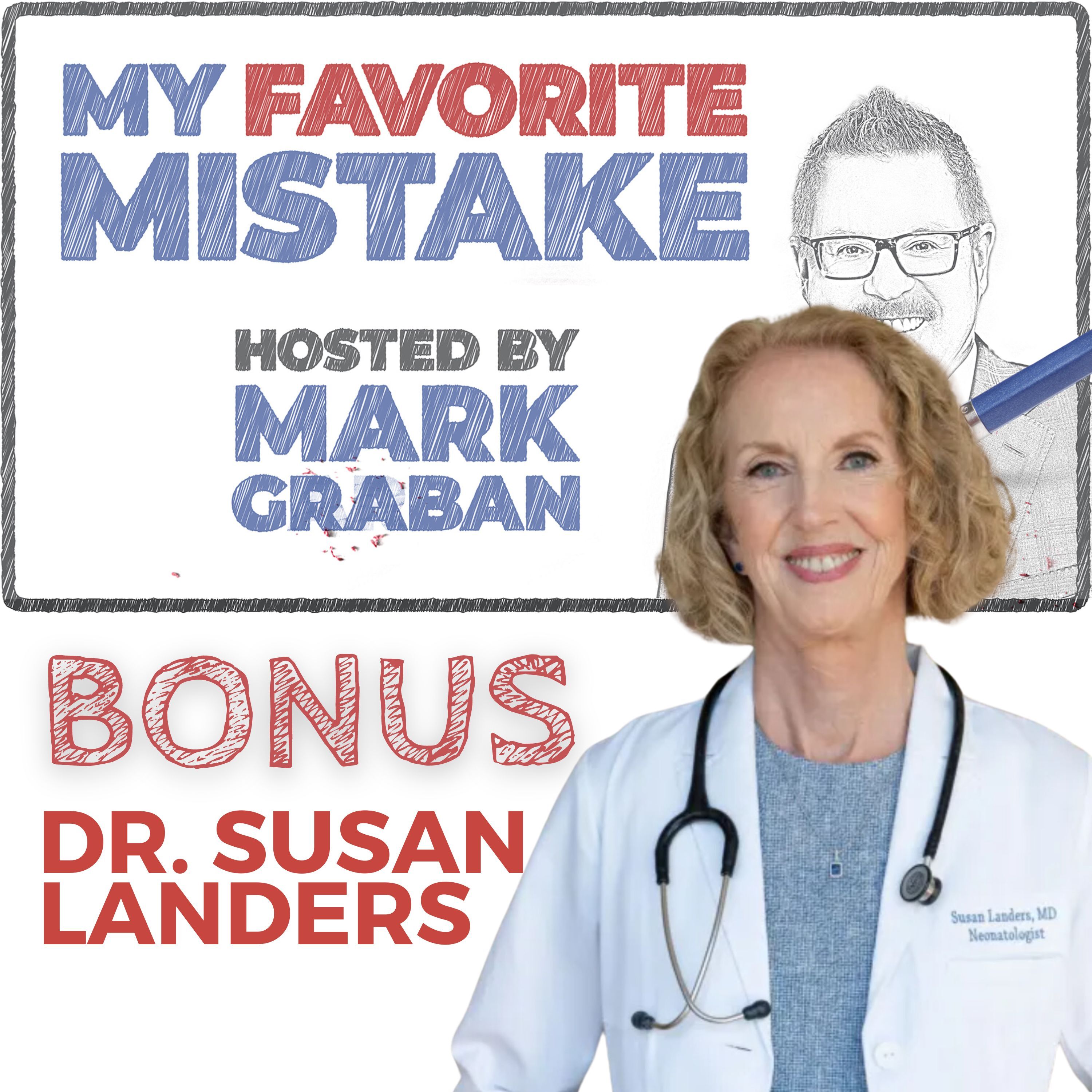
Bonus: Update with Dr. Susan Landers — Defeating Burnout for Working Mothers
Guest: Dr. Susan Landers
Original Episode: Episode 213 - June 2023
Guest Bio: Dr. Susan Landers is an experienced neonatologist, author, and speaker who focuses on balancing a demanding medical career with motherhood. In her previous episode, we discussed her book "So Many Babies: My Life Balancing a Busy Medical Career and Motherhood."
Summary: In this update episode, Mark Graban welcomes back Dr. Susan Landers to discuss her latest work, an eBook titled Defeating Burnout: A Guide for Working Mothers. Dr. Landers shares insights on how her new book builds upon her previous memoir, focusing specifically on the issue of burnout among working mothers.
Key Points:
Introduction to New Book: Dr. Landers introduces her new eBook, explaining its focus on the prevalence of burnout among working mothers and her personal experiences with burnout at different stages of her career.
Content and Structure: The eBook includes practical advice, checklists to identify burnout, descriptions of signs and symptoms, and effective recovery processes. It also provides strategies for preventing burnout from recurring.
Practical Examples: Dr. Landers shares personal anecdotes and examples throughout the book to make it more relatable and practical for readers.
Availability: The eBook, Defeating Burnout: A Guide for Working Mothers, is exclusively available on her website, along with additional resources like checklists and wellness journals.
Discussion Highlights:
Balancing Career and Motherhood: Dr. Landers discusses the challenges of balancing a demanding career with motherhood and how her experiences have shaped her approach to dealing with burnout.
Addressing Burnout: The conversation delves into the importance of recognizing burnout early, recovery strategies, and long-term prevention techniques.
Preventing Recurrence: The book also addresses how to make better choices to prevent burnout from happening again, both professionally and personally.
Additional Resources:
Dr. Susan Landers' Website - Find the eBook, Defeating Burnout: A Guide for Working Mothers, along with other resources.
Quotes:
"It's not just about recovery; it's about preventing the same problem from occurring again." - Dr. Susan Landers
"We learn a lot from our best mistakes at work." - Mark Graban
Connect with Dr. Susan Landers:
Website
Subscribe and Follow: Stay updated with the latest episodes by subscribing to "My Favorite Mistake" podcast on your favorite podcast platform.
Contact: For more information, visit Mark Graban's website or reach out via social media.
07:4801/08/2024
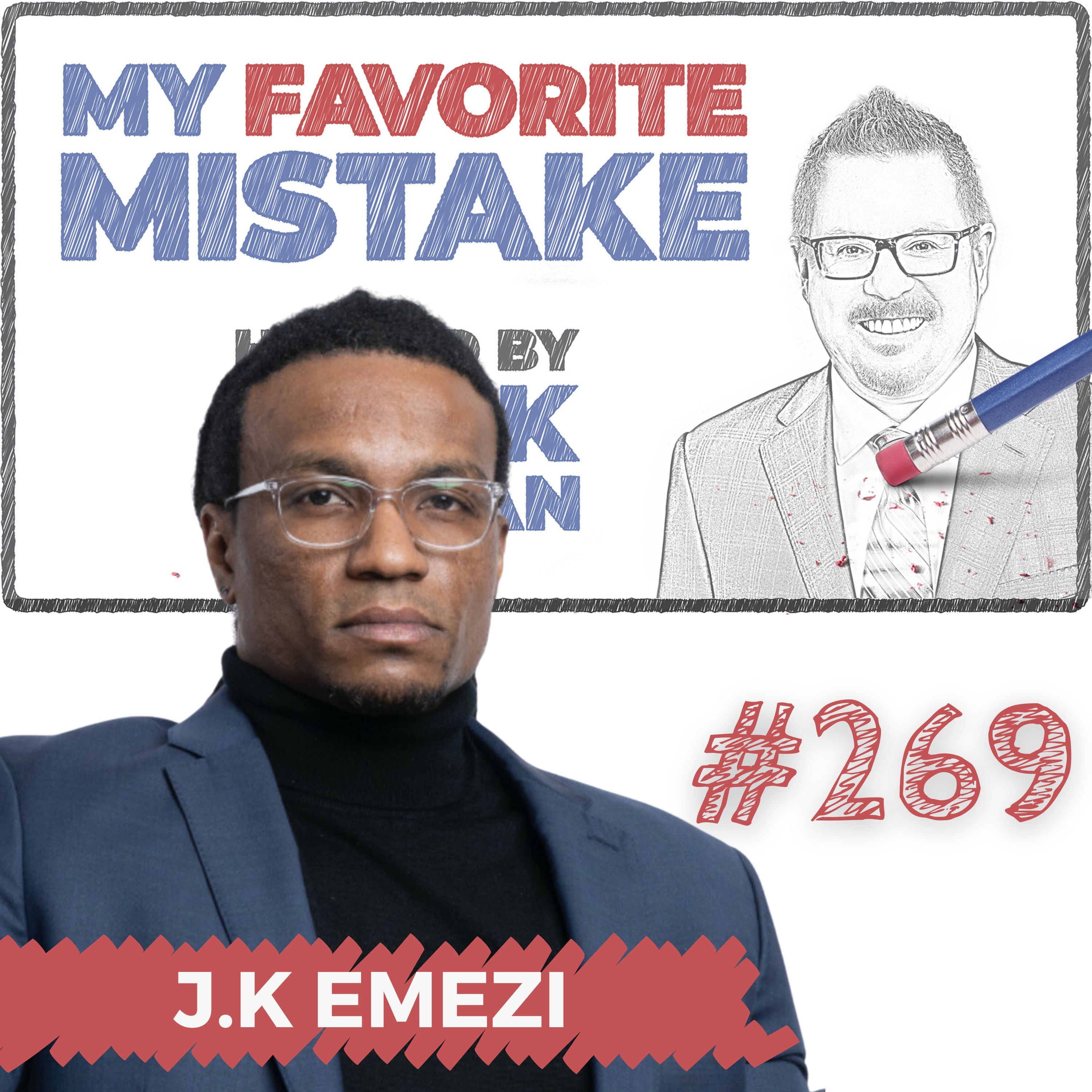
From Entrepreneur to Recovery Coach: J.K Emezi’s Transformation From Porn Addiction
We want to inform our listeners that today's discussion includes adult themes that may not be suitable for younger audiences. Listener discretion is advised.
My guest for Episode #269 of the My Favorite Mistake podcast is s J.K Emezi. He’s a pornography addiction recovery coach and Founder of the Porn Reboot System, a system of pornography addiction treatment that helps high-performing business owners, executives, entrepreneurs, and professionals who are dealing with porn addiction problems.
Episode page with video, transcript, and more
He struggled with out-of-control behavior with pornography for over 11 years. Unable to quit using therapy, 12 Steps, and other methodologies, he created a unique system that allowed him to control his sexual behavior within a few short weeks.
In this episode, J.K shares his personal struggles with pornography addiction, the turning points that led him to seek help, and how he developed his unique recovery method. We explore the impact of addiction on his personal and professional life, the challenges of breaking free from compulsive behaviors, and the importance of mindfulness and self-image in recovery. J.K also provides insights into the support systems available for those dealing with similar issues and emphasizes the importance of addressing shame and stigma in addiction recovery.
Again, this episode contains discussions of adult themes, so listener discretion is advised.
Questions and Topics:
When did you discover that you had waited too long to seek help, and were there earlier opportunities to do so?
Can you talk about the wake-up call and its consequences on your life and career?
How did you realize pornography was a coping mechanism for strong emotions?
Can you describe the impact of early exposure to pornography on your life?
How did your family background and expectations affect your behavior and recovery?
What methods did you try to overcome your addiction, and why did they fail?
How did you develop the Porn Reboot system, and what makes it effective?
What are the three pillars of ending compulsive behavior?
What led you to pivot from a successful sales career to running a porn addiction recovery company?
What challenges do you face in marketing your business, given the subject matter?
How do you address the shame component in your program?
How did the pandemic and work-from-home era affect people’s struggles with addiction?
How do compulsive behaviors impact business leaders and their companies?
What are the unique challenges faced by high-achieving individuals with compulsive behaviors?
Do women also face pornography addiction, and how does your approach differ for them?
Can your system be applied to other compulsive behaviors or addictions?
How does the relationship with technology contribute to out-of-control behaviors?
What impact does addiction have on a company when it involves founders or CEOs?
What advice do you have for those struggling with compulsive behaviors?
49:5829/07/2024
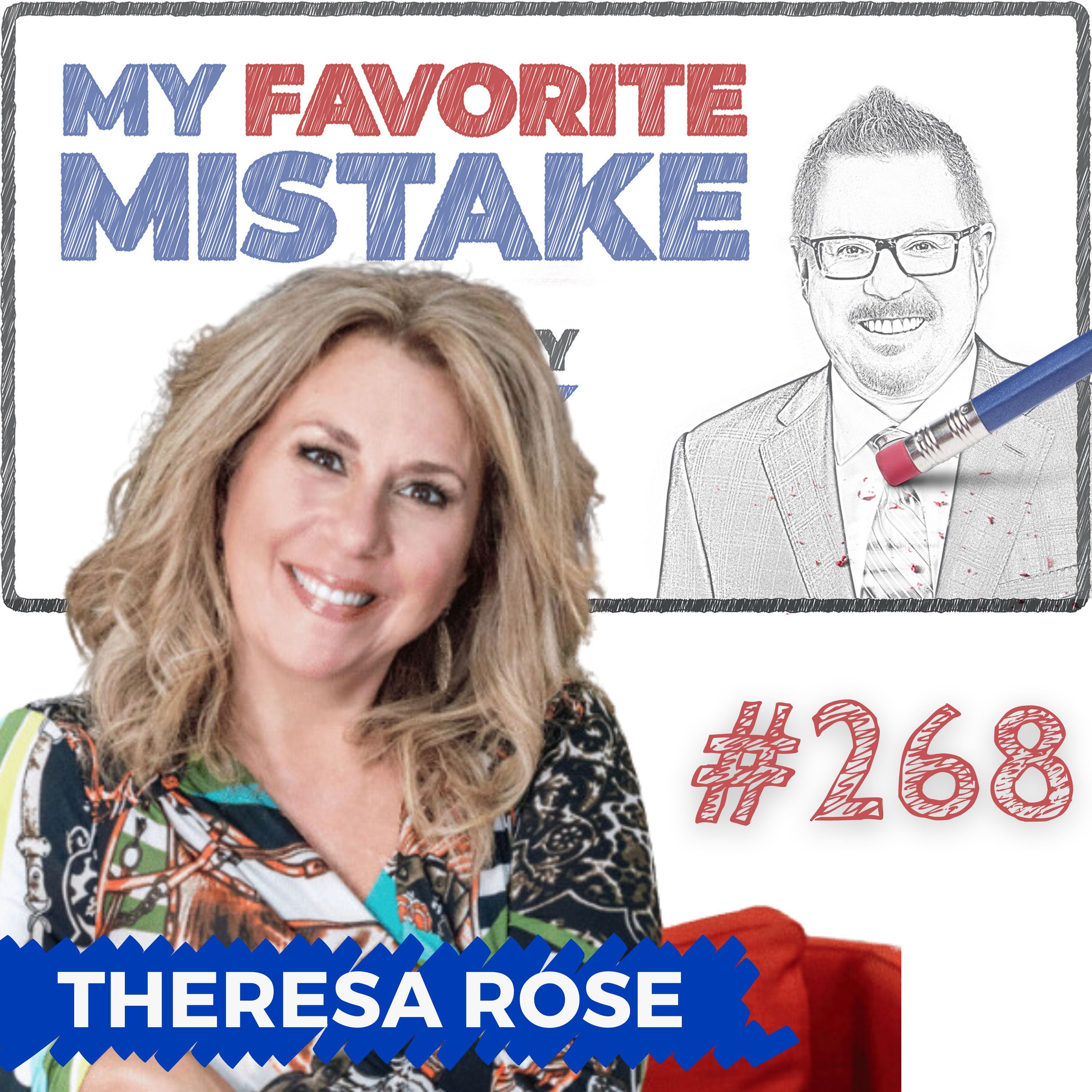
Finding Clarity Through Mistakes: How Theresa Rose Transforms Brands with Enthusiasm and Precision
My guest for Episode #268 of the My Favorite Mistake podcast is Theresa Rose, a Brand and Business Crystallizer, Strategic Co-Creator, and Certified Speaking Professional who works with experts and their businesses to create one-of-a-kind visual brands they can draw on a cocktail napkin.
EPISODE PAGE WITH VIDEO, TRANSCRIPT, AND MORE
Using her Crystallization Process, Theresa helps thought leaders Clarify, Amplify, and Monetize their Brilliance as efficiently — and lucratively — as possible.
She has 20+ Years of consulting, marketing, and business management experience drives Theresa's strategic thinking, creativity, and sound foundational frameworks. Her career has included senior management roles in marketing and product development for a Fortune 100 company and high-growth startups.
Theresa is the award-winning author of several books, including Mindful Performance: How to Powerfully Impact Profitability, Productivity, and Purpose and Your Daily Dose of Mojo: 365 Days of Mindful Living and Working.
She has a degree in Business Management from Eckerd College, loves binge-watching The Great British Baking Show, and still has her Most Enthusiastic Award from Mr. Moseman’s second-grade class.
In this episode, Mark and Theresa discuss the journey of embracing mistakes and how they can lead to clarity and success. Theresa shares her experience as a brand and business crystallizer, emphasizing the importance of enthusiasm and authenticity in sales and marketing. They explore her favorite mistake of trying to follow in her mother's footsteps in direct sales, the lessons learned from it, and how it shaped her path. Theresa also delves into common marketing mistakes, the concept of triangulated sales, and her approach to stand-up comedy. Finally, they discuss the benefits of her ten-part video course on achieving cocktail napkin clarity for businesses.
Questions and Topics:
What are the three aspects of sales or persuasion that you feel strongly about?
What would you say is your favorite mistake?
How did trying to follow in your mother’s footsteps shape your journey?
Was direct sales your main focus right out of college, or was it a side hustle?
Looking back, what factors do you think led to the difference in outcomes between you and your mother in direct sales?
What are the most common marketing mistakes you see or help people recover from or even help avoid?
How did the failures or mistakes you encountered tee you up for something better?
When you say “unsupported,” do you mean marketing claims that aren't supported by the delivery of that service or product, or is it about not authentically representing the person?
What do you mean by “triangulated sales”?
How do you view a joke that bombs or a set that bombs in the context of performing comedy?
Tell us a little bit more about your experience with stand-up and improv.
Could you give a quick pitch or summary of why people should check out your ten-part video course and the benefits they will gain from it?
45:5322/07/2024
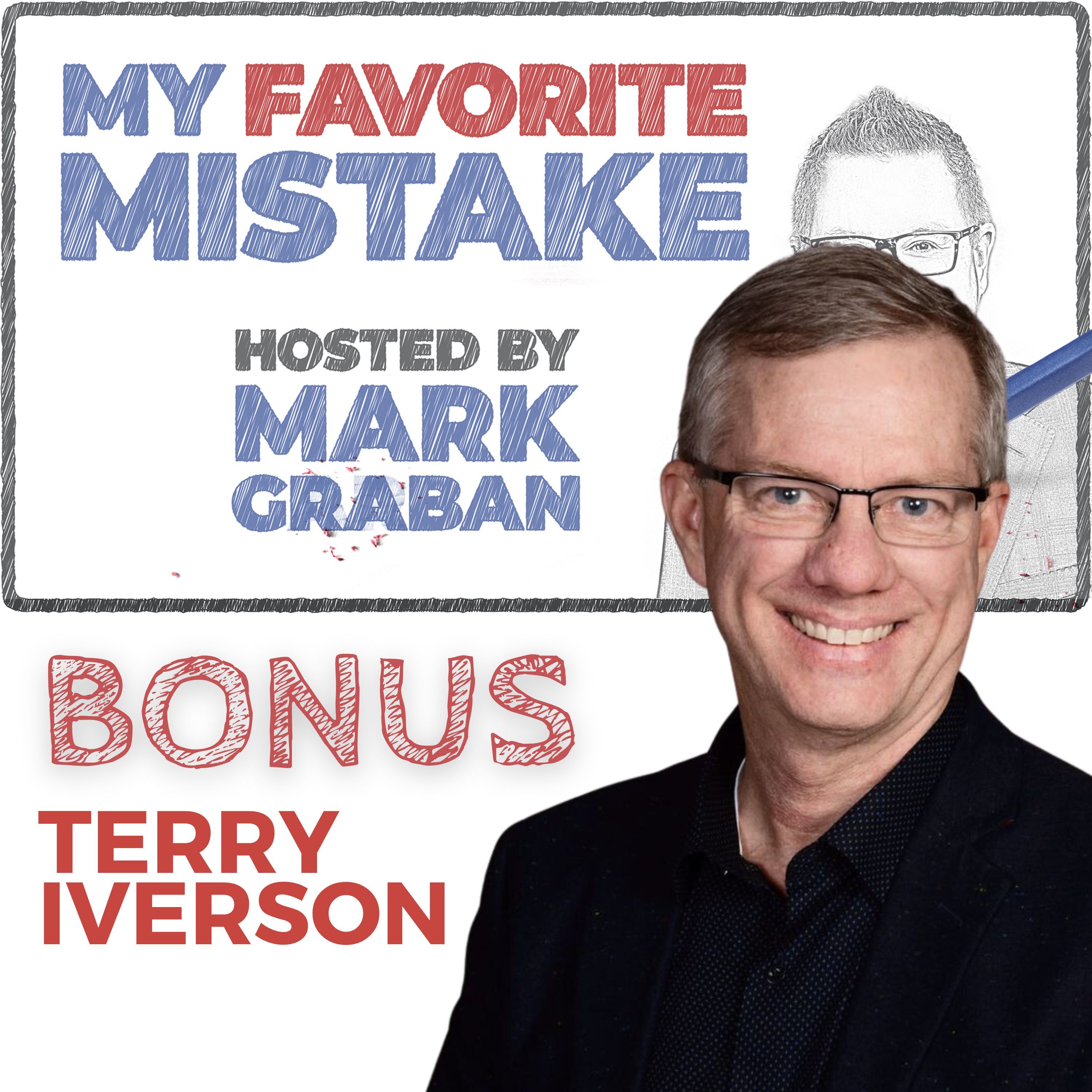
Bonus: Terry Iverson's Update, Author of "Inspiring Champions in Advanced Manufacturing"
Welcome to a special bonus episode of "My Favorite Mistake" with your host, Mark Graban! In this episode, we're thrilled to reconnect with Terry Iverson, who has just released his second book, "Inspiring Champions in Advanced Manufacturing."
Terry joined us previously in Episode 74, and today he's back to share insights from his new book and his ongoing efforts to inspire the next generation in manufacturing. We delve into the details of his innovative two-sided book and his exciting initiatives for middle schoolers.
Tune in to hear about:
Terry's new book, "Inspiring Champions in Advanced Manufacturing," and its unique two-sided format for parents and students.
The concept of advanced manufacturing and the evolving technologies shaping the industry.
The critical importance of skilled labor in modern manufacturing and the benefits of pursuing these careers without incurring college debt.
Terry's Manufacturing Inspiration Camp for middle school students and how it's designed to spark interest in manufacturing careers.
The necessity of tailored education paths to fit individual learning styles and career goals.
Don't miss this enlightening conversation! Check out Terry's new book and discover the promising opportunities in advanced manufacturing.
📘 Get the book: https://amzn.to/4bTQO9i
🔗 Previous Episode with Terry Iverson (Episode 74): https://markgraban.com/mistake74
🔔 Subscribe to My Favorite Mistake Podcast: http://myfavoritemistakepodcast.com/
📱 Connect with Mark Graban:
Website: LeanBlog.org
Twitter: @MarkGraban
LinkedIn: Mark Graban
📱 Connect with Terry Iverson:
Website: ChampionNow.org
Email: [email protected]
LinkedIn: Terry Iverson
#MyFavoriteMistake #AdvancedManufacturing #InspiringChampions #TerryIverson #MarkGraban #Podcast
11:1818/07/2024
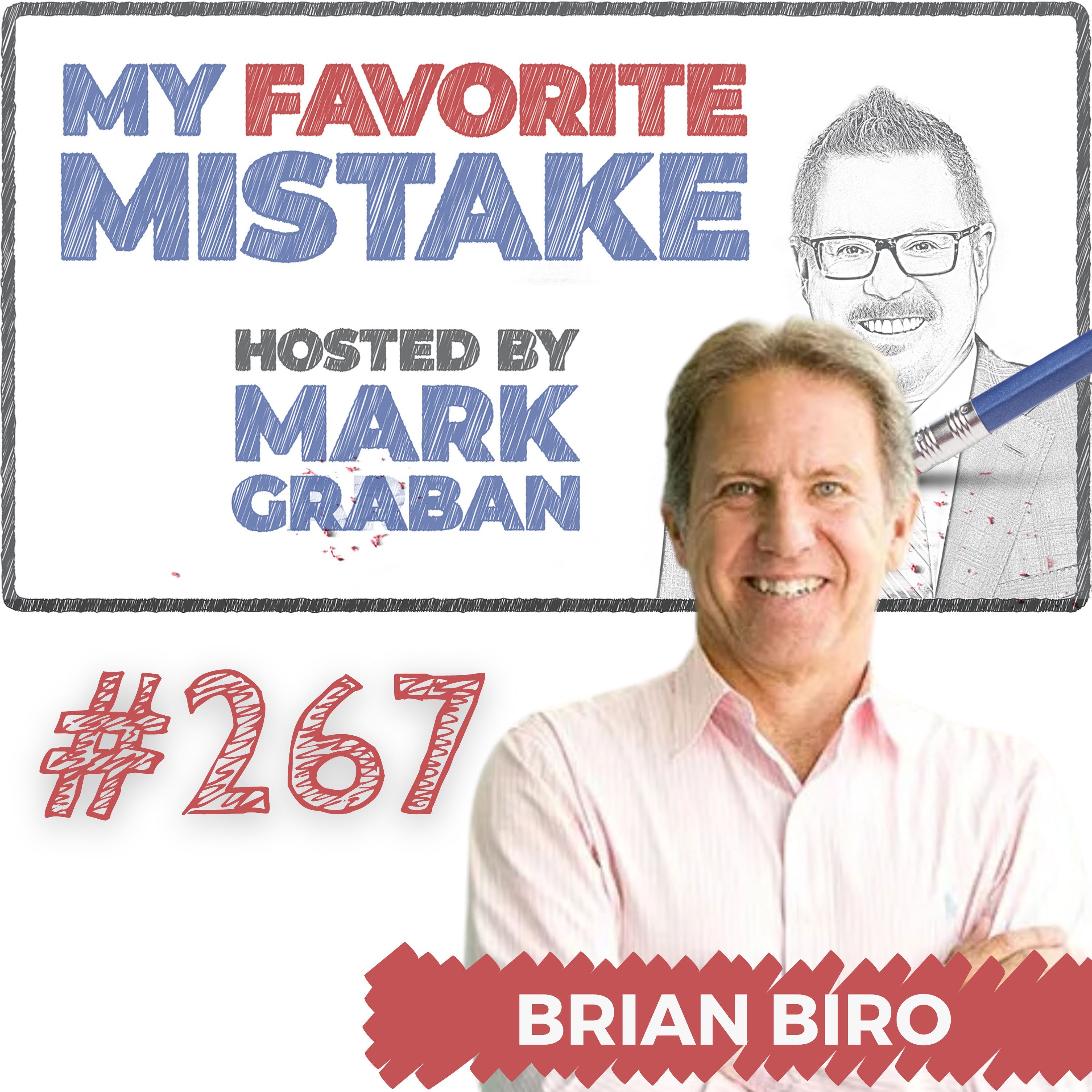
Brian Biro Shares Timeless Wisdom from John Wooden and Pat Summit
Episode page with video, transcript, and more
My guest for Episode #267 of the My Favorite Mistake podcast is Brian Biro, author of the new book Lessons from the Legends: New Applications from the Timeless Wisdom of John Wooden and Pat Summitt.
After graduating from Stanford, Brian’s first career was as a swimming coach. He received the prestigious United States Swimming National Coaching Excellence Award, in recognition of his team’s Top 10 National Performance. After gaining his MBA from UCLA, he subsequently rose rapidly to become the VP of Performance Planning for a major transportation company, helping to turn the business around, and quadrupling revenues in record time. He has written 16 books, including bestsellers like Beyond Success! and It’s Time for Joy!
In today's episode, Brian shares his personal story of learning to be fully present with his family, a lesson that profoundly impacted his professional life and leadership approach. We explore the leadership principles of legendary coaches John Wooden and Pat Summitt, emphasizing humility, presence, and the avoidance of blame. Brian also reflects on modern leaders who embody these values, the importance of storytelling in leadership, and the influence of characters like Ted Lasso in promoting these timeless principles.
Questions and Topics:
You mentioned your daughters asking if you loved your phone more than them. How did that moment transform your approach to being present?
Can you explain how being fully present affects both personal and professional life?
Could you share a story about how presence impacted your professional relationships, like with your director of operations?
What can we learn from the leadership styles of John Wooden and Pat Summitt?
How did you first get connected with John Wooden?
Can humility and confidence coexist in leadership?
Are there current coaches or leaders you admire who exemplify the principles of Wooden and Summitt?
What are your thoughts on Ted Lasso as a character and how he connects to Wooden and Summitt’s coaching styles?
How can leaders teach humility without relying on humbling experiences?
Why do you think blame is so destructive in teams, and how can leaders avoid it?
How does your book ‘Lessons from the Legends’ apply to non-sports contexts like business or parenting?
45:3615/07/2024
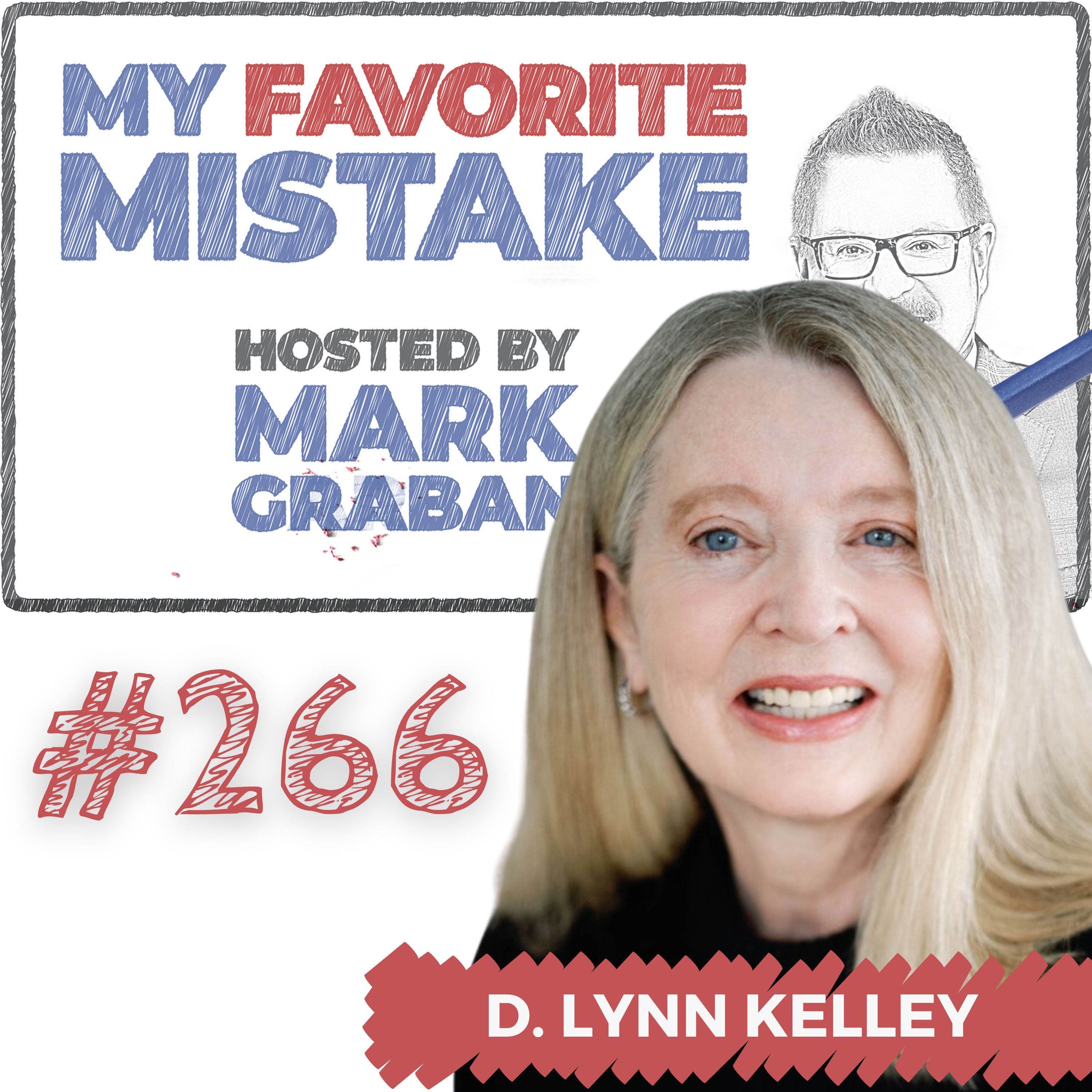
Lynn Kelley on Leading Change and Learning from Mistakes in Diverse Industries
My guest for Episode #266 of the My Favorite Mistake podcast is D. Lynn Kelley, the author of Change Questions: A Playbook for Effective and Lasting Organizational Change (with John Shook).
Episode page with video, transcript, and more
Lynn currently serves as a senior advisor to BBH Capital Partners. Following a career highlighted by leadership roles in engineering, supply chain, and continuous improvement in various industries, Kelley retired from Union Pacific Railroad in 2018.
At Union Pacific, she was senior vice president of supply chain and continuous improvement. She was also the executive co-owner of the company’s innovation program.
Before joining Union Pacific, Kelley was vice president of operational excellence, an officer and a member of the executive leadership team at Textron.
Kelley holds a PhD in evaluation and research and taught undergraduate and graduate statistics courses. Before becoming a professor, she held the positions of executive vice president and chief operating officer of Doctors Hospital in Detroit.
In this episode, Lynn discusses her journey of learning from mistakes, the importance of change management, and how fostering a culture of psychological safety can drive innovation and continuous improvement. Lynn also reflects on her experiences in healthcare and manufacturing, highlighting the critical role of effective leadership and communication in successful organizational change.
Questions and Topics:
When you mentioned it was before it was referred to as lean, were people calling it the Toyota Production System or just Japanese management practices?
As Textron integrated these companies, did they standardize or adjust the metrics for the French plants to include quality and safety?
What were your other key takeaways from your experience in France, especially regarding metrics and relationship building with plant managers?
Could you share your experiences as a leader in healthcare and how they compare to your roles in other industries, particularly in terms of change management?
What prompted you to write "Change Questions," and what was the inspiration behind it?
How would the methodologies in your book have helped you during your time at Textron or Union Pacific?
How do you cultivate psychological safety to encourage people to ask questions, push back, or bring new ideas during change initiatives?
How did you change your approach to giving feedback to make it more effective, and were you ever coached on this?
How do you compare continuous improvement and innovation? Are there different ways to manage change for larger-scale innovations?
What are some of your thoughts or experiences on cultivating an environment where people feel safe to suggest changes or improvements?
What lessons did you learn about balancing the need to fit into an environment versus realizing it might not be a good fit for you?
How do you intentionally manage change when it comes to bigger innovations?
44:2008/07/2024
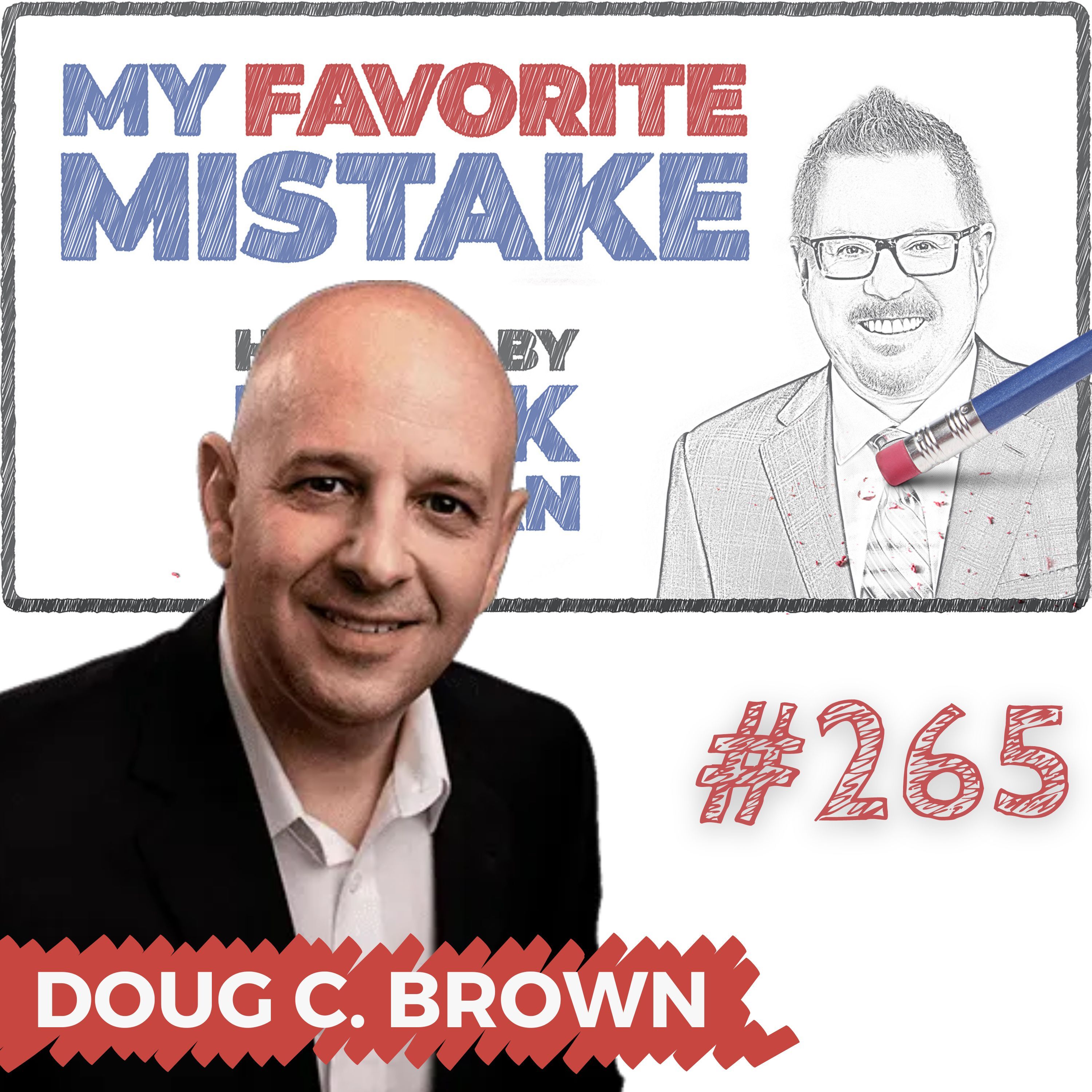
Unlocking Sales Success: Doug C. Brown on Coaching for Free, Boosting Close Rates, and Achieving 684% Sales Growth
My guest for Episode #265 of the My Favorite Mistake podcast is a conversation with Doug C. Brown, CEO of CEO Sales Strategies, about his journey from coaching people for free to becoming a renowned sales growth expert. Doug shares the story of his favorite mistake—coaching people for free—and how it taught him the importance of charging for his services to ensure clients take action and achieve results.
Episode page with transcript, video, and more
Doug delves into his impressive career, highlighting key moments like increasing division sales by 684% and boosting close rates by 62% for Tony Robbins' team. He discusses the critical aspects of demonstrating value, understanding the right fit buyer, and why discounting is detrimental to business. Doug also explains the importance of human-to-human connections in sales and how empathy plays a vital role in building lasting relationships.
Listeners will gain insights into Doug's systematic approach to doubling sales, the significance of segmentation, and his new software tool designed to track and optimize sales processes. Whether you're a sales professional, coach, or entrepreneur, this episode is packed with actionable advice and inspiring stories that can help you elevate your sales game.
Doug's “favorite mistake” of coaching for free led to the realization that people value and act on advice more when they have skin in the game. This lesson not only transformed Doug's approach to coaching but also laid the foundation for his successful career in sales strategy and consulting.
Tune in to hear Doug's fascinating journey, his strategies for sales success, and learn how his favorite mistake led to incredible opportunities and growth. Don't miss out on this engaging and insightful conversation!
Questions and Topics:
What would you say is your favorite mistake?
Why was it a mistake to coach for free?
How do you decide what to charge for your services?
How do you make sure you don't sell yourself short?
How did you transition from your other businesses into CEO Sales Strategies?
What was the impact of increasing division sales by 684% and boosting close rates by 62% for Tony Robbins' team?
How do you demonstrate value to potential clients?
How important are human-to-human connections in sales?
How did your experience in the US Army influence your career?
What was your instrument or focus at the Berklee College of Music?
How did you end up in nuclear medicine?
Can you tell us about your new program on how to double sales and what that entails?
How can people learn more about your new program and software tool?
45:2101/07/2024
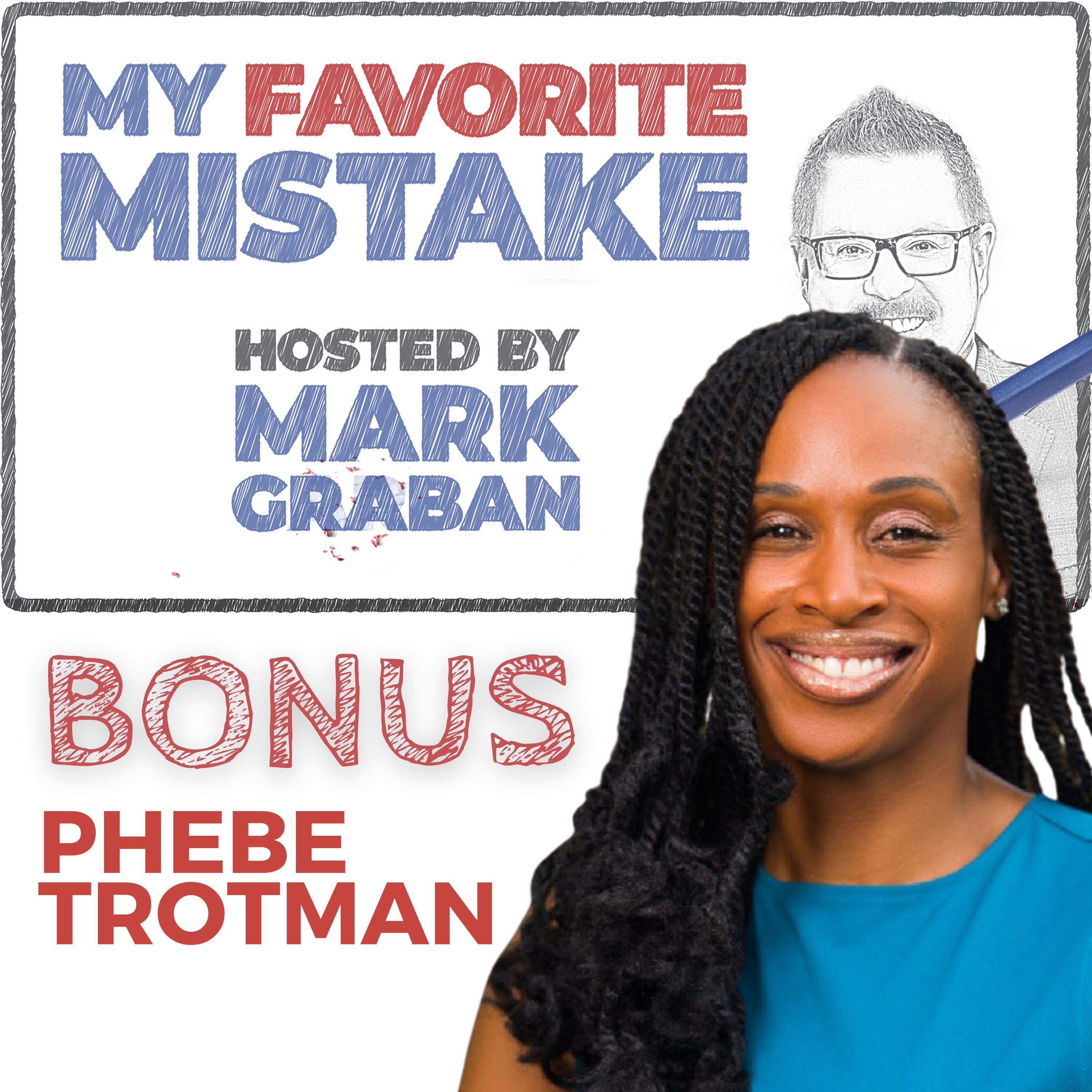
Bonus: Phebe Trotman's Update: Author of "Never Quit on a Bad Day"
Welcome to another special bonus episode of "My Favorite Mistake" with your host, Mark Graban! In this episode, we're delighted to welcome back Phebe Trotman, who has just released her second book, "Never Quit on a Bad Day: Inspiring Stories of Resilience."
Phebe previously joined us in Episode 233, and today she's here to share more about her new book. We discuss the incredible stories from decorated athletes, the lessons of resilience, and how these insights can be applied to everyone's life, not just athletes.
Tune in to hear about:
The journey of creating "Never Quit on a Bad Day" and how it fits into the series.
How athletes from diverse backgrounds overcame their challenges and what readers can learn from them.
The feedback and positive reviews the book has received so far.
Phebe's personal experiences and challenges while writing the book and caring for her mother.
The future plans for the "Never Quit on a Bad Day" series and what to expect next.
Don't miss this inspiring conversation! Check out Phebe's new book and find motivation to overcome your own challenges.
📘 Get the book: https://amzn.to/4c2nYDO
🔗 Previous Episode with Phebe Trotman (Episode 233): https://markgraban.com/mistake233
🔔 Subscribe to My Favorite Mistake Podcast: http://myfavoritemistakepodcast.com/
📱 Connect with Mark Graban:
Website: LeanBlog.org
Twitter: @MarkGraban
LinkedIn: Mark Graban
📱 Connect with Phebe Trotman:
Website: NeverQuitOnABadDay.com
Instagram: @PhebeTrotman
Twitter: @PhebeTrotman
07:2927/06/2024
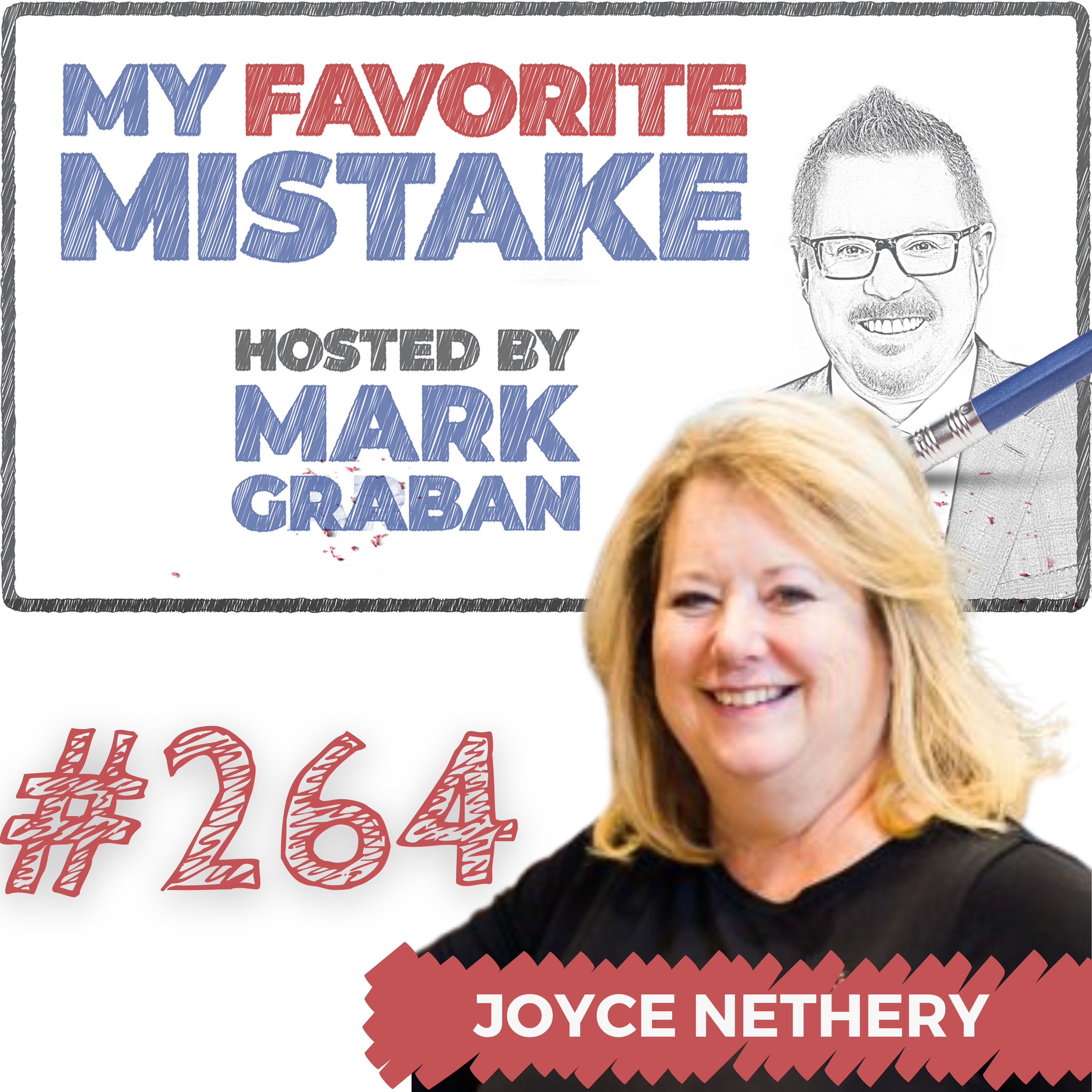
Family, Tradition, and Mistakes: The Unique Distilling Journey of Joyce Nethery at Jeptha Creed
My guest for Episode #264 of the My Favorite Mistake podcast is Joyce Nethery, the master distiller and CEO of Jeptha Creed Distillery.
Episode page with video, transcript, and more
With a rich background in chemical engineering and a unique journey through teaching and distillation, Joyce brings a wealth of knowledge and passion to the world of Bourbon.
In this episode, Joyce shares the inspiring story of how a family dream, combined with her expertise and a fortunate mistake, led to the creation of Jeptha Creed's unique and beloved spirits. Join us as we explore the challenges and triumphs of running a woman-owned distillery in Kentucky and the innovative spirit that drives their success.
Joyce also discusses the critical mistake that led to the development of Jeptha Creed's signature mash bills, the unique challenges of being a woman-owned and operated distillery, and the importance of family and tradition in their business. Tune in to hear how Joyce’s expertise and a serendipitous error turned into a flavorful success story in the world of Bourbon.
Questions and Topics:
Can you tell us about your daughter's role?
How rare is it to be a woman-owned and woman-run distillery in Kentucky or elsewhere?
Why did you end up in Wisconsin instead of working with a Kentucky distillery?
Can you explain the malting process and its impact on flavor?
How has your chemical engineering background and industrial experience helped with distillation and process methods?
How long did you have to wait to see the impact of different barrels on your bourbon?
As the master distiller, how do you predict what's going to age best?
How do you approach blending different barrels to achieve a consistent product?
How unusual is it to use malted wheat in bourbon?
Can you describe your experimental batches and how you finalized your products?
What is a mash bill?
Can you tell us more about bloody butcher corn and why you chose it?
How do you manage the ground-to-glass process at Jeptha Creed?
What does the name Jeptha Creed mean and how does it reflect your values?
How can people learn more about Jeptha Creed and visit your distillery?
50:0124/06/2024
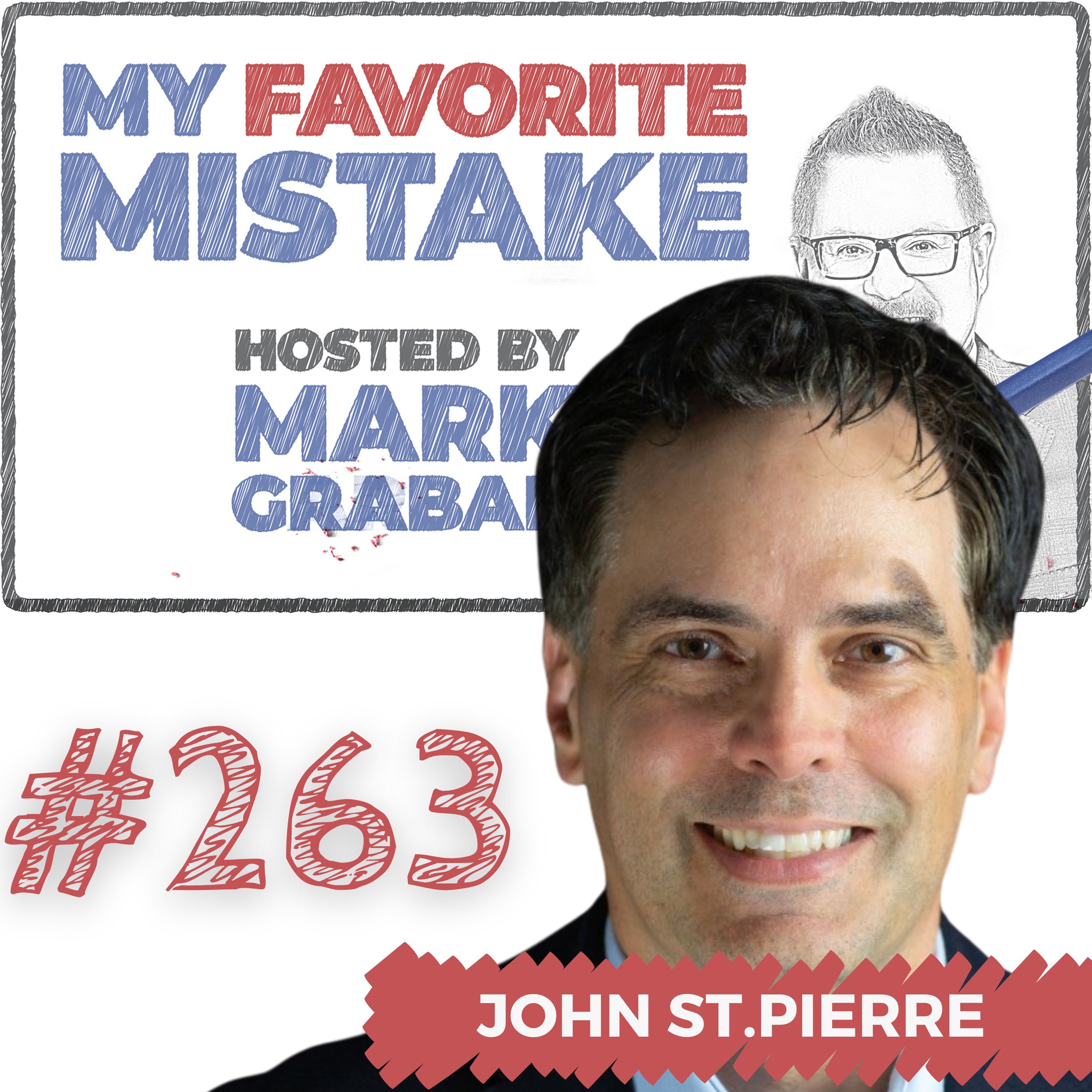
Entrepreneurship Mistakes: The Pitfalls of Growing Too Fast with John St.Pierre
My guest for Episode #263 of the My Favorite Mistake podcast is John St.Pierre, an entrepreneurial strategist, business growth advisor, and co-host of the “Entrepreneurs United Podcast” — with Rich Hoffman. They recently had me as a guest.
Episode page with video, transcript, and more
John has over 25 years of experience co-founding and growing successful businesses across various industries including co-founding and growing two companies to over 50 million dollars in revenues each.
John is currently the majority owner and chairperson of Rhombus Group, a private holding company formed in 2003 comprising several small businesses. His mission is to help entrepreneurs, intrapreneurs, and their companies achieve their goals and dreams.
He’s also the author of The $100M Journey: Your Guide To Growing The Business Of Your Dreams Without Going Off The Cliff!, a book that shares my proven strategies and insights on how to scale your business while avoiding costly pitfalls.
In this episode, John shares his profound insights on the pitfalls of trying to grow a business too fast. John recounts his journey of co-founding and expanding a company to over $50 million in revenue, only to face the harsh consequences of rapid, unsustainable growth. He shares his mistakes, such as
taking on excessive bank debt,
making poor hiring decisions, and
losing equity control,
which ultimately led to him being fired from the very company he built. Through this candid reflection, John emphasizes the importance of patient ambition, protecting equity, and aligning business strategies with personal life goals, offering invaluable lessons for aspiring entrepreneurs.
Questions and Topics:
What's your favorite mistake?
Did you take time off to reflect, recover, and reset?
Did previous opportunities lack alignment in purpose, best-in-world potential, and economic value?
Did board members or executives push back on your growth decisions, or was everyone all in?
What advice do you have for founders on when to take money, how much to take, and who to choose as investors?
How was the news of your firing delivered?
Are there specific growth points that are particularly risky, like 10 million or 50 million?
How can founders ensure they don't have blinders on and miss potential pitfalls?
What's the common theme for the businesses within Rhombus Group?
Tell us about the Entrepreneurs United podcast and how you and Rich Hoffman decided to start it.
The book's website
42:0517/06/2024
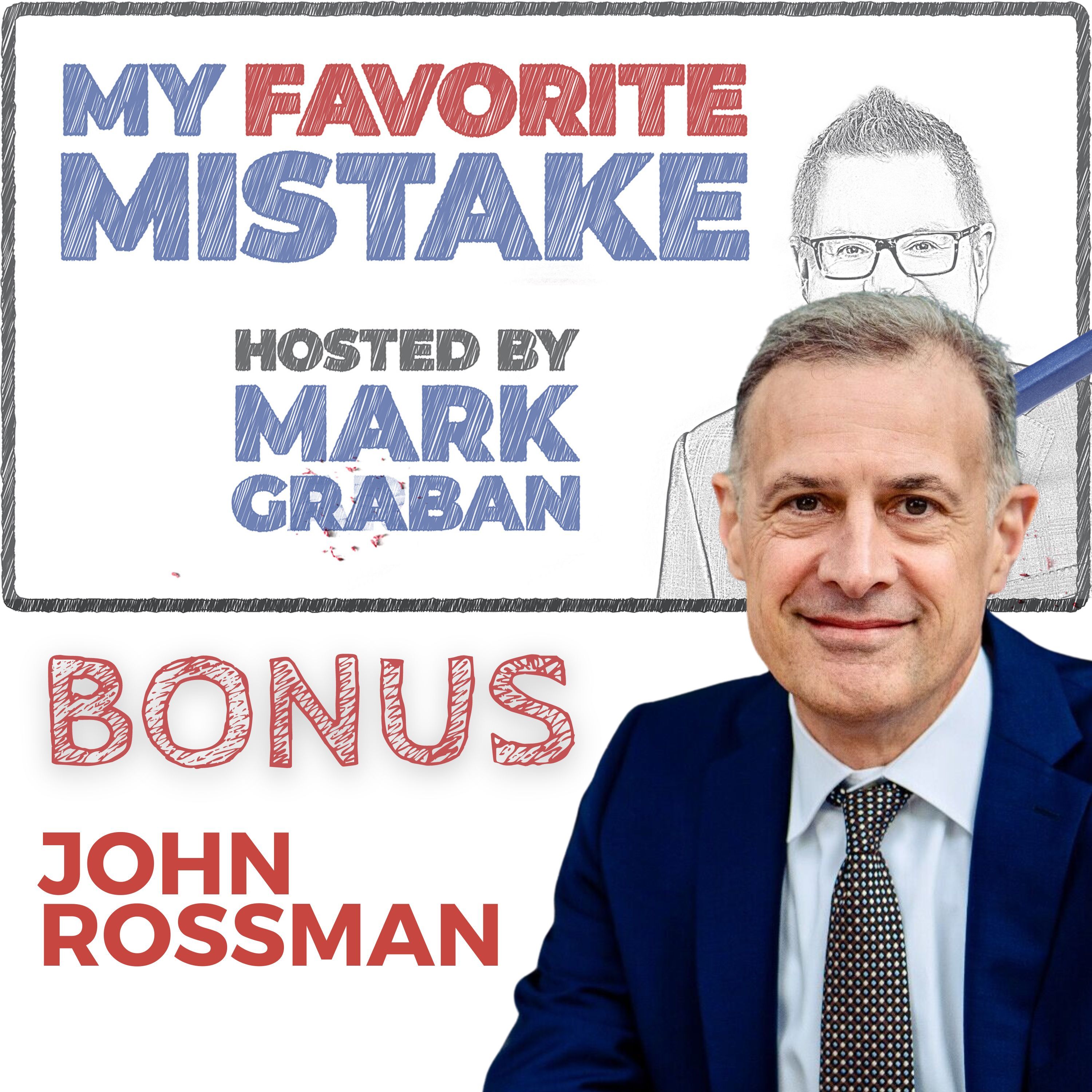
Bonus: John Rossman's Update, Author of "Big Bet Leadership"
John was a guest in Episode 242 in January 2024. That episode: https://markgraban.com/mistake242
Welcome to a pecial bonus episode of "My Favorite Mistake" with your host, Mark Graban! In this episode, we're catching up with John Rossman, who has just released his latest book, "Big Bet Leadership: Your Playbook for Winning in the Hyper-Digital Era."
John joined us previously in Episode 242, and today he's back to share insights from his new book. We discuss the critical lessons learned from industry giants like Jeff Bezos, John Legere, Elon Musk, and Satya Nadella. John breaks down the essential habits for successful transformations: creating clarity, maintaining velocity, and accelerating risk and value.
Tune in to hear about:
The foreboding prediction of the hyper-digital era.
Key strategies for transforming organizations.
Feedback from readers and insights into the book's reception.
The unique "three futures memo" tool for better alignment.
The importance of focusing on valuable problems and customer needs in the AI era.
The challenges of upfront decision-making processes and governance.
John also shares a candid moment about the audiobook production and thoughts on potential additions for future editions.
Don't miss out on this insightful conversation! Check out the book, "Big Bet Leadership," and enhance your playbook for thriving in the hyper-digital era.
📘 Get the book: https://amzn.to/3xgoBdz
🔔 Subscribe to My Favorite Mistake Podcast: http://myfavoritemistakepodcast.com/
📱 Connect with Mark Graban:
Website: LeanBlog.org
Twitter: @MarkGraban
LinkedIn: Mark Graban
08:1013/06/2024
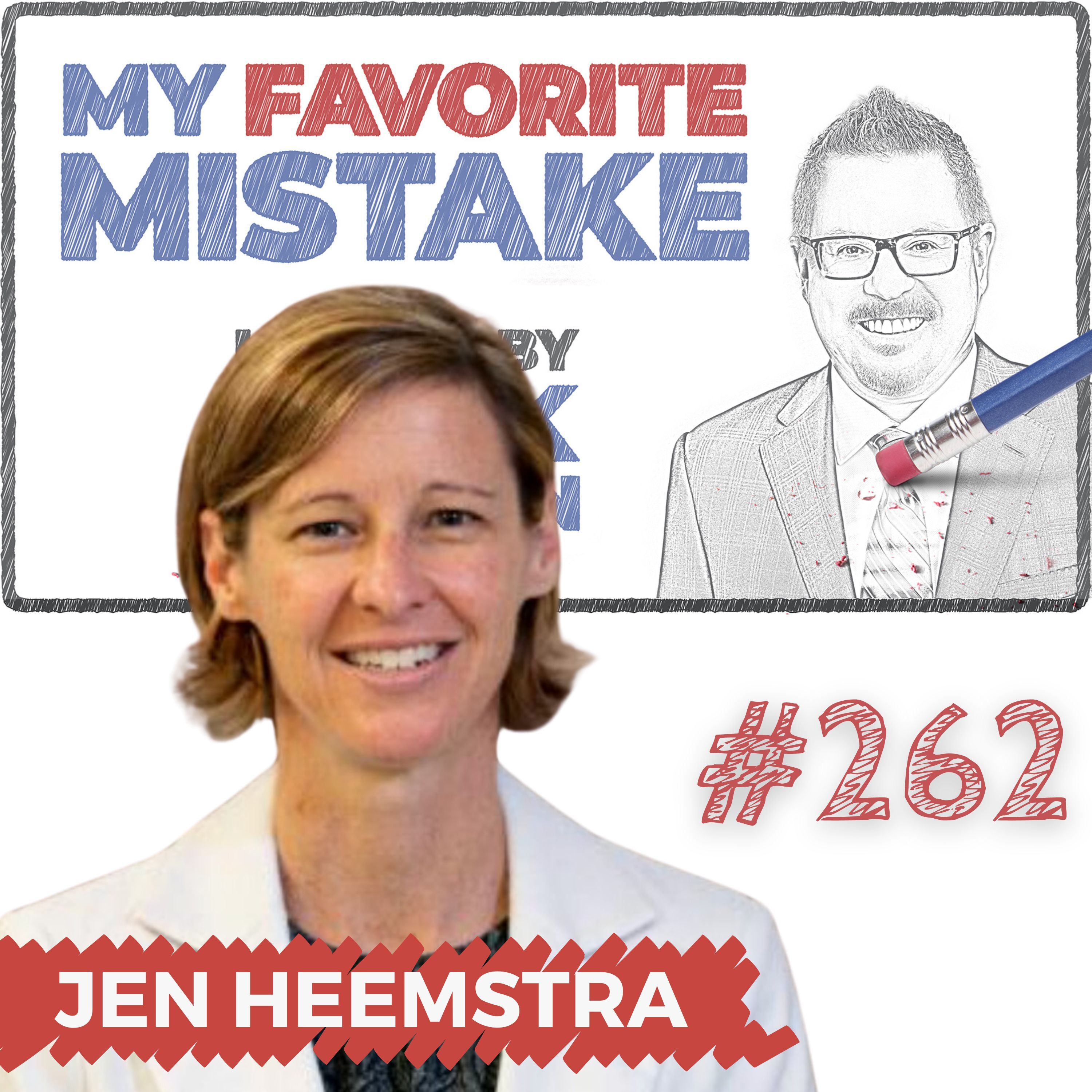
Embracing Failure: Jennifer Heemstra's Path to Innovation, Scientific Research, and Leadership
My guest for Episode #262 of the My Favorite Mistake podcast is Jennifer Heemstra. She is Chair and Professor of Chemistry, the Charles Allen Thomas Professor of Chemistry at Washington University in St. Louis.
Episode page with video, transcript, and more
Her research makes use of the ability of nucleic acids to self-assemble and recognize other molecules. Alongside her research, Heemstra is a science communicator and writes a regular column for Chemical & Engineering News. She earned her Ph.D. at the University of illinois, Urbana-Champaign.
In this episode, Jen discusses the iterative process of failure and success in her lab, emphasizing the importance of creating a psychologically safe space for her team to experiment and learn. Jen also highlights the critical role of leadership in academic settings and how her unexpected transition into a leadership role has become one of the most rewarding aspects of her career — an “accidental leader” (the theme of a book she's writing).
Jennifer's “favorite mistake” concerns a significant misunderstanding of her career path. Initially believing that her role as a professor would be purely research-focused, she quickly realized that it encompassed much more, including leadership and mentorship. This revelation, although initially seen as a mistake, turned out to be the best possible outcome. It fueled her passion for leadership and inspired her to focus on developing a positive and empowering lab culture. Her story underscores the importance of embracing unexpected turns in one's career and finding value in professional growth.
Questions and Topics:
The failures and mistakes we make in research
Advising students about their career paths, and if they want to really focus on research?
Is it rare for a professor to love all aspects of their job? Research, teaching, getting funding, publishing, leading?
As chair – have an employer but not a boss – but autonomy?
“The Only People Who Never Make Mistakes and Never Experience Failure Are Those Who Never Try”
What types of failures are made by students and researchers in your field – and your lab?
Amy Edmondson’s three types of failures?
A hypothesis that’s disproven vs a technical mistake?
Making sure you learn from mistakes?
Helping people not beat themselves up?
Why and How do you share YOUR failures? And Why is it more important for those with more POWER to share their mistakes?
49:1610/06/2024
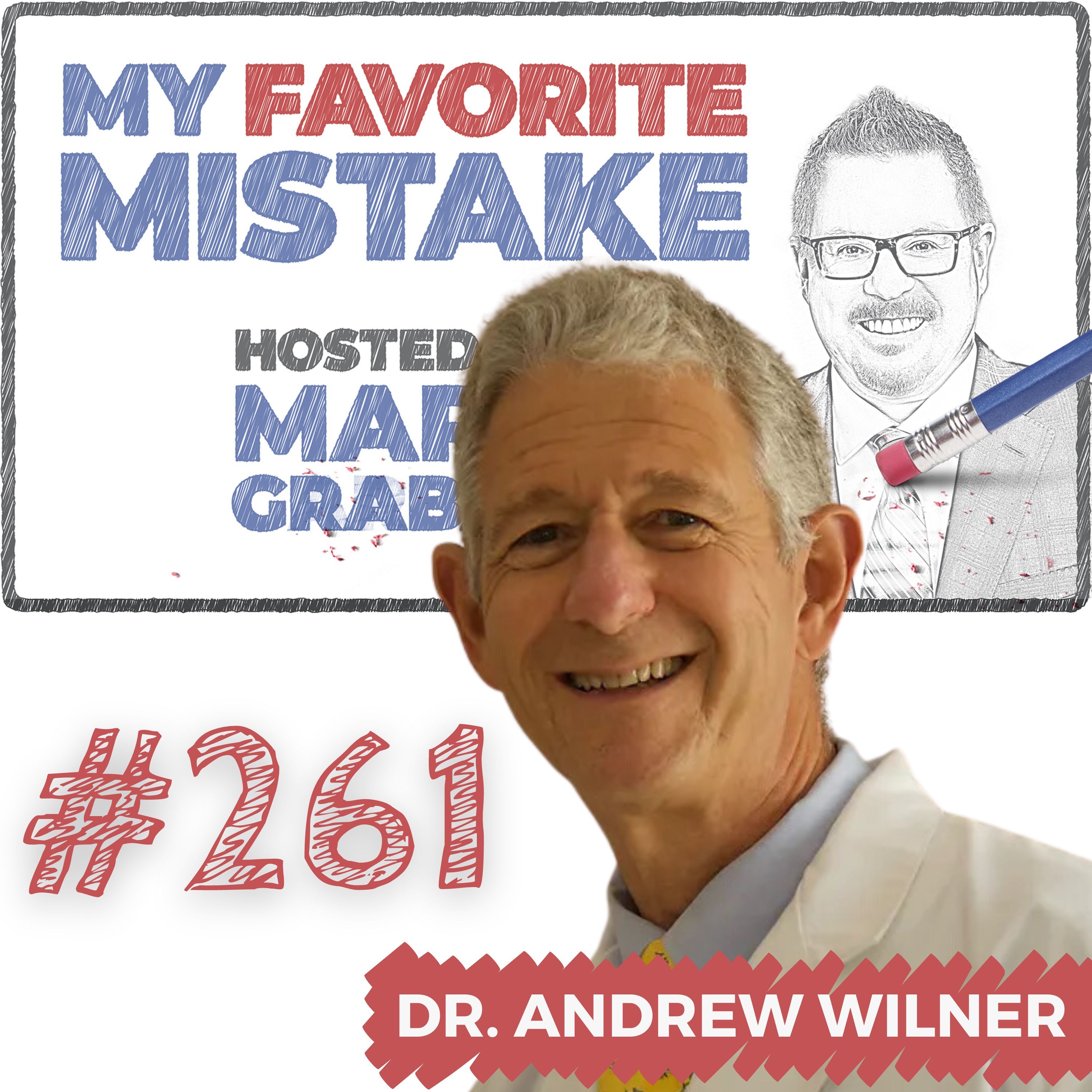
Learning from Mistakes in Medicine: Insights from Dr. Andrew Wilner’s Career
My guest for Episode #261 of the My Favorite Mistake podcast is Dr. Andrew Wilner, a board-certified internist, neurologist, and epilepsy specialist. In 1982, he discovered that locum tenens was the perfect solution for achieving work/life balance as a physician and writer. Dr. Wilner has practiced locum tenens in a variety of inpatient, outpatient, academic, and community settings.
He is a prolific medical journalist and author of several books, including Bullets and Brains. Currently, Dr. Wilner is an Associate Professor of Neurology at the University of Tennessee Health Science Center, Memphis, TN, where he cares for patients, teaches, writes, and lives with his wife and baby boy. He's also host of the podcast “The Art of Medicine.” His latest book is The Locum Life: A Physician's Guide to Locum Tenens.
In this episode, we discuss the concept of "locum tenens", a staffing solution that is steadily taking root in the world of healthcare. Locum tenens, which means "holding a place," provides medical professionals the flexibility of temporary placements in clinics or hospitals due to extended leaves or transitions between hires. Our guest for this episode, Dr. Andrew Wilner, a seasoned neurologist and epilepsy specialist, has thrived using the locum tenens approach. He gives insightful revelations about the career growth and personal satisfaction that come with adopting this method of staffing.
In addition, Dr. Wilner gives an account of the human errors that can occur in healthcare settings. Using a personal tale about a mistake made during his training years, he emphasizes the necessity for checks and balances to prevent such occurrences. The discussion encourages healthcare professionals and administrations to approach healthcare provision not as invincible entities, but as humans who are prone to making mistakes. It is through such humility and acknowledgment of weaknesses that better healthcare systems can be fostered where errors are minimized and learning is continuous.
Questions and Topics:
How could that medication error happen? Sleep deprived
Did the nurse challenge the order?
More of an expectation to speak up now?
A team effort to help you and help the patient?
EHR risk of errors - wrong chart? New risks
Human factors — 36 or even 24 hour shifts now?
Tell us about your Podcast: “The Art of Medicine”
The Locum Life: A Physician's Guide to Locum Tenens
Your experiences with writing and self publishing?
44:1403/06/2024
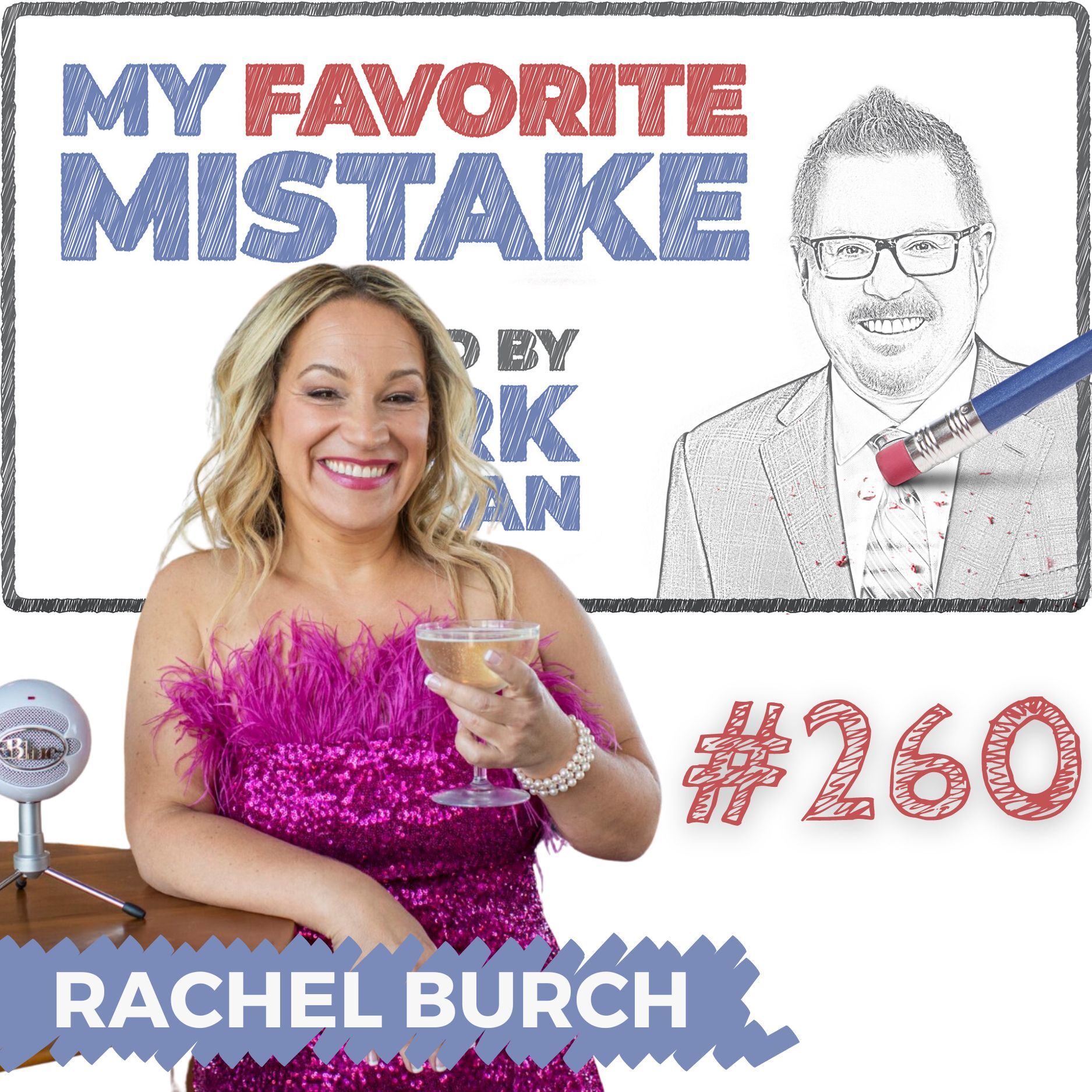
Embracing Change: A Lawyer's Leap to Comedy and Coaching with Rachel Burch
My guest for Episode #260 of the My Favorite Mistake podcast is Rachel Burch. She’s a lawyer turned transformational coach and stand-up comedian.
EPISODE PAGE with video, transcript, and more
As host of the chart-topping podcast Love Before 100, Rachel chronicles her journey to find love while making her way down a dating scavenger hunt/bucket list.
Rachel lives with her two boys in Orange County, CA, where she enjoys long walks on the beach and short commutes on PCH. She’s obsessed with personal growth, all things woo and healthy living.
In this captivating episode of "My Favorite Mistake," Mark Graban and Rachel Burch take listeners through a riveting journey from rigid law corridors to vibrant stand-up stages and intimate podcasting spaces. They unravel the interesting dynamics of creativity, touching upon the iterative nature of comedy and podcasting as platforms for exploration and growth.
They explore how bravery, resilience, and unwavering dedication play instrumental roles in one's creative journey. With an exceptional knack for intertwining insights on personal growth with humor, Rachel uses her experiences as platforms to connect on a human level, showcasing the powerful impact of storytelling. This episode serves to inspire individuals to embrace every facet of their journey, including their passions and dreams, and the importance of learning from mistakes.
Questions and Topics:
How did the law degree help you with what you’re doing now?
Did you want to be a comedian growing up??
From lawyer to business owner to comedian - how to make big life changes?
Developing stand up as an iterative process and testing ideas?
Beginning as a podcaster??
Tell us about Podcasting — “Love Before 100”
“Launching your podcast isn’t the hard part. Making it worth listening to is.”
Lessons about Growing a podcast - services for podcasters “Bingeable”
What is your best piece of advice for people who want to start on their dream but are scared?
What’s the worst advice someone could give?
43:5328/05/2024
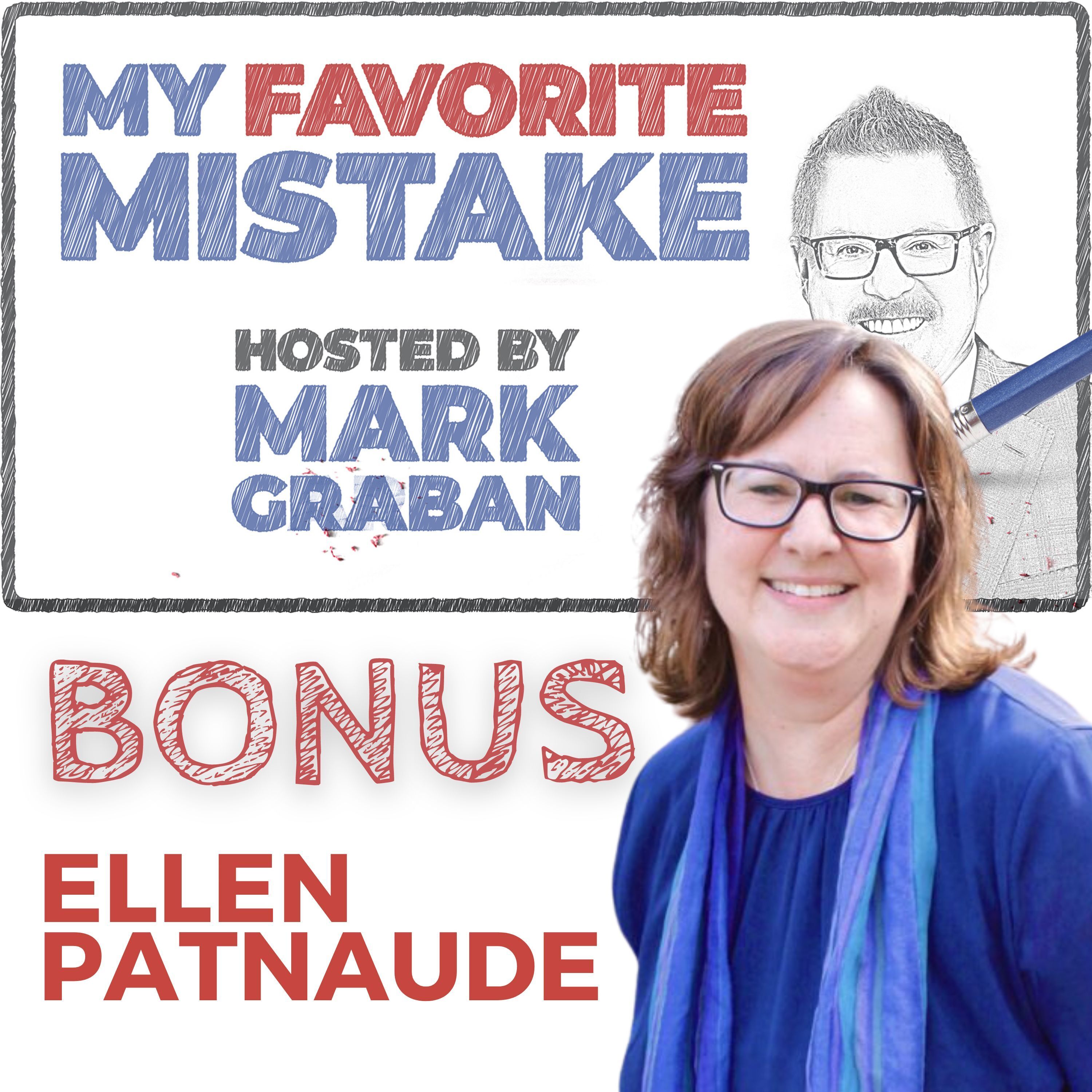
Bonus: Ellen Patnaude's Updates (2 New Books and More)
We're joined again by Ellen Patnaude, who was a guest back in Episode 141 in February 2022.
Oops! I uploaded the wrong file the first time!!!
What's new for Ellen? She's the author of TWO books that have been released since then.
I Thought You Knew...: Confessions of a Chronic Assumer (and How You Can Stop Guessing Your Way Through Important Interactions)
AND
"You're Not Doing It Right": Loving My Mother Through An Unpredictable Caregiving Journey
She's also changed the name of her company to Patnaude Coaching.
Thanks to Ellen for coming back to share with us in this quick conversation.
14:5324/05/2024
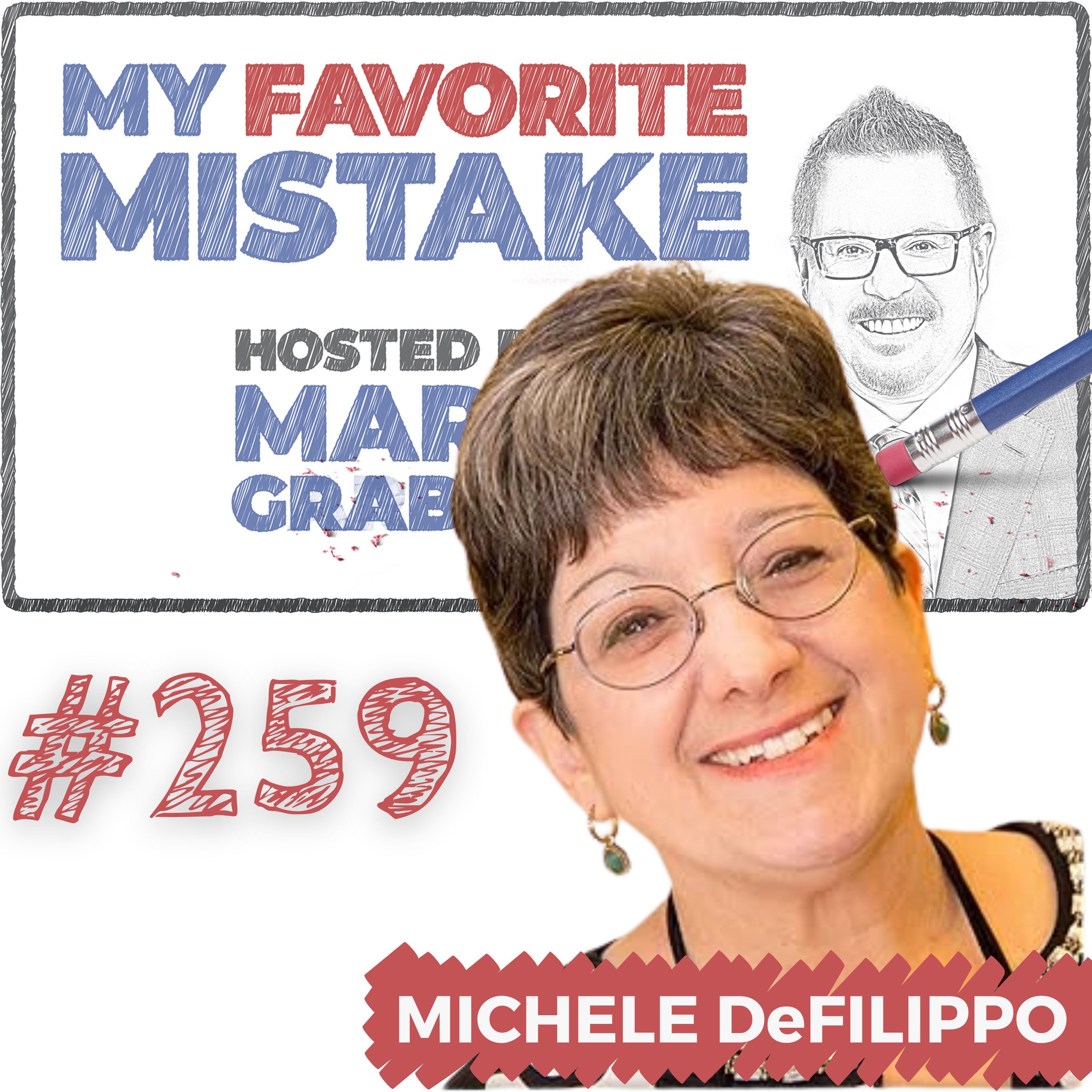
Navigating the Evolution of Book Publishing: Insights for Authors from Michele DeFilippo
My guest for Episode #259 of the My Favorite Mistake podcast is Michele DeFilippo, the Founder of 1106 Design, LLC, started in 2001 to work with authors to help them take advantage of opportunities in the changing industry of book publishing – providing one-stop publishing services from manuscript to market.
Episode page with video, transcript, and more
I’ve worked with Michele on my last two books, Measures of Success and The Mistakes That Make Us.
In this episode, Michele shares her “favorite mistake” story. We also take a deeper look into a significant industry change, – the rise of independent publishing. They trace this journey to the late 90s and early 2000s when independent publishing emerged as a robust alternative to traditional publishing houses. Uncover the misunderstood beginnings of independent publishing and how it has been pivotal in empowering authors.
From its initially misconceived do-it-yourself approach, independent publishing has evolved into a strategic model that allows authors to bring industry professionals together to create high-quality books. In this episode, dive deep with us to explore how this professional, comprehensive approach has shifted the industry's narrative from – “self-published” towards “independent publishers.” Unearth the numerous ways professionalism and strategic collaboration can create a book product that competes favorably at the market level and meets readers’ demands.
Questions and Topics:
Starting 1106 Design?? Did you look more before you leaped?
“Independent publishing” vs “self publishing”?
People DO judge a book by the cover??
Changes publishers have to make for cover design for online purchasing??
Compare traditional publishing vs. hybrid vs. indy?
What does an author need to ask??
What happens if that company goes out of business and disappeared??
Manuscript is done… but now what?
What does it cost to produce a book to traditional publisher standards?
Mistake to assume your book is going to be sold in physical bookstores?
Print book vs. eBook?
39:1720/05/2024

Redefining Professional Learning: An Emphasis on Mistakes with Michael Bloom
My guest for Episode #258 of the My Favorite Mistake podcast is Michael Bloom, Chief Executive Officer & Founder of Praktio, an online learning company whose mission is “to create space for learning through mistakes.”
Episode page with transcript, video, and more
Before leaving to run Praktio full time, Michael was the founding director of the Transactional Lab & Clinic, an experiential program at the University of Michigan Law School.
Michael is the co-author of two books on contracts from a transactional perspective: Contracts and Commercial Transactions and Contracts: A Transactional Approach.
Michael earned his J.D. from Yale Law School and earned his B.A. with highest distinction from the University of Michigan, where he studied American history.
This episode focuses on Michael's journey from being a clinical professor to founding Praktio. By creating an environment that promotes learning through mistakes, Michael has challenged traditional paradigms and aligned his unique educational model with the evolving needs of learners in a fast-paced, information-rich world. His entrepreneurial venture, peppered with a fair share of mistakes, has yielded invaluable insights that have guided the development of a highly effective educational model that thrives on constructive feedback and the power of mistakes.
Questions and Topics:
Is it a mistake to listen to ALL feedback equally?
Did you fear it might be a mistake to leave the law school and go full time into Praktio?
How do law firms react to mistakes?
Framed as learning opportunities or something shameful?
Tell us more about the Praktio story and product…
Make mistakes in a safe environment to avoid the real one?
Learning from the mistakes made by others now?
What are some common or bad mistakes that could be made with contracts?
Preventing mistakes vs. more senior inspecting the work?
LinkedIn Profile: “Make mistakes and learn from them”
As CEO, how do you think about mistakes INTERNAL to Praktio?
Cultivating a culture of learning from mistakes?
Learning from the mistakes of other entrepreneurs?
40:0313/05/2024
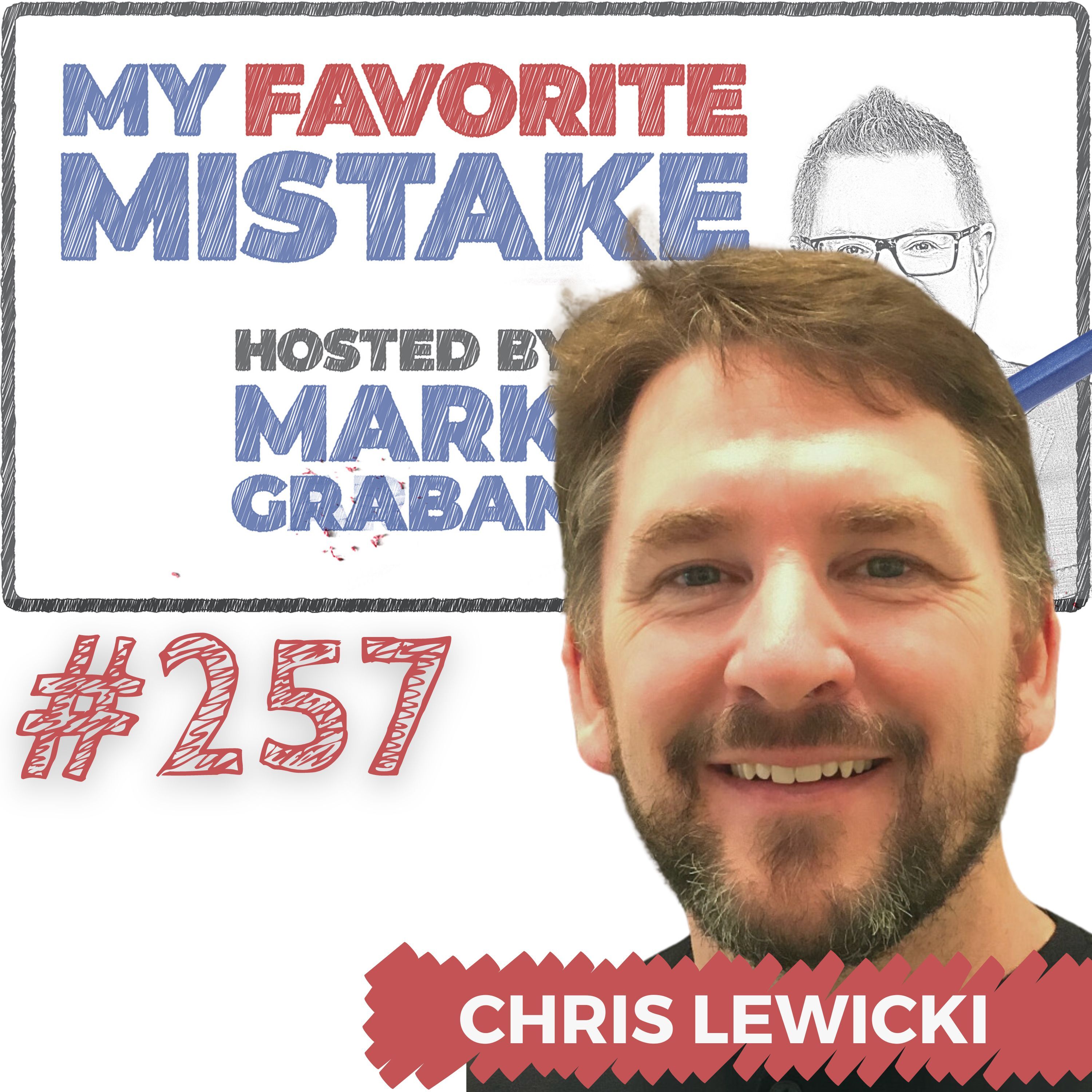
Almost Killed a $500 Million Mars Rover: Chris Lewicki's Lessons Learned
My guest for Episode #257 of the My Favorite Mistake podcast is Chris Lewicki, an Astrofuturist, Engineer, and Entrepreneur who is interested in developing strong, thoughtful foundations for the near-future space economy.
Episode page with transcript and more
He’s a multi-time co-founder. He first co-founded and was CEO of Planetary Resources Inc. (PRI), which focused on the prospecting, development, and use of resources found on near-Earth asteroids. (Skip) He helped acquire over $60M in investment and revenue, built a team of 80 extremely talented engineers, scientists, and business and policy leaders, and launched 3 experimental spacecraft to advance the adoption of space resources as a crucial part of humanity’s activities in space.
Prior to entering the private sector, Chris was a key member of NASA’s Mars Exploration Rovers and the Phoenix Mars Lander, serving as Flight Director for the Mars rovers Spirit and Opportunity, and as the Surface Mission Manager for Phoenix.
Chris received both bachelor’s and master’s degrees in aerospace engineering from the University of Arizona. He’s the recipient of two NASA Exceptional Achievement Medals and has an asteroid named in his honor: 13609 Lewicki.
Chris imparts lessons learned from his early days in NASA's Mars exploration projects, where a potential disaster during a rover test thrust him into the limelight as an emerging leader in the field. His poignant recount of the incident underscores the nuanced details that contribute to the success or failure of any mission and the critical concept of design for test( DFT).
Drawing parallels to the broader engineering community, this episode's riveting discussion reveals essential strategies used in this high-stakes industry. The implementation of mistake-proofing tactics, robust system performance to ensure resilience, or ‘poka-yoke', and the introduction of redundancy in spacecraft design all contribute to an airtight spacecraft system. Learn from Chris's profound insights as he unravels the multifaceted considerations that go into ensuring functionality, designing for testability, and anticipating service requirements and testing needs during the initial design phases.
Questions and Topics:
Was it a connector being reversed??
New and innovative work… – was it a design mistake to not be “designed for test”?
Could that have been mistake proofed in some way? It was not
Would they have fired you? Did you ask??? Ernie or others??
Took time to be able to tell the story? How long?
What response did you get to sharing that story online?
Bringing these lessons into the private sector as CEO?
How many people have taken you up on your offer to share their failure stories??
MY $500M MARS ROVER MISTAKE: A FAILURE STORY
Netflix documentary on the James Webb telescope
50:2406/05/2024
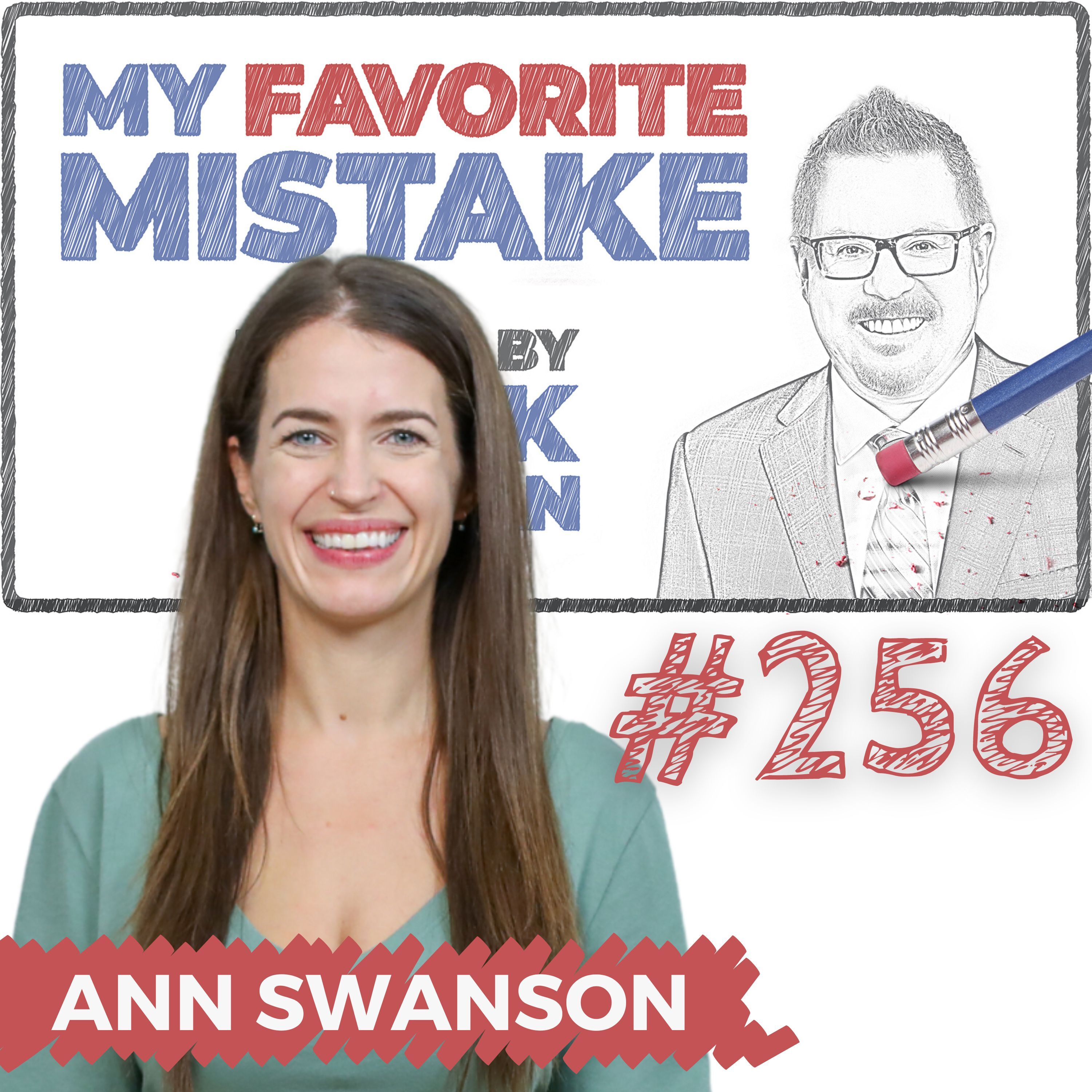
Embracing Life's Twists: A Journey of Yoga, Meditation, and Unexpected Opportunities with Ann Swanson
My guest for Episode #256 of the My Favorite Mistake podcast is Ann Swanson, the author of the internationally bestselling book SCIENCE OF YOGA, which has been translated into over 15 languages.
Episode page with video, transcript, and more
Her new book, Meditation for the Real World, illuminates the fascinating science behind meditation with step-by-step practices. She worked alongside Harvard neuroscientist Dr. Sara Lazar and an illustrator for the New York Times to create this science-backed visual guide. It’s important to note that Ann wasn’t a naturally “chill person,” and meditation didn’t come easy to her.
Overcoming her own chronic pain and anxiety led her to India to study yoga and meditation, to China to explore tai chi, and to earn a Master of Science graduate degree in Yoga Therapy. Now, Ann blends cutting-edge research with ancient wisdom, resulting in realistic techniques you won’t just learn – you’ll love to live by!
This episode sheds light on the journey of turning mistakes into unexpected triumphs — and how Ann's favorite mistake was thankfully a “near mistake.” We discuss how the resilience to push through tribulations is often the stepping stone to success in personal well-being and spiritual practice.
We also touch upon the art of manifestation, breaking stereotypes and illustrating how envisioning one's life trajectory and being open to various possibilities can lead to astonishing opportunities. We delve into real-life case studies of individuals going from rejection to becoming acclaimed authors, demonstrating the importance of sharing one's knowledge and skills, maintaining a positive digital presence, and the role of persistence and self-belief.
Questions and Topics:
What’s your favorite mistake?
Getting so many job rejections… over 100
Wouldn’t have known it was a mistake??
How did meditation help you during those tough times??
Tell us the story of this latest book, “Meditation for the Real World,”
Meditation mistakes? Is that possible?
What if you feel like you are “bad” at meditating, or your mind wanders too much?
Mind / body connection between yoga and meditation?
How long do you need to meditate for it to work? Can one-minute meditations really make a difference?
The science of meditation??
Why do most people fail at developing a consistent meditation practice? How can we apply the science to finally build a sustainable practice?
Any mistakes in the writing the book?
44:0629/04/2024

Bonus: Sarah Lohse’s Update & Key to Effective Communication: Storytelling (Her New Book: "Open This Book")
Bonus Episode Update with Sarah Lohse: Unearthing the Power of Storytelling
Her episode of "My Favorite Mistake"
Today's episode of "My Favorite Mistake" features Sarah Lohse, founder of Favorite Daughter Media and author of "Open This Book: The Art of Storytelling for Aspiring Thought Leaders."
Sarah illuminates storytelling's potential as a powerful leadership and communication tool, extending it beyond the realm of novelists and filmmakers to thought leaders and influencers. With her knack for drawing relevant insights from personal experiences, she demonstrates how a well-told story can engage, inspire, and teach valuable lessons.
https://favoritedaughtermedia.com/open-this-book/
Check out all episodes on the My Favorite Mistake main page.
09:2125/04/2024

The Trials and Triumphs of Terry Bartley: An Author with ADHD
Episode page with video, transcript, and more
My guest for Episode #255 of the My Favorite Mistake podcast is Terry Bartley. He is a high school journalism, literature, and English teacher and writer of the new collection of short stories, Tyranny of the Fey.
Terry is the host of the podcast “Most Writers are Fans,” about the intersection between writing and fandom. Terry has professionally written for the Coal Valley News and Screenrant. He has won awards for writing and broadcasting from the West Virginia Associated Press, the National Broadcasting Society, and MarCom. He has a B.A. in English from the University of Phoenix and an M.A. in English Education from Western Governor’s University.
With a candid discussion on his life's journey through countless experiences straddling education and literature, Terry charts an inspiring narrative about turning apparent career missteps into stepping stones of growth. We navigate through his career in teaching while pursuing his passion for writing amidst an uncertain freelance career.
Immerse yourself in an absorbing conversation as Terry discusses his life with ADHD, stressing its impact beyond professional barriers permeating quotidian existence. In our challenging exploration of the realm of ADHD, Bartley underscores the importance of acceptance, diagnosis, and therapy as his allies combating the condition. He promotes a holistic, individualized approach to managing ADHD, dispelling the clouds of misconception about mental health. Listen along for the fascinating exposition of how ADHD molded his unique creative expression, setting light on his inspiring journey.
Questions and Topics:
What's your favorite mistake?
Feeling out of sync – shaming?
When did you get diagnosed with ADHD?
What prompted or led to that diagnosis?
The impact of treatment?
Tell us about your book
Is it a mistake to publish the short stories before the novel? Only time will tell?
Learning from mistakes and steps from the first release??
Was it a struggle to finish a book then? Or are short stories easier?
Tell us more about the podcast — not just book authors…
What's done is done
44:3122/04/2024
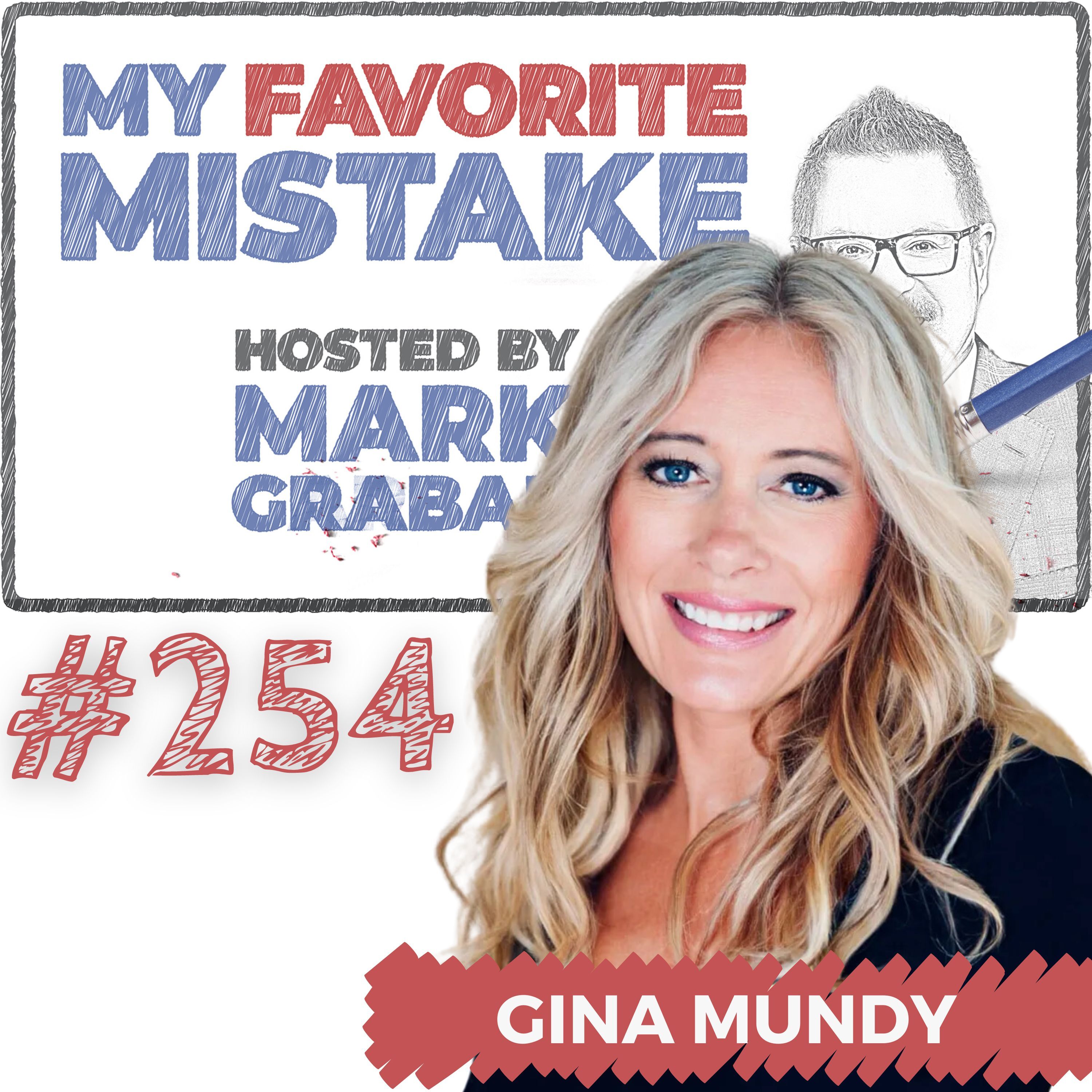
Attorney Gina Mundy's Motherhood Career Mistake; Preventing Labor & Delivery Errors
My guest for Episode #254 of the My Favorite Mistake podcast is Gina Mundy, author of the book A Parent's Guide to a Safer Childbirth: Expecting the Best: Using the Power of Knowledge to Help You Deliver a Healthy Baby.
Episode page with video, transcript, and more
Gina is an attorney who specializes in childbirth cases. Throughout her career, Gina has traveled nationwide, engaging with healthcare professionals such as doctors, nurses, and midwives to explore all aspects of labor and delivery. Meeting with experts from various states, she has explored and analyzed the myriad of issues that can arise during labor and delivery, impacting both mother and baby. v
Gina lives in Clarkston, Michigan, with her family (husband, kids, and dogs)… and she enjoys visiting wineries. Me too (the wineries part)!
Join us as we embark on Gina Mundy's transformative journey from a legal expert in childbirth cases to a successful author. We explore how challenging circumstances, often derived from personal experiences, inspire noble feats like authorship, turning potential mistakes into powerful preventive guidance. Gina's book serves as an incredible testament to her efforts to help expecting parents bypass potential risks and navigate childbirth with ease.
Dive into a discussion touching upon critical topics such as recognizing the signs of distress or complications early, understanding the impact of medications like Pitocin in childbirth, and the implications of labor after water breaks. Our guests underline the importance of being forewarned and forearmed, thereby uplifting childbirth experiences with informed decisions.
And we'll hear about Gina's favorite mistake from her legal career, and decisions she made as a working mother -- how much does she regret those decisions today?
Questions and Topics:
Now 10 years later… was that a mistake??
What were the adjustments?
What led to writing the book — and first learning about problems and mistakes that occur during childbirth??
What's the difference between naturally occurring bad outcomes vs. mistakes? Is that always clear?
What are the most common problems that occur during childbirth?
Does time of day matter? 5 pm Friday??? July?
And how can people help prevent mistakes?
Who gets sued, the resident or the attending??
How often does info from the legal case help drive improvement and prevention?
47:4315/04/2024
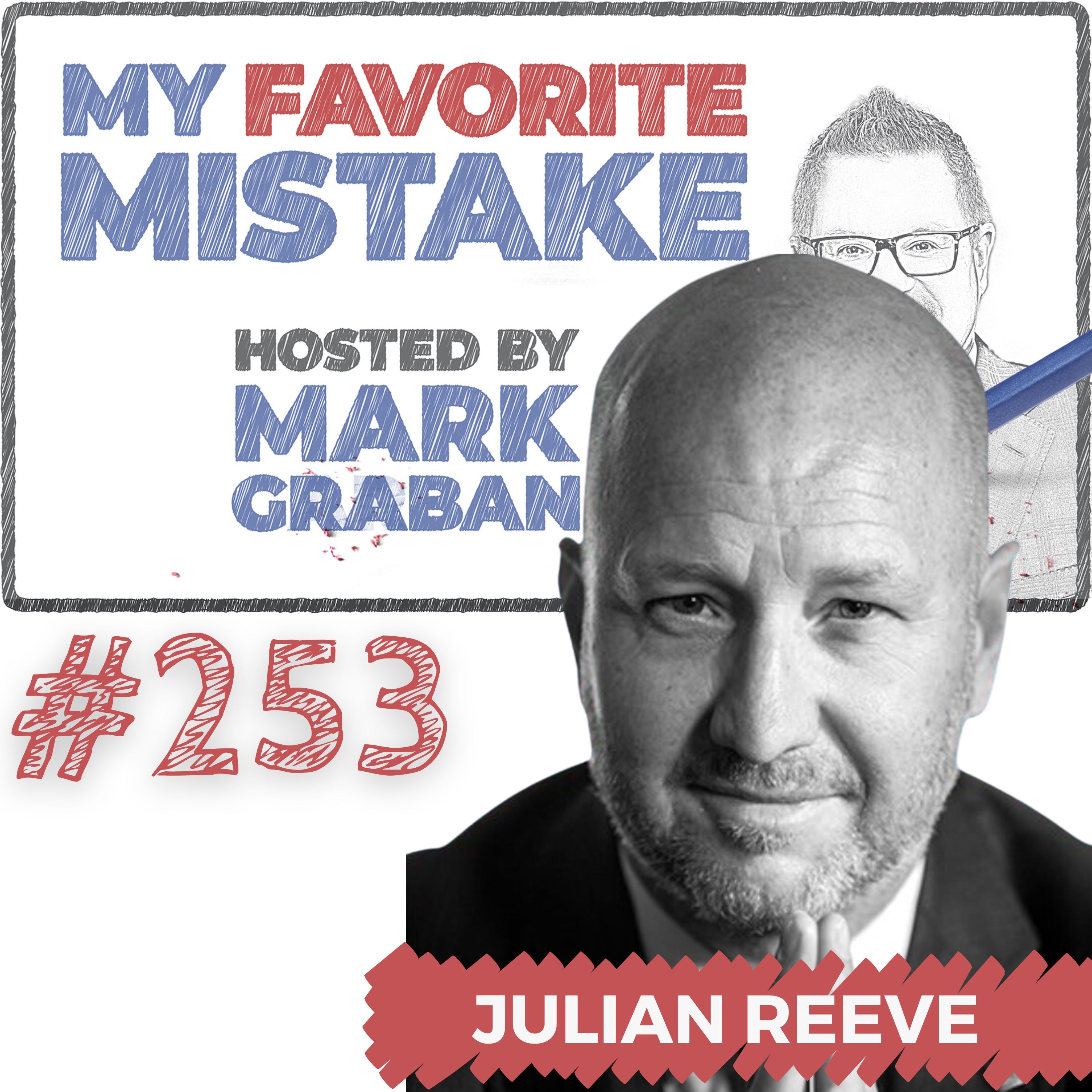
Overcoming Burnout with Julian Reeve, Former Hamilton Music Director
My guest for Episode #253 of the My Favorite Mistake podcast is Julian Reeve, former Musical Director for the musical Hamilton and CEO of Perfect Equilibrium, Inc., a firm that provides consulting services related to employee burnout and retention.
Episode page with video, transcript, and more
Julian graduated with honors from Anglia Ruskin University in Cambridge, England, before embarking on a highly successful career as a musician, educator, and entrepreneur.
He performed for millions across six continents around the world as a Music Director, winning The Los Angeles Drama Critic Circle Award for Best Music Direction on the Broadway musical Hamilton before leading it’s first presentations at the John F. Kennedy Center for the Performing Arts (DC) and at the Centro de Bellas Artes Luis A. Ferrè in Puerto Rico (with Lin Manuel Miranda).
Julian has built four thriving companies in the creative sector, including the London-based boutique talent agency Boland & Reeve Ltd (now Collective Agents) and Perfect Equilibrium Inc. in Los Angeles.
In this episode, Julian talks about his “favorite mistake,” a turning point that occurred early on in his career that challenged his understanding of leadership. This not only shaped his communication skills but also transformed his perspective on perfectionism. With fascinating real-life experiences, he explains the crucial role of self-awareness, the power of accepting and utilizing feedback, and the impact of approach and attitude on leadership and personal development.
Questions and Topics:
What's your favorite mistake?
Was that authority-based approach modeled to you by teachers?
Did you learn to ask for feedback?
Should we cut you some slack since you were young?? Learning from those mistakes — and getting other chances?
How do perfectionists tend to respond to feedback?
What led you to leave your work in the music industry??
The ways perfectionism is helpful?
Does it help to reframe standards of excellence and expectations?
Was there ever a mistake-free performance of Hamilton?
Why does Perfectionism lead to not just burnout and depression?
Self-compassion — Kristen Neff Episode 183
Tell us about your company – and how you help individuals and organizations
Julian's TEDx talk
42:5108/04/2024

Military Veteran and Retired Federal Air Marshal Russell Jack on the Mistaken MAGA Movement
Episode page with video, transcript, and more
My guest for Episode #252 of the My Favorite Mistake podcast is Russell K. Jack. He’s a retired US Senior Federal Air Marshal, working in that role from 2002 to 2022. Russell previously served five years as a Federal Police Officer. And previously served five years in the Colorado Army National Guard and was deployed in Saudi Arabia (Desert Storm).
He is also a first-time author — his book is titled, Is MAGA a Terrorist Movement?— available now. He hopes this book will promote critical thinking about protecting our democracy and just how precariously close we are to losing it forever. He writes this book out of a sense of duty to the American people.
In today's episode, Russell shares his favorite mistake story from his time working as a security officer for a major health system. Why did a Black man think he was being racially profiled by Russell? And what did Russell learn about that interaction?
We also dive into important topics from his book — the lessons learned and the implications for 2024 and beyond.
Questions and Topics:
Did you get to share that lesson with others in law enforcement?
How often do you think racial profiling does occur?
What’s the definition of “terrorist”?
Death threats are an example of terrorism?
Fascist? What does that mean and what’s the implication if MAGA wins in 2024?
It’s a mistake that we don’t have a clear definition of “Insurrectionist”?
Who is the audience for the book? The already convinced, or the convincible?? Your hope for the book?
You write you’ve never convinced anybody to stop being MAGA. Do you expect this book to help?
Do you run across people who now think it was a mistake to previously support or vote for Trump?
Does MAGA think they made mistakes in early 2021 that they wouldn’t make again in early 2029??
If Trump were to die tomorrow, what happens to MAGA movement?
43:5301/04/2024
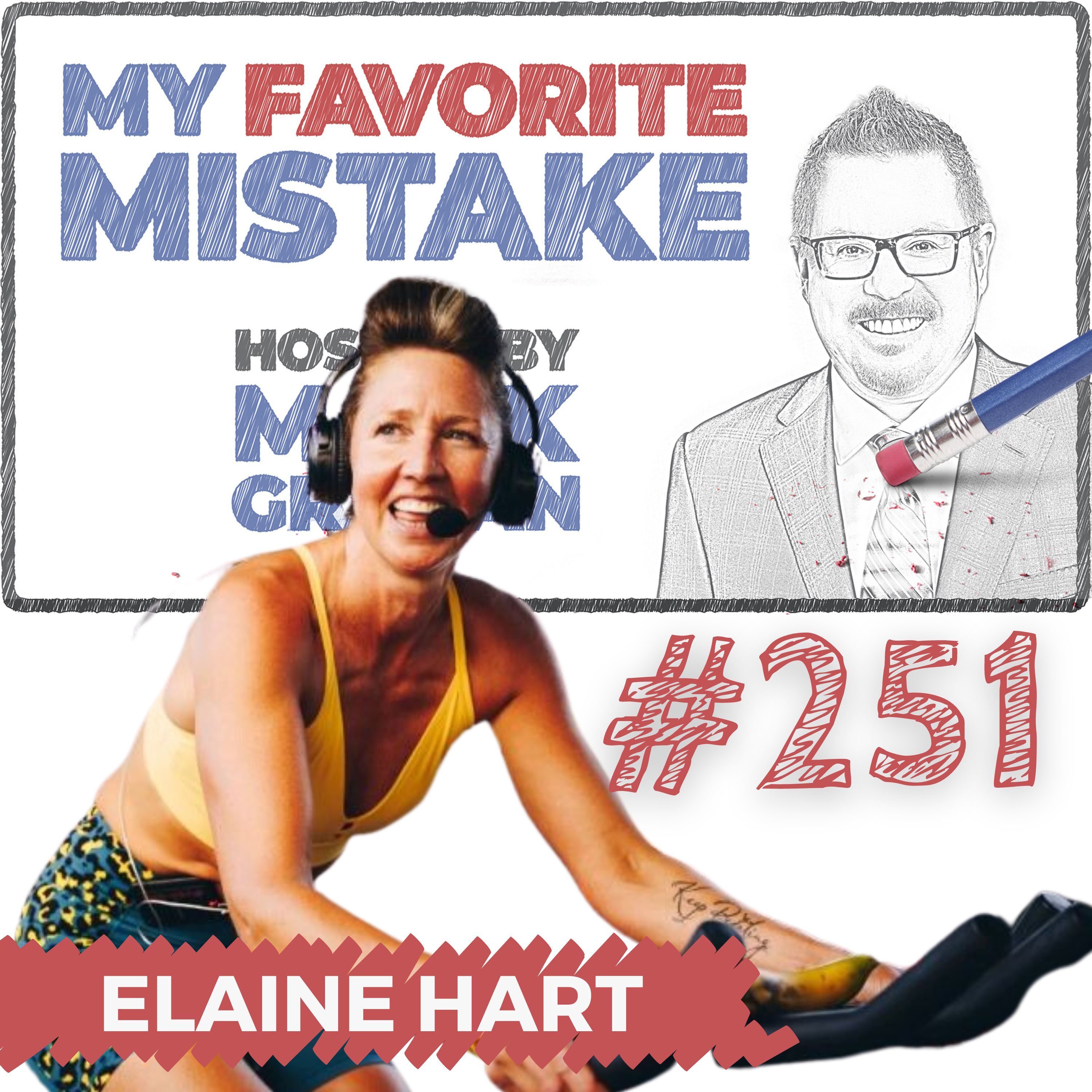
Turning Stumbles into a Dance: Elaine Hart on Building Resilience at Power Fitness
My guest for Episode #251 of the My Favorite Mistake podcast is Elaine Hart, the Chief Banana Officer at Power Fitness Events. She’s a resilient fitness enthusiast and former luxury event manager at Rolls-Royce Motor Cars.
Episode page with video, transcript, and more
Overcoming challenges including anorexia, she discovered strength in fitness and community. Elaine transitioned her career to empower others through spinning, founding Power Fitness.
Her resilience was further highlighted during the COVID-19 pandemic, adapting her business to offer virtual classes. With a mantra of “Keep Pedaling,” Elaine's story inspires physical and mental strength, shared passionately from her spinning bike.
In today's episode, Elaine talks about mistakes including:
Quitting her job to start a business in 2020
Feeling shame about her anorexia
Through innovation and determination, Elaine transformed the unforeseen challenges of the COVID-19 pandemic into an opportunity for growth and deepened engagement. Her unique initiative, “Bring Your Own Banana” (BYOB), nurtures an environment of playfulness, motivation, and connectivity within her community. As the ‘Chief Banana Officer,' her story encapsulates the spirit of Power Fitness Events—a testament to the power of resilience, innovation, and community connection.
Questions and Topics:
Why are you the “Chief Banana Officer?”
Would it have been a mistake to stay in the career?
What drove you to make that big decision?
It says Self-Care on the banana – tell us about that
A mistake to think one-size-fits-all when it comes to advice?
Why do you say we should make the stumble part of the dance?
What does it mean to distance yourself from the action, the mistake?
Shame around mistakes — had a lot of shame around her anorexia?
Mental health first aid??
The importance of being playful? How did you learn this or discover it in you?
41:2825/03/2024

250 Episodes! Celebrating and Reflecting on a Podcasting Journey
In this episode, host Mark Graban reflects on 250 episodes, sharing a few clips, admitting a few mistakes, and telling a few stories.
Kevin Harrington episode
Mark Teich episode
Rep. Will Hurd episode
Rep. Adam Smith episode
Sofie Roux episode
Tom Peters episode
Video of Karyn Ross and her suitcase
34:3218/03/2024
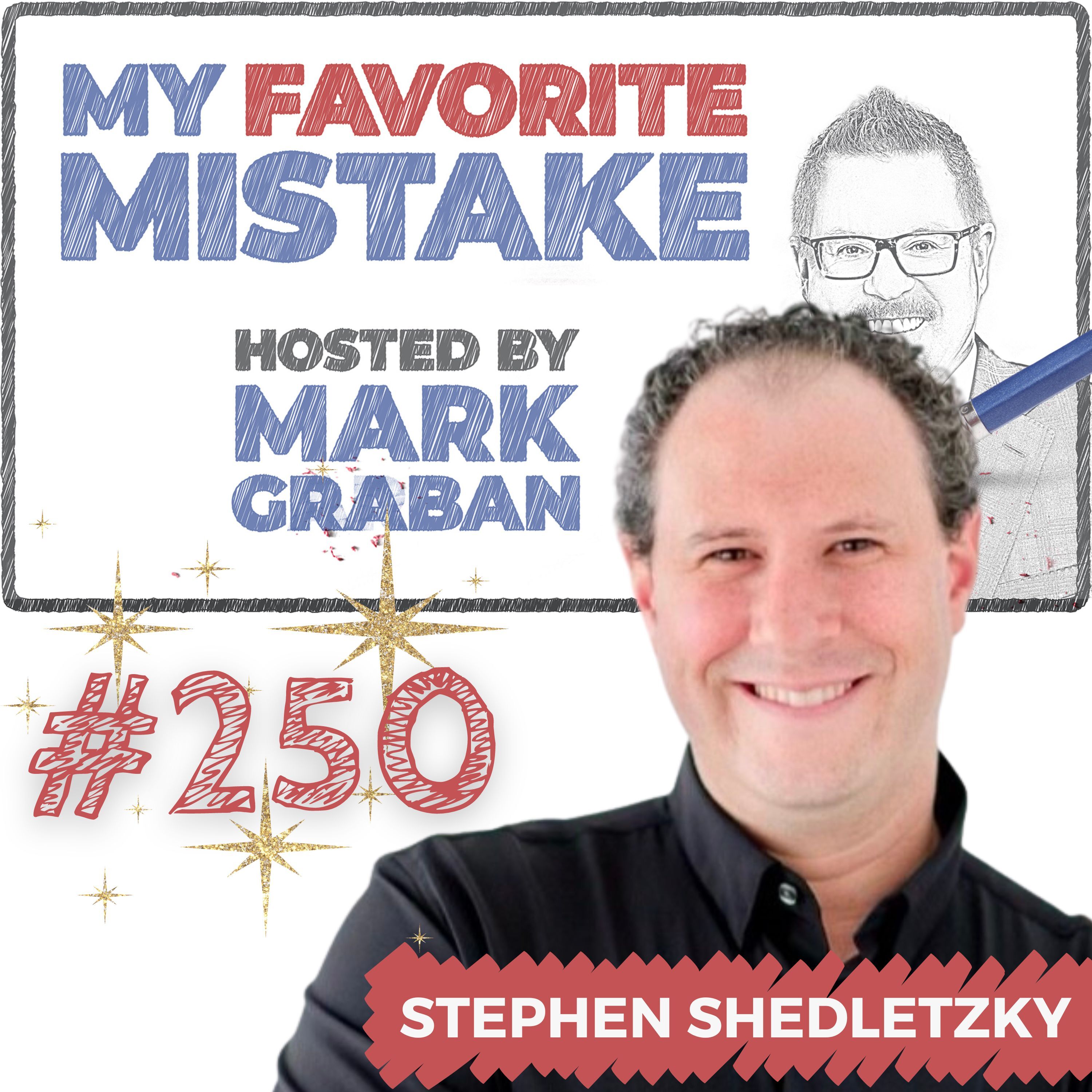
How Speak-Up Culture Builds on Psychological Safety: Stephen Shedletzky
My guest for Episode #250 (!!!) of the My Favorite Mistake podcast is Stephen Shedletzky or “Shed” to his friends. He is a sought-after speaker, coach, and advisor, — As a thought leader on psychological safety in the workplace, Shed has led hundreds of keynote presentations, workshops, and leadership development programs around the world.
Episode page
Author of the book Speak-Up Culture: When Leaders Truly Listen, People Step Up.
After years on a corporate track, Shed was introduced to and inspired by the work of best-selling author Simon Sinek and, became the fourth person to join his team. For more than a decade, Shed contributed at Simon Sinek, where he led a global team of speakers and facilitators.
Shed graduated from the Richard Ivey School of Business with a focus on leadership, communication, and strategy. He received his coaching certification from The Co-Active Training Institute. He lives in Toronto with his wife and two young children.
Shed's route from his first job post-business school to establishing himself as a speaker, coach, and thought leader reflects the transformative power of self-awareness and the pursuit of work that aligns with personal passions. He transitioned from a potentially constrained corporate environment to one where he could significantly impact organizational cultures on a global scale.
While navigating shifts in career paths can be intimidating, especially during disruptions like layoffs, such moments can provide much-needed clarity and drive individuals to seek opportunities that resonate more with their personal values and dreams. Shed's experiences prove that embracing change and following your passion can lead to a fulfilling career, inspiring others to contemplate and pursue their professional aspirations in a more authentic, dedicated, and inspired manner.
Adopting psychological safety, authentic leadership, and the courage to speak up is critical to nurturing a positive and productive workplace culture. Steven Shedletzky's life and insights stand as an inspiration for all personnel, helping them create environments that prioritize the well-being of their teams and promote purposeful and fulfilling work.
Questions and Topics:
Should we quit or stick it out??
What is a speak-up culture? Why a speak-up culture?
Lessons about HOW to speak up most effectively?
Maybe we should call it ‘listen up culture’?
How often are leaders in denial about this culture problem? Or how often do they put the onus on employees that they SHOULD speak up?
Elon Musk seems not to engender a speak-up culture…
Boeing has declared now they want employees to speak up
What must leaders do to cultivate a “speak up” culture?
45:1726/02/2024
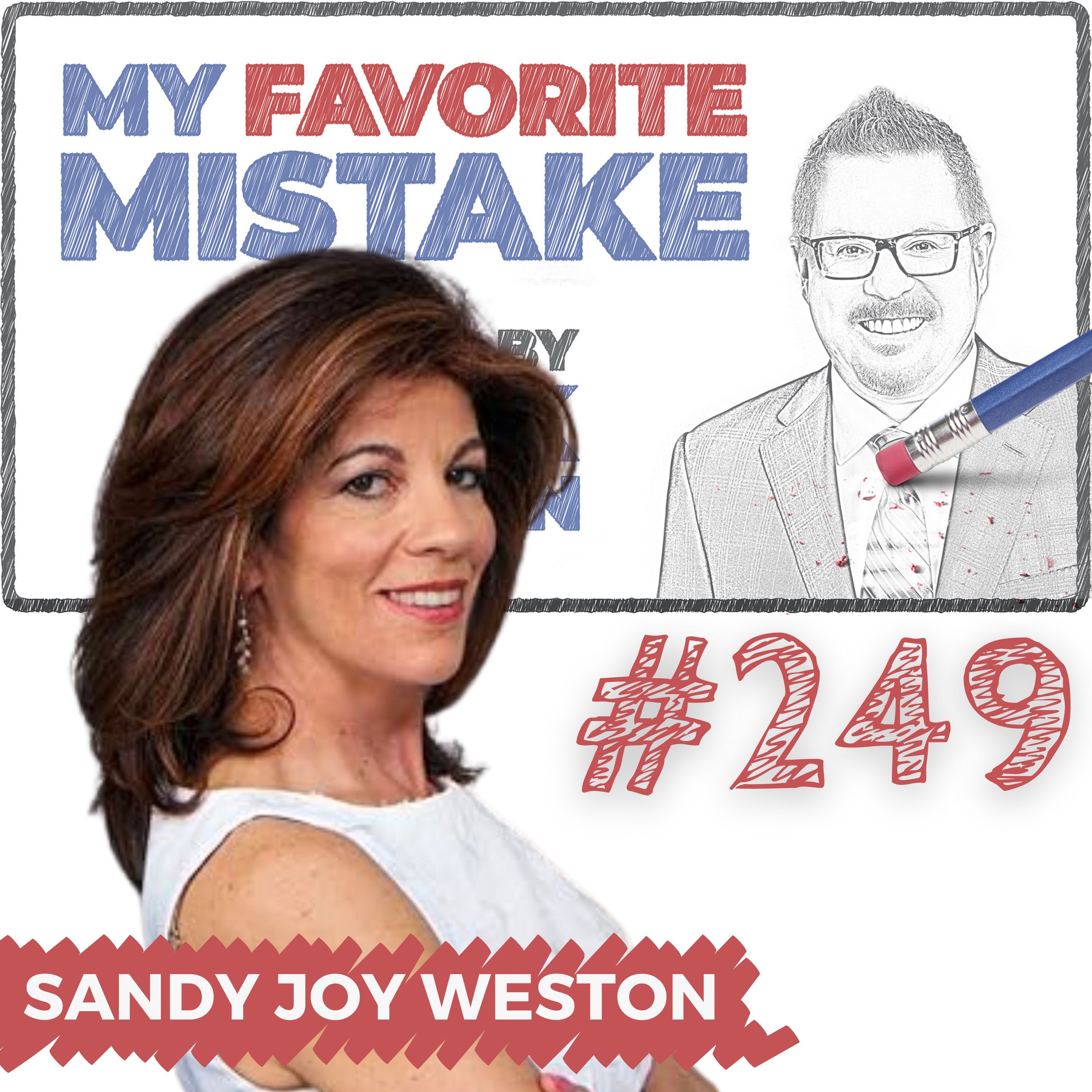
Breaking Barriers in the NHL and Building Fitness Communities: Sandy Weston
My guest for Episode #249 of the My Favorite Mistake podcast is Sandy Joy Weston M.Ed. She is a keynote speaker, international podcaster, three times published author, and entrepreneur, who has owned and operated health and wellness companies over the past 30 years.
Episode page
Early in her career, she became the first female trainer for the Philadelphia Flyers and spent many years as a media personality and as Philadelphia NBC10's Fitness Expert. She created the nationally recognized Philly Street Line Dance to help combat Philly’s “fattest city” label.
For the past five years, Sandy has been focusing on SJW Productions, an international company whose main mission is to highlight all the positive in the world. She does this through her international podcasts, her books, Train Your Head & Your Body Will Follow, My 30-Day Reset Journal and her programs and workshops. Sandy’s mission is to spread pure joy and inspire others to see their true power.
She’s also the host of her podcast, “Let’s Keep it Real,” and I'll be a guest there soon.
Sandy took her passion for fitness to a whole new level in 1993 by launching her club, Weston Fitness. Her fitness club was not just another establishment; it was designed to be cutting-edge and cater to fitness trends with unique classes like spin. Weston's focus was on the transformative power of fitness, where she aimed to offer not just exercise but entertainment and community building within her club’s walls.
In her approach to wellness, Sandy Weston didn’t shy away from ground-breaking methods to create a sense of community. Her innovation in this area can be seen in the introduction of the controversial but beloved “porno spin.” It was these kinds of decisions that marked Weston Fitness as more than a gym. Weston’s Club was, and still is, a space where camaraderie and joy are intertwined with health and physical fitness – a testament to Weston’s vision and innovation in the wellness industry.
And we'll hear Sandy's “favorite mistake” stories!
Questions and Topics:
What was it like being the FIRST female trainer for the Flyers?
Was there any controversy about starting with the Flyers?
What was it like working on TV — fear of mistakes in that work? How did you get into that?
You rarely say “mistake” or “failure” — why?
We’re all busy and have goals… making time can be tough.
Move for a minute – baby steps
Mark's podcasts with Robert Maurer
“What keeps you up at night?”
Language matters —“Dumb mistake”??
44:3219/02/2024





